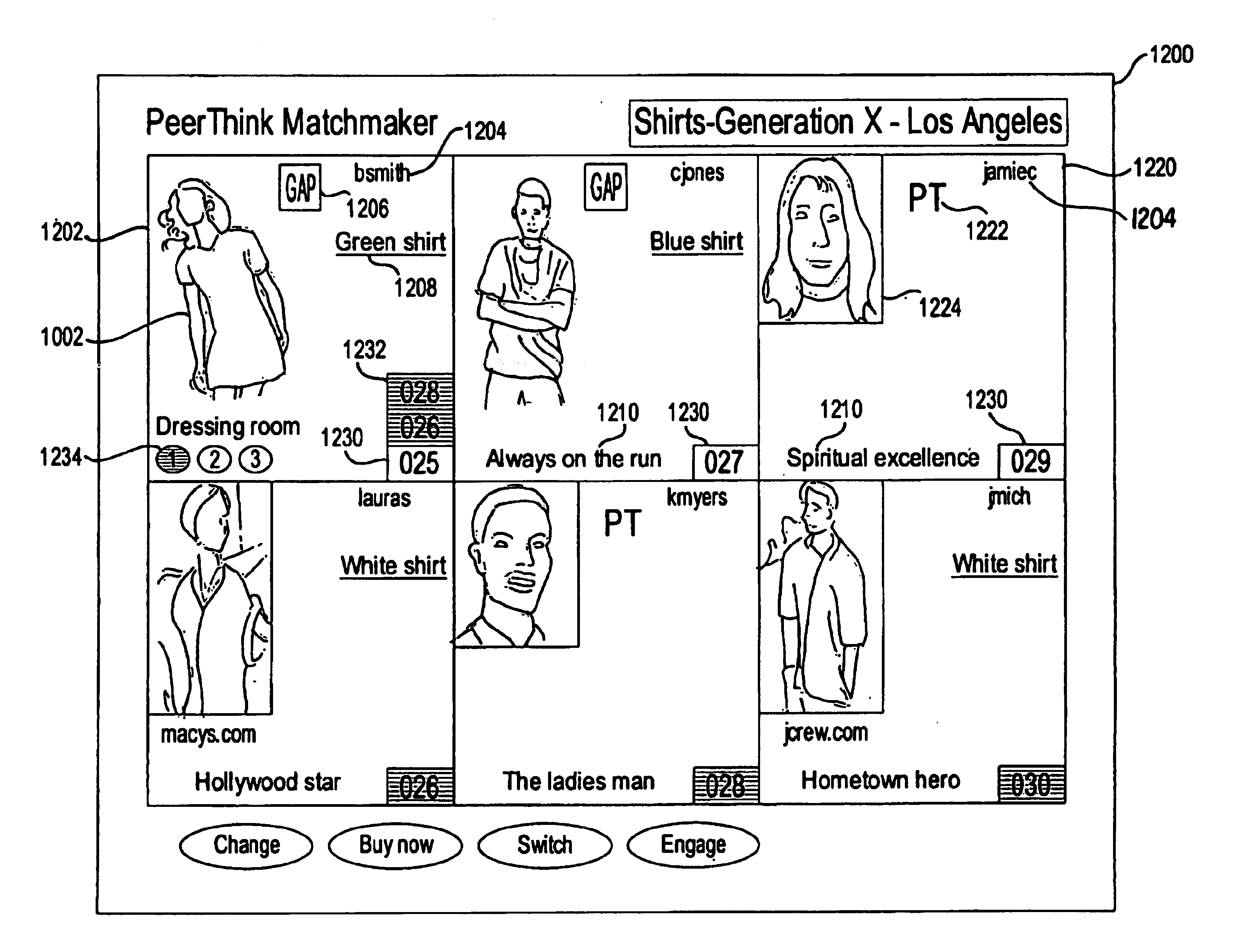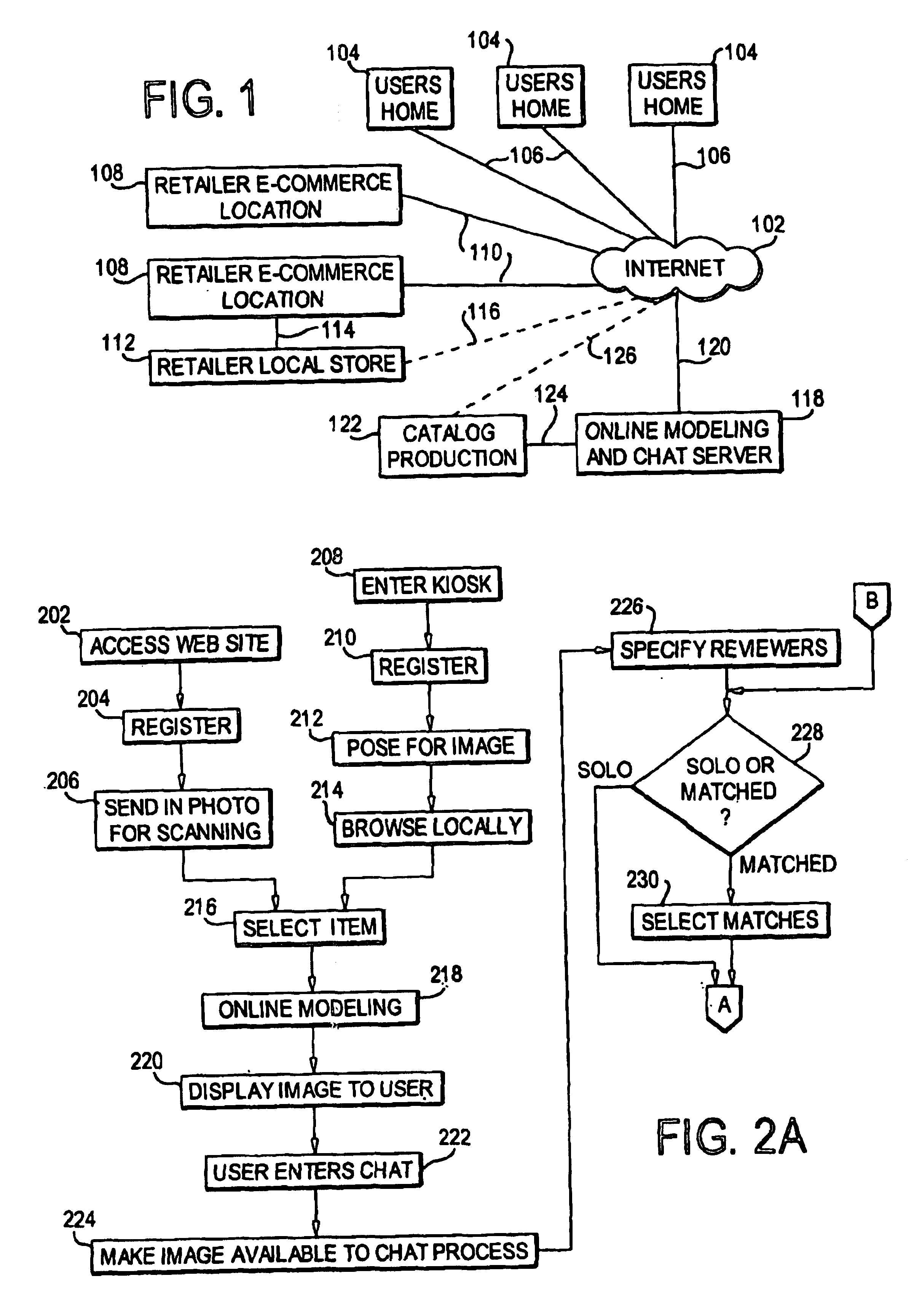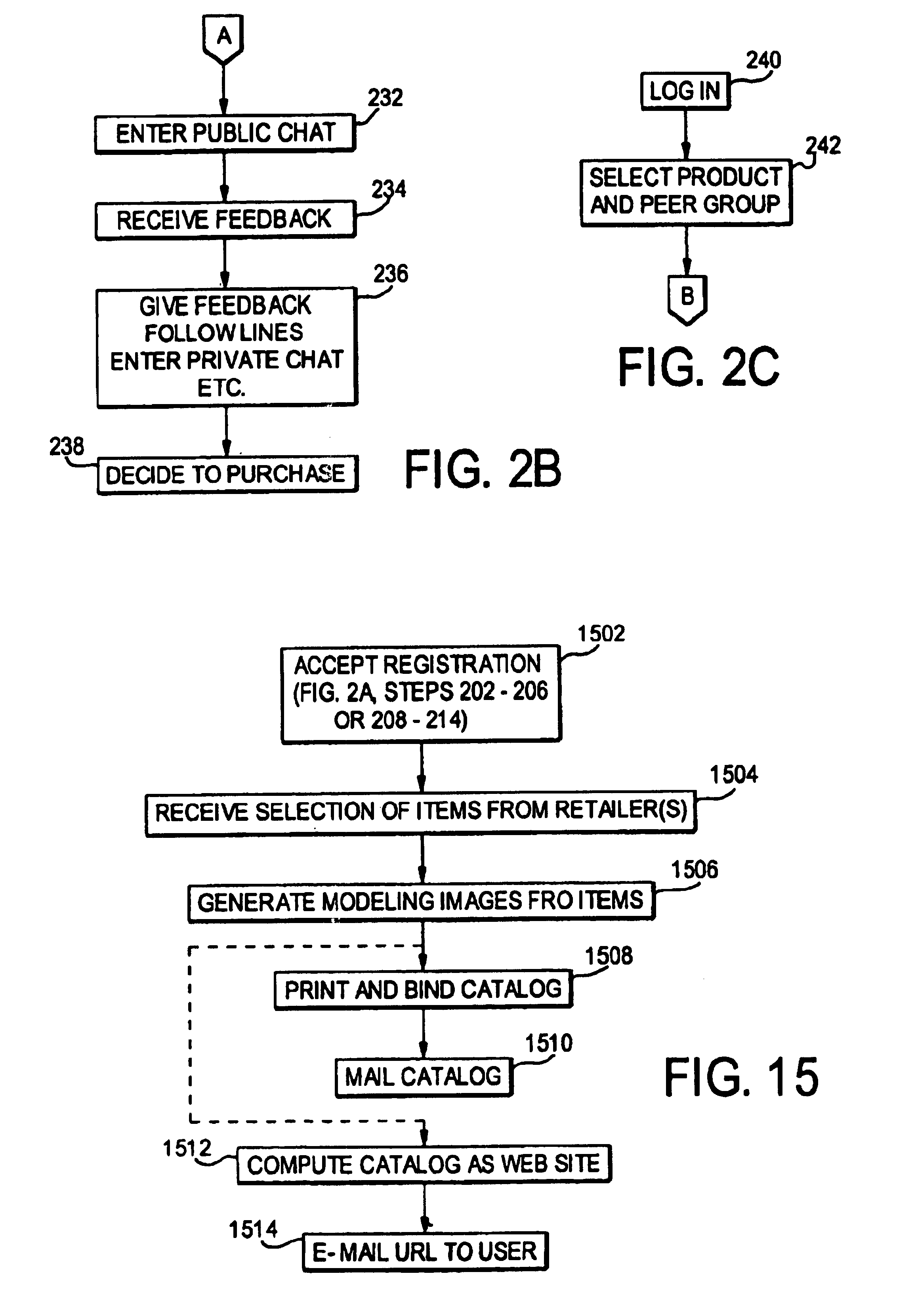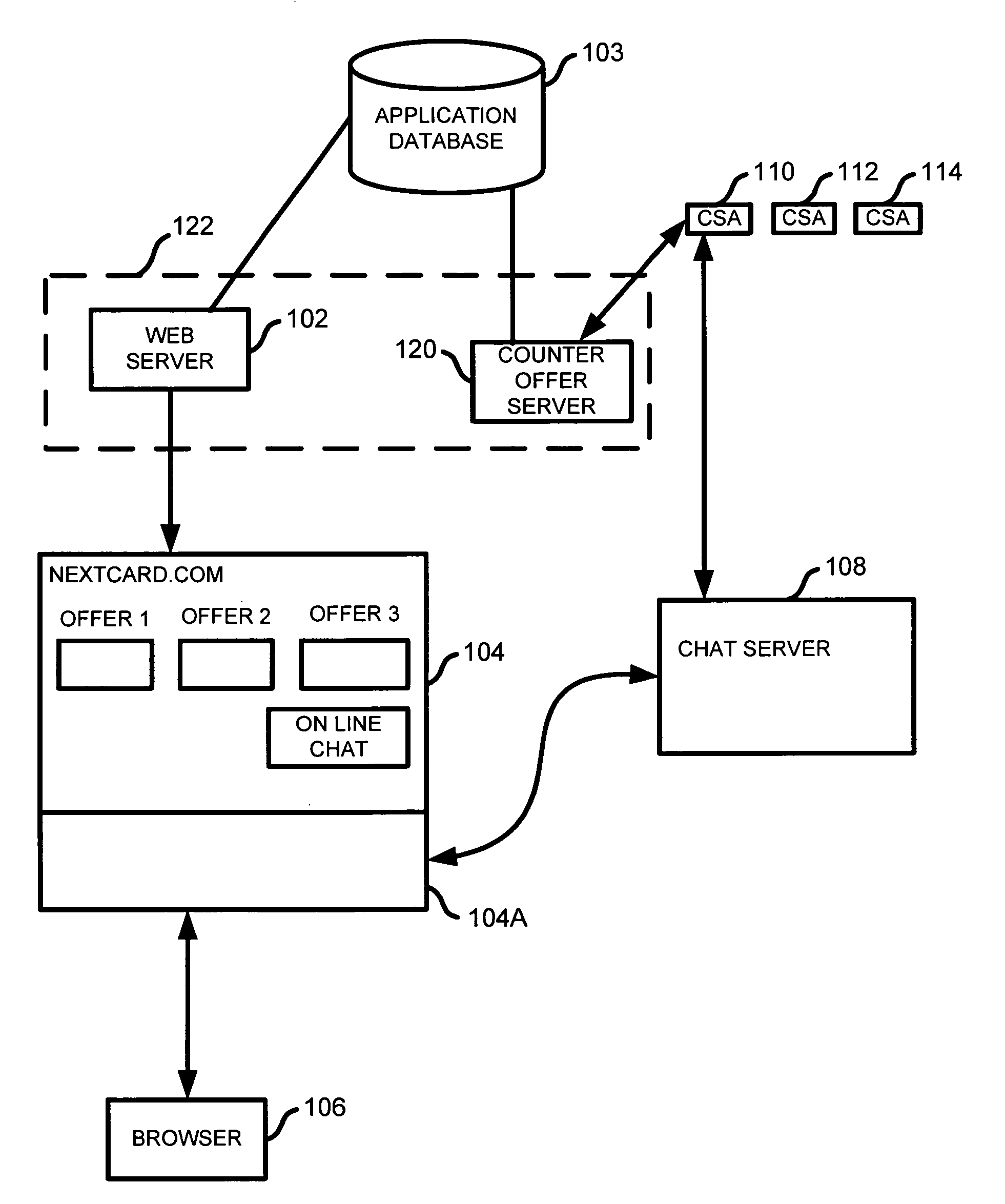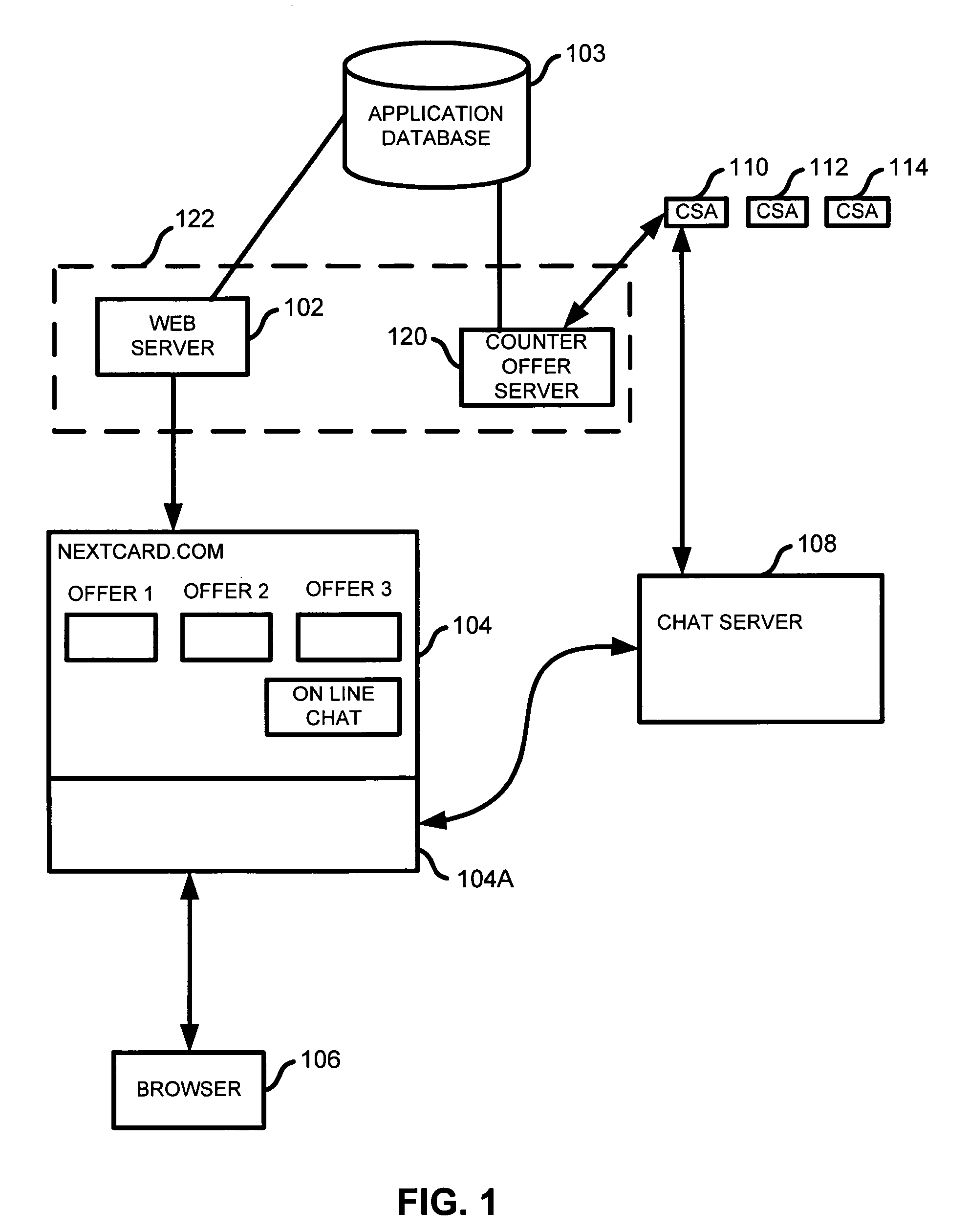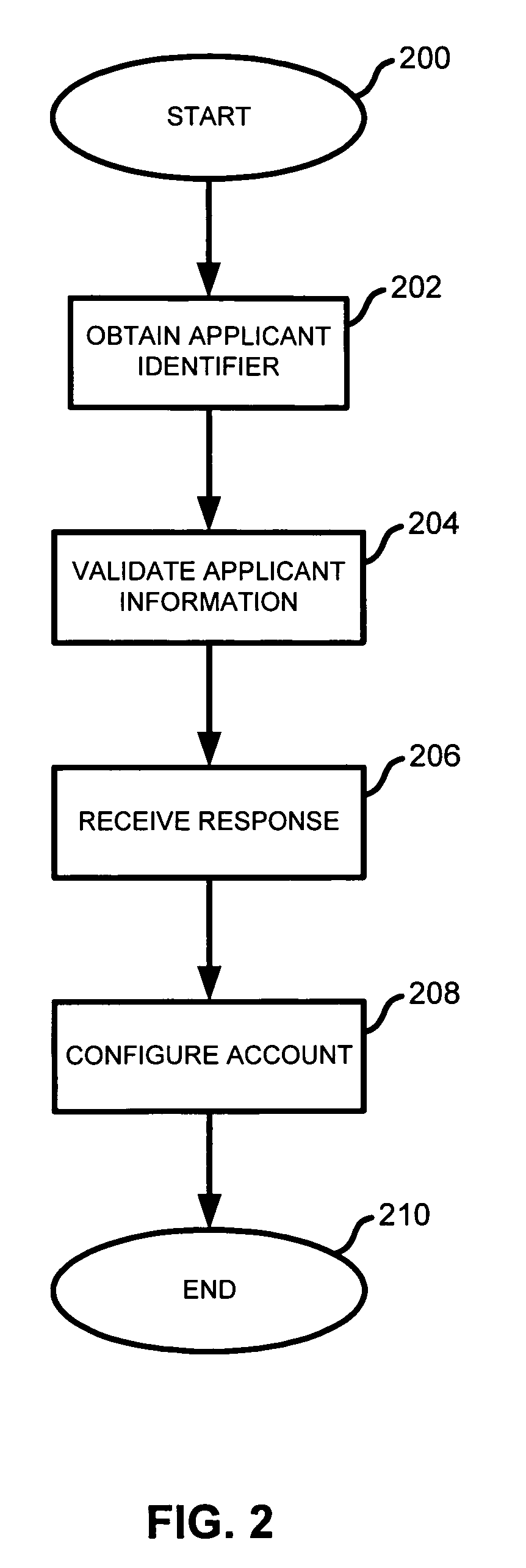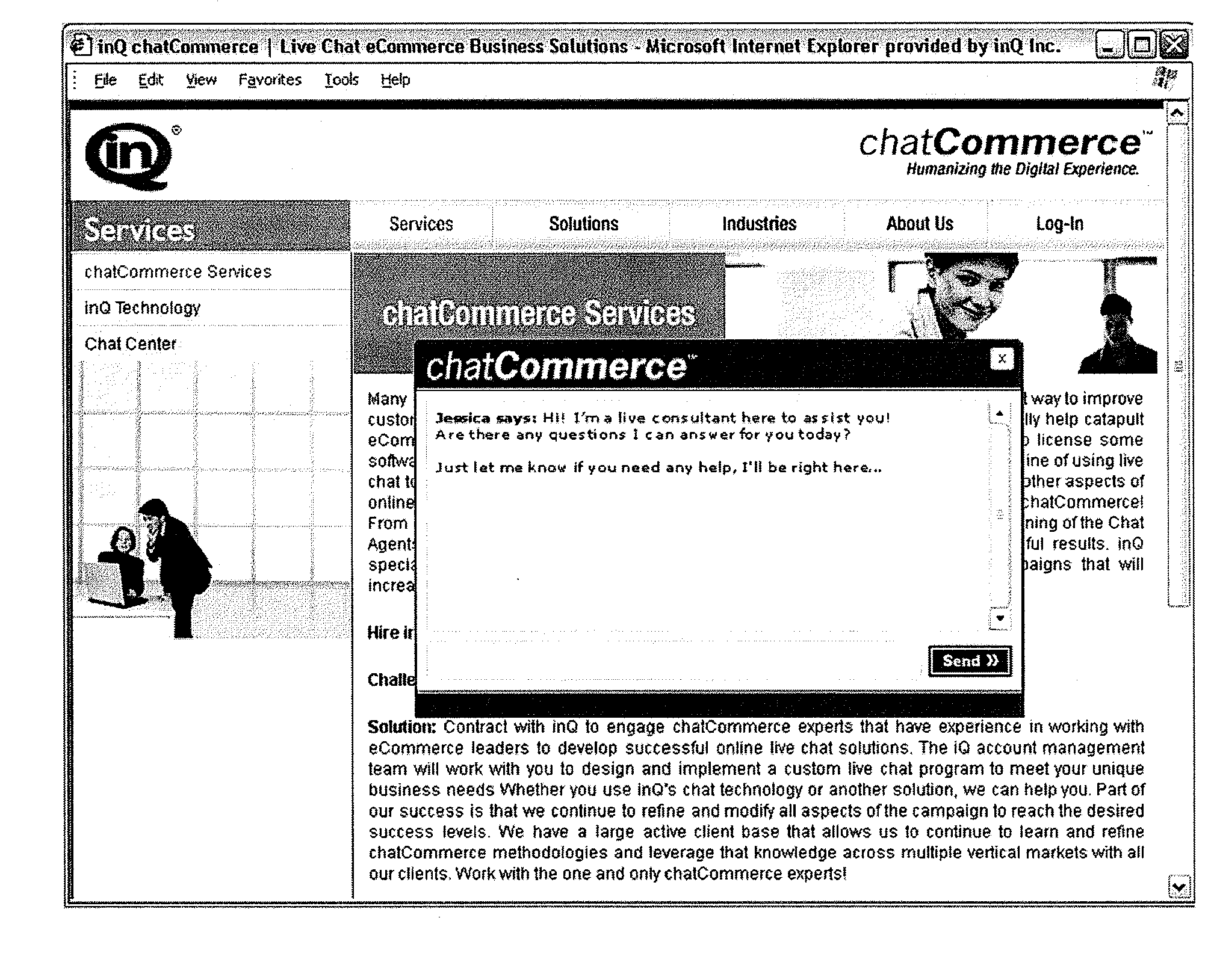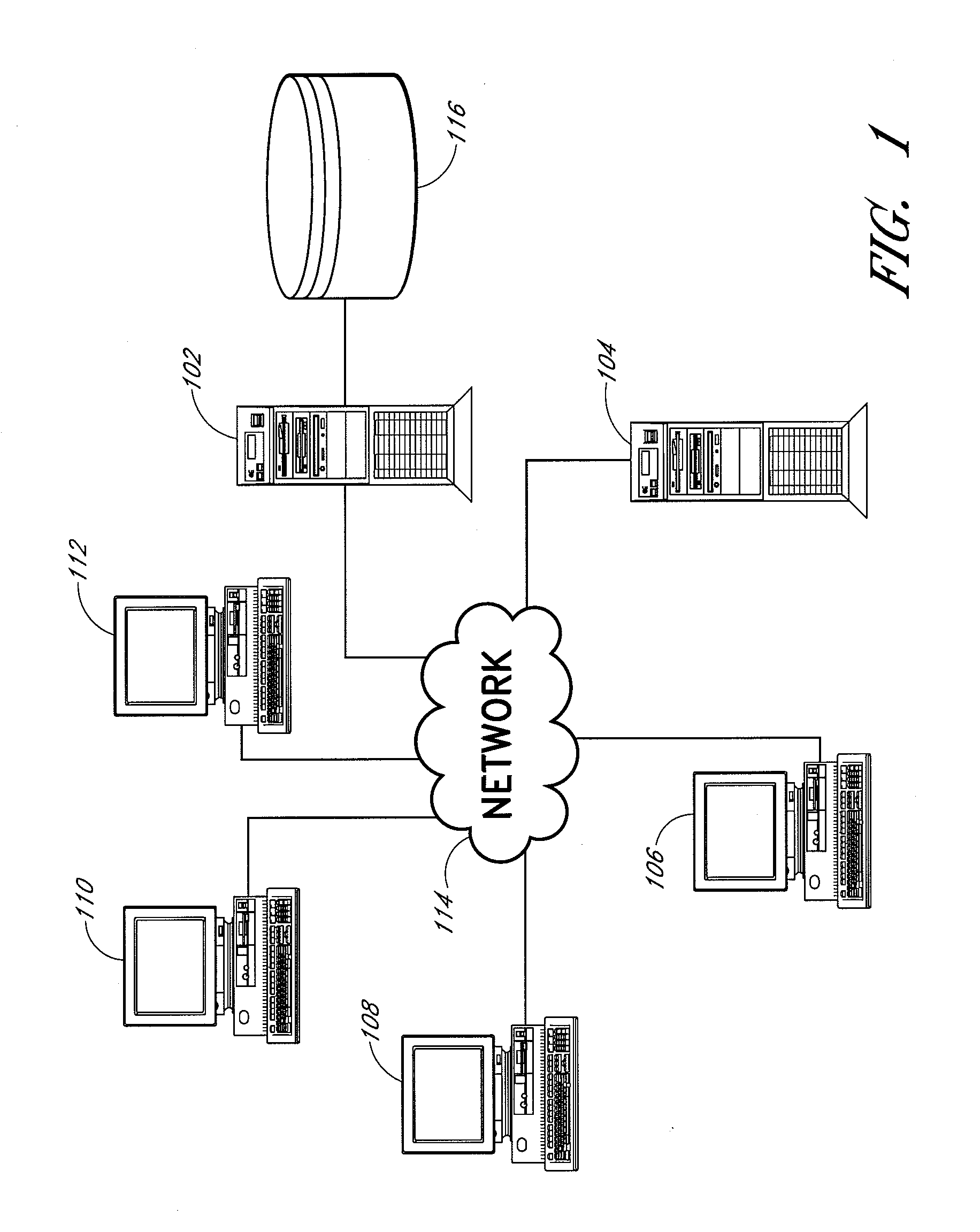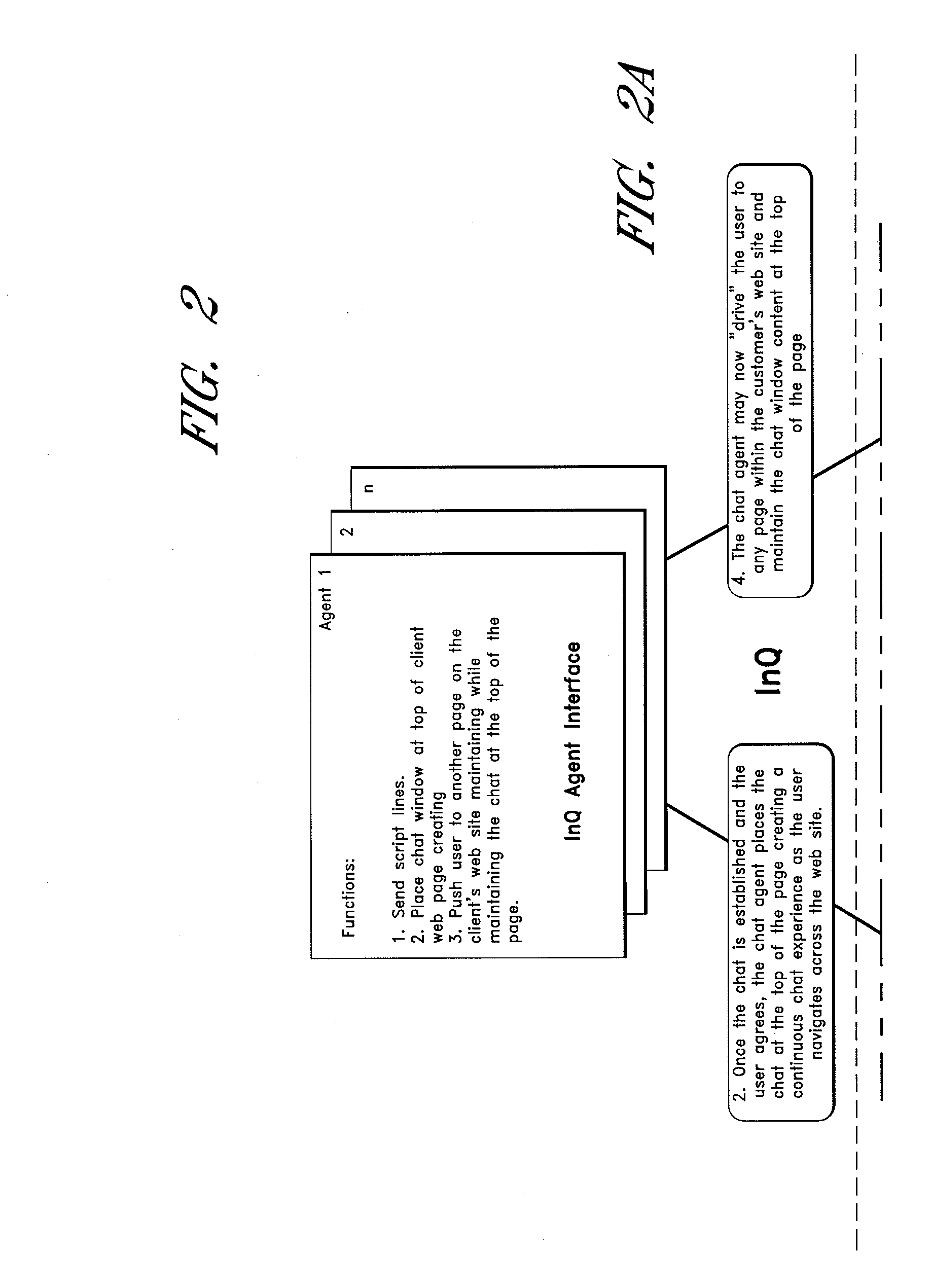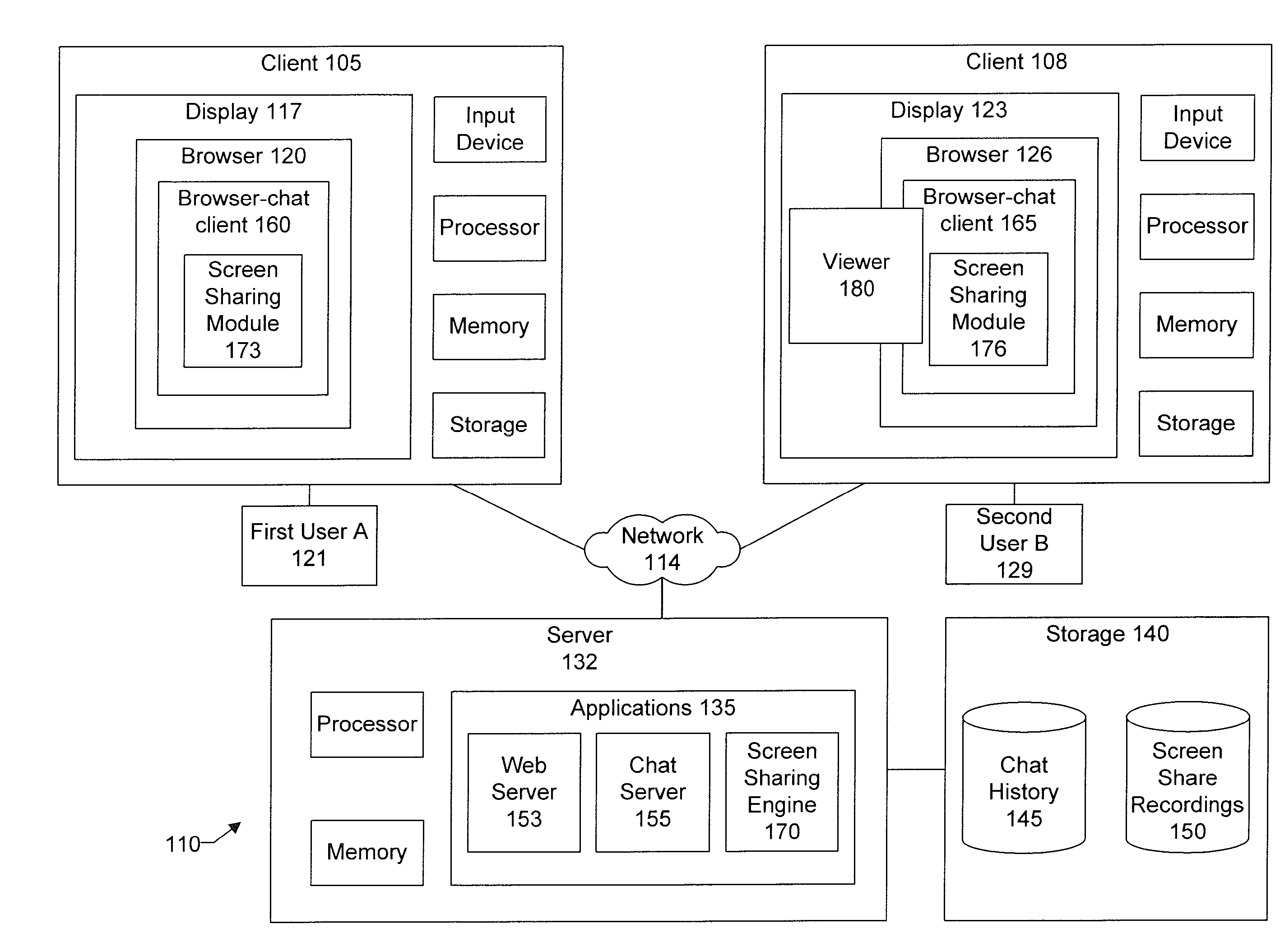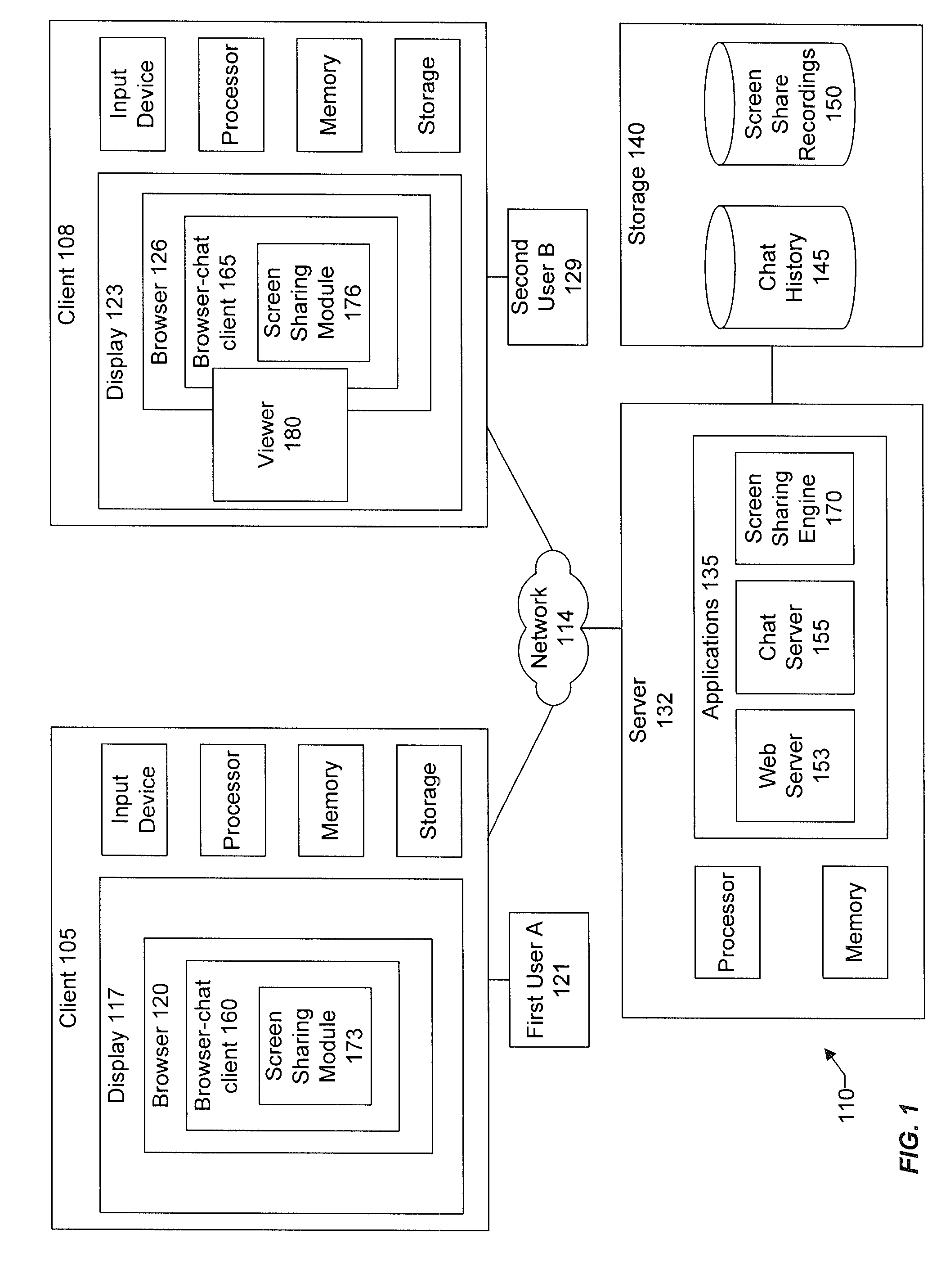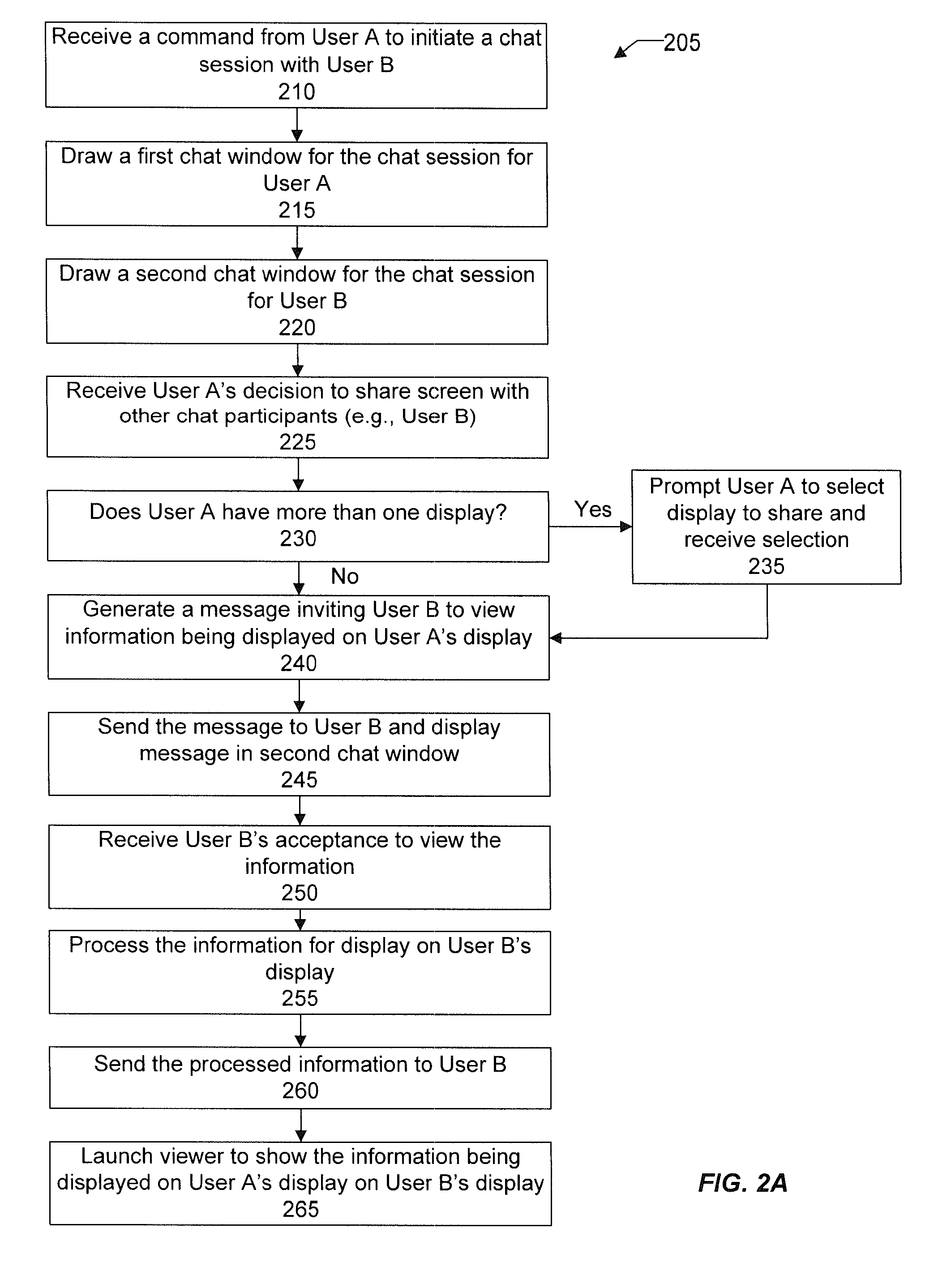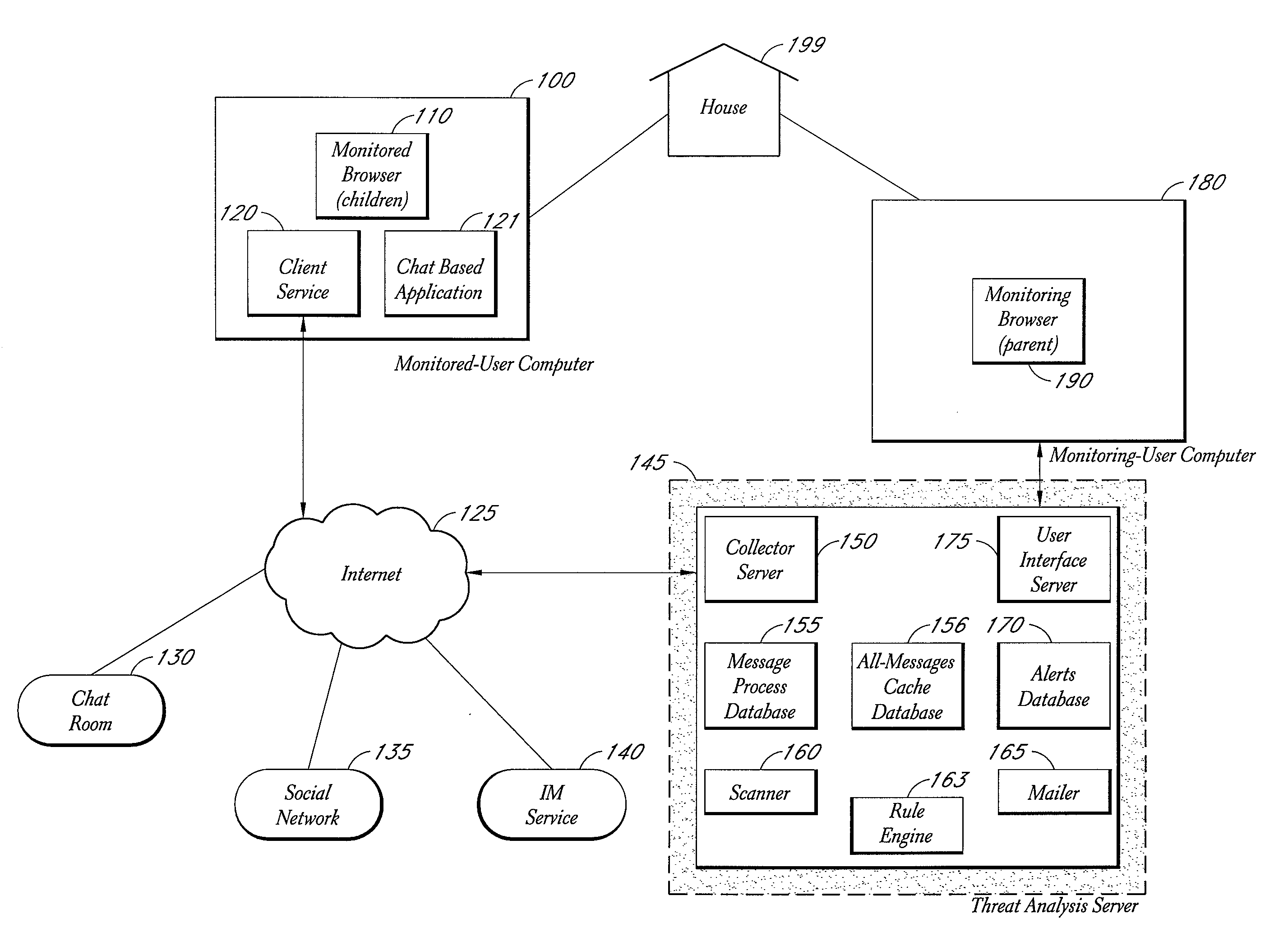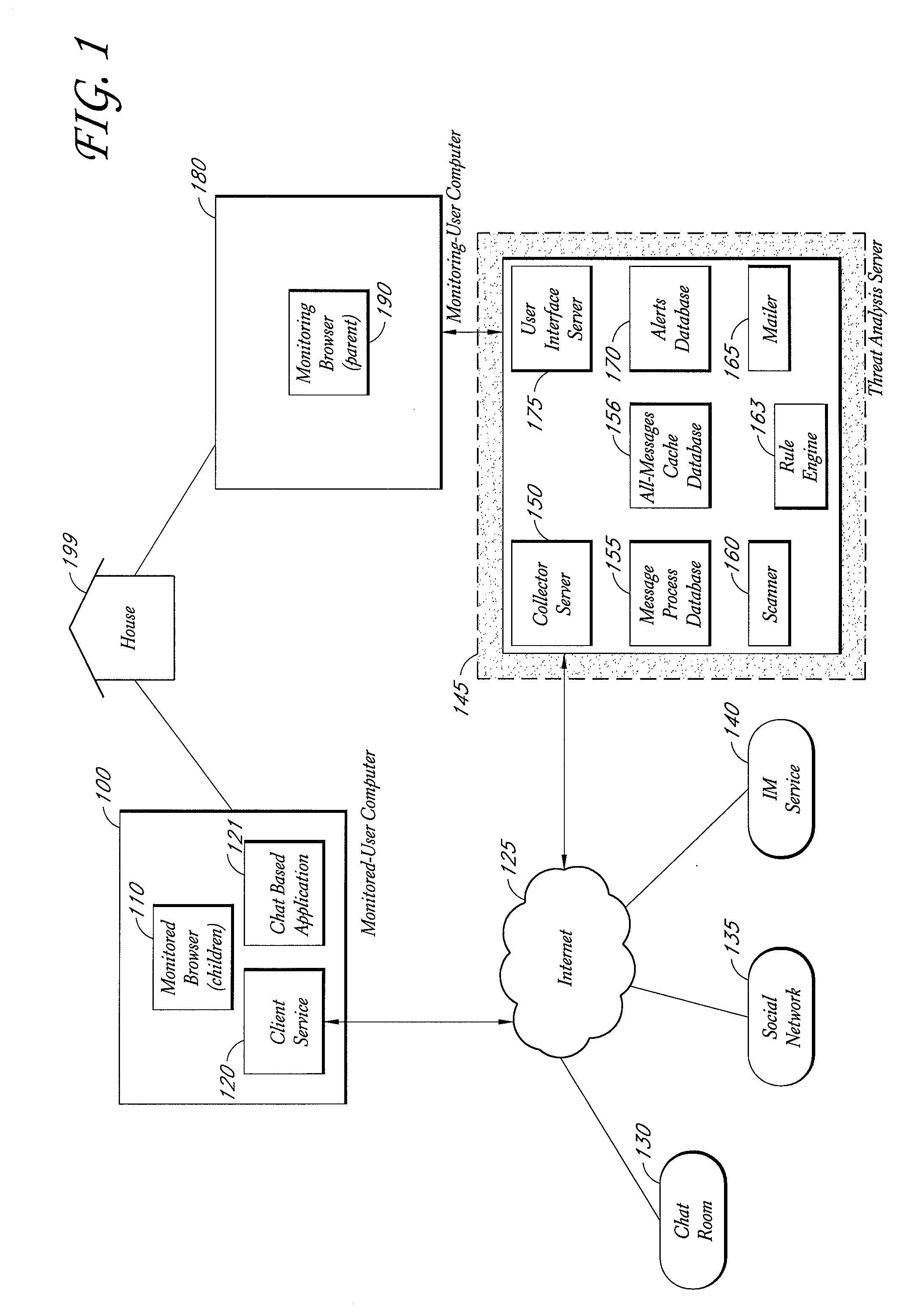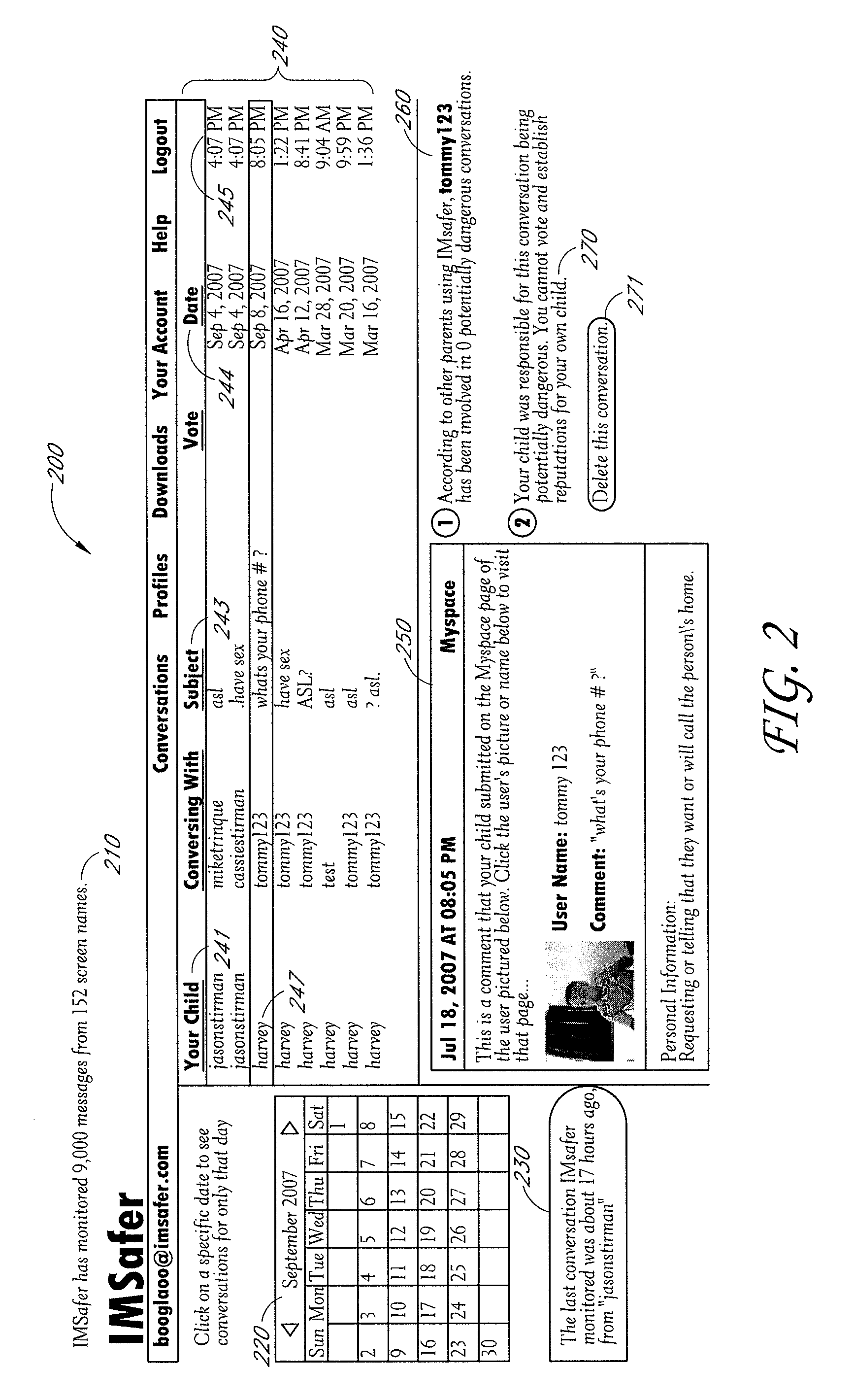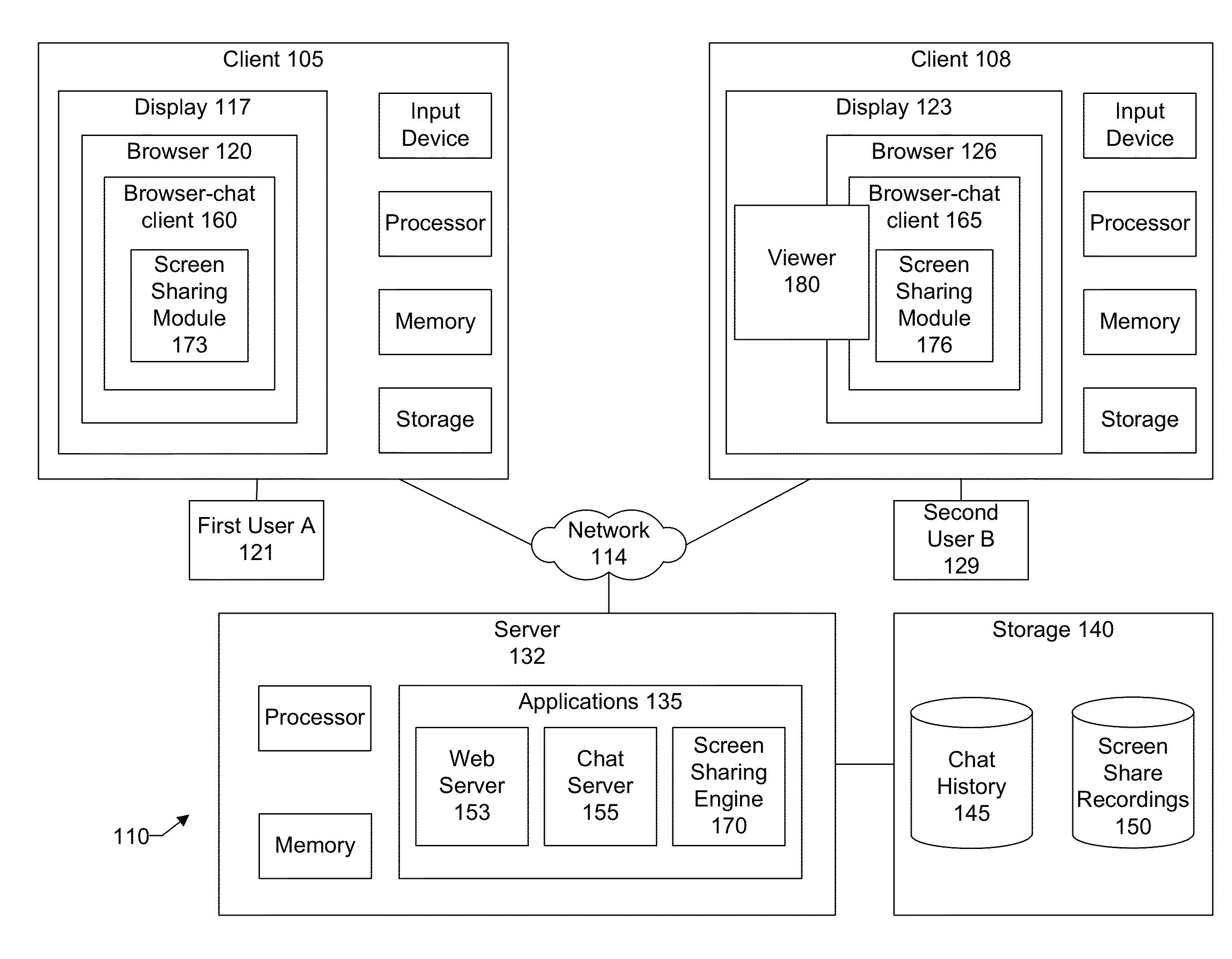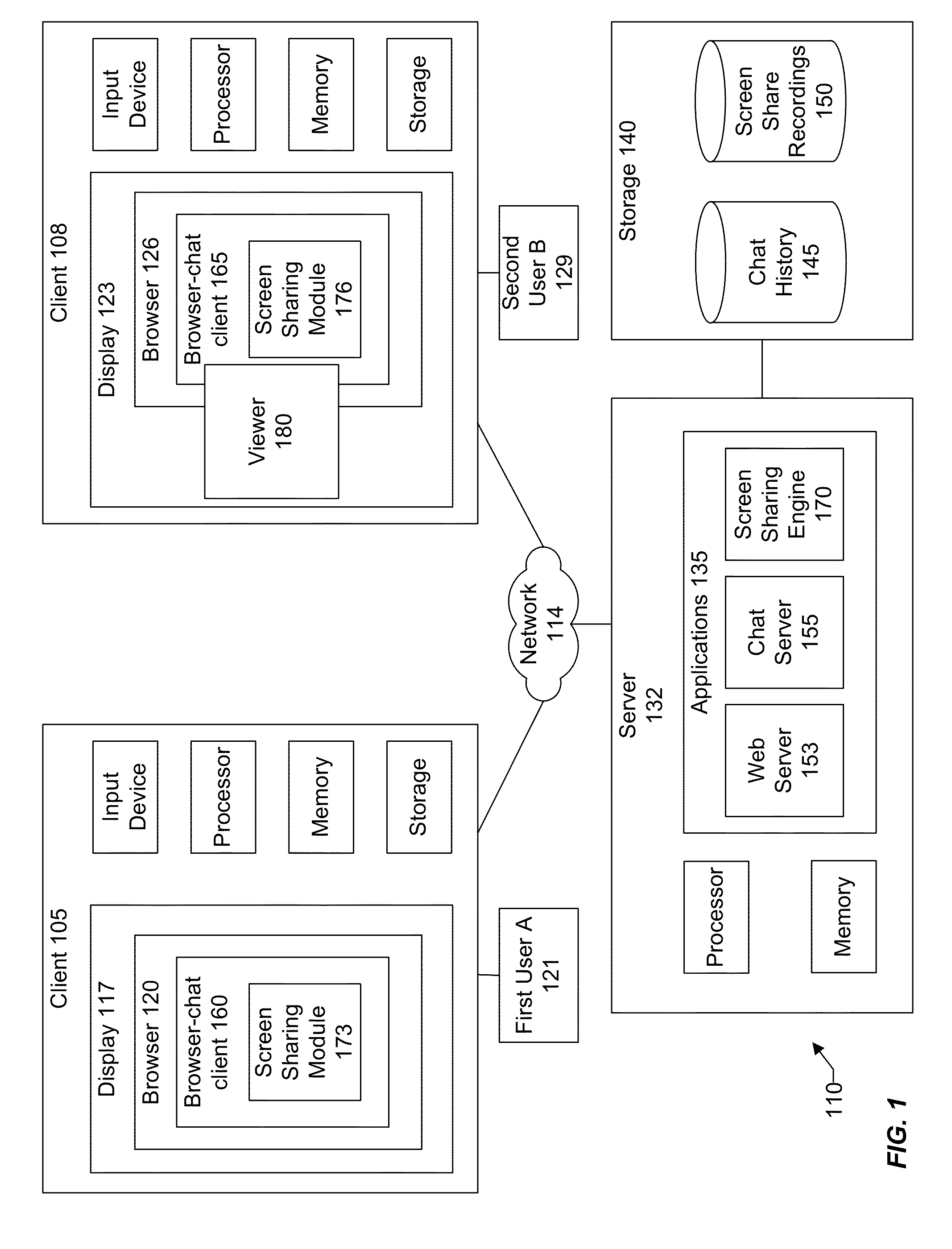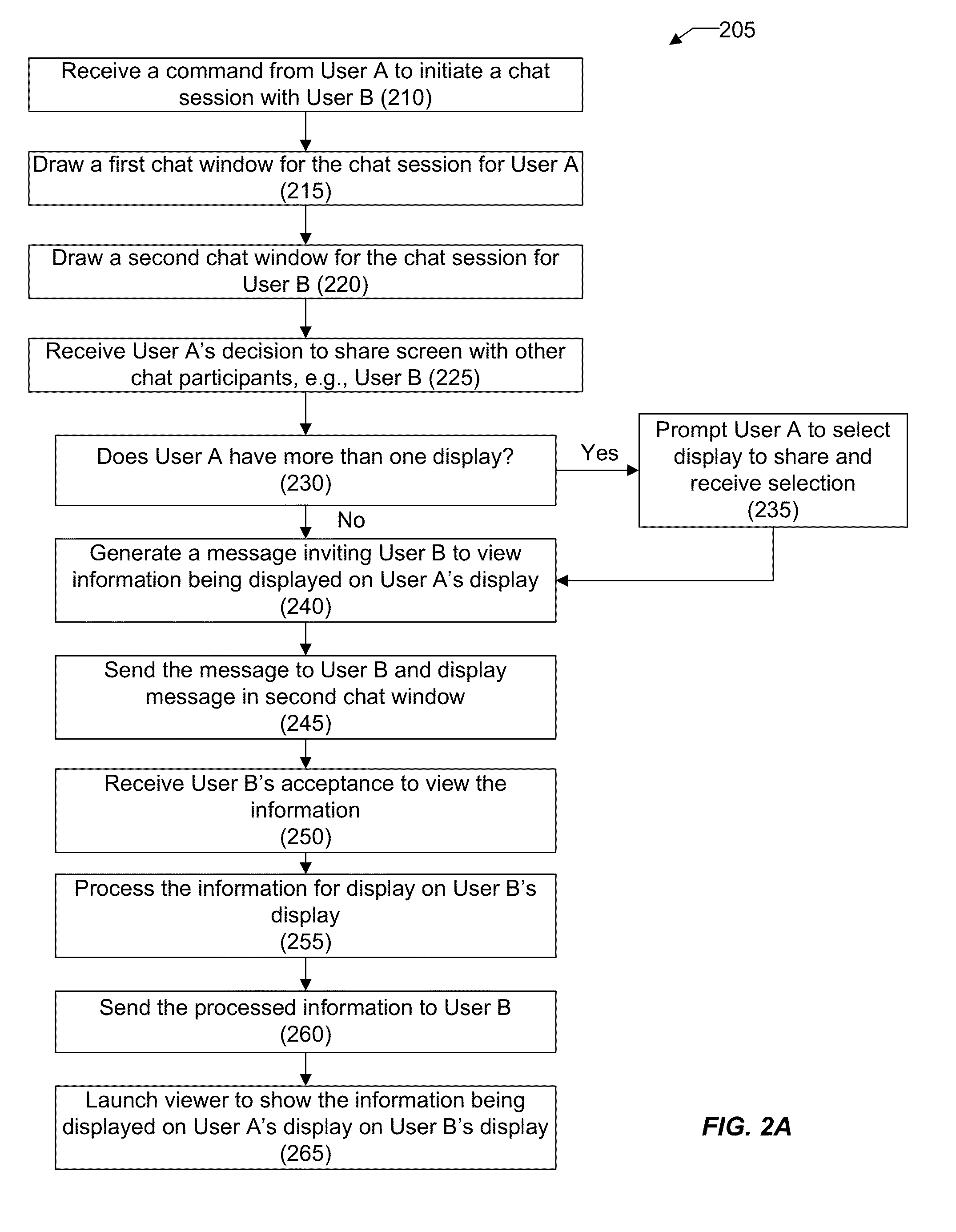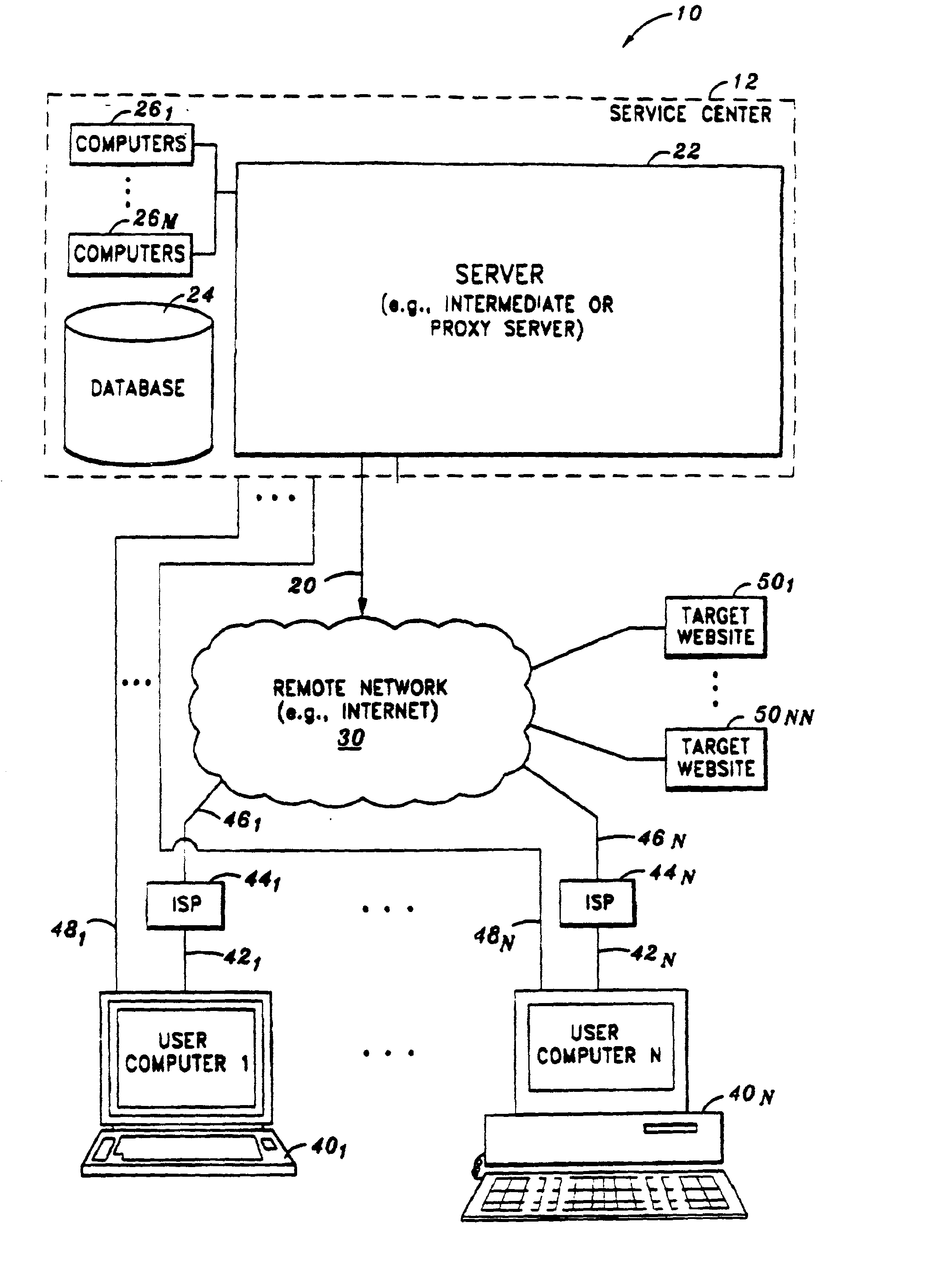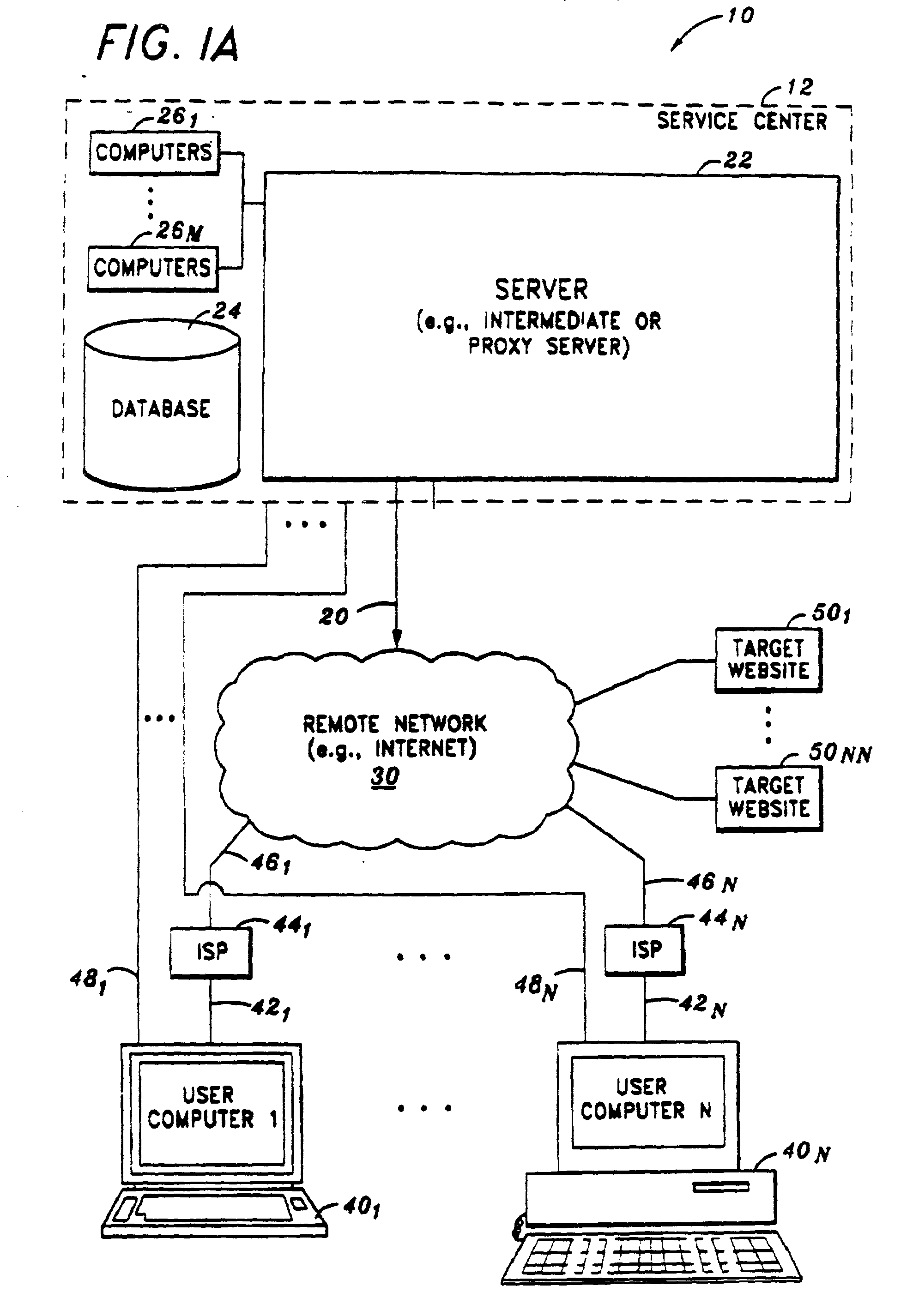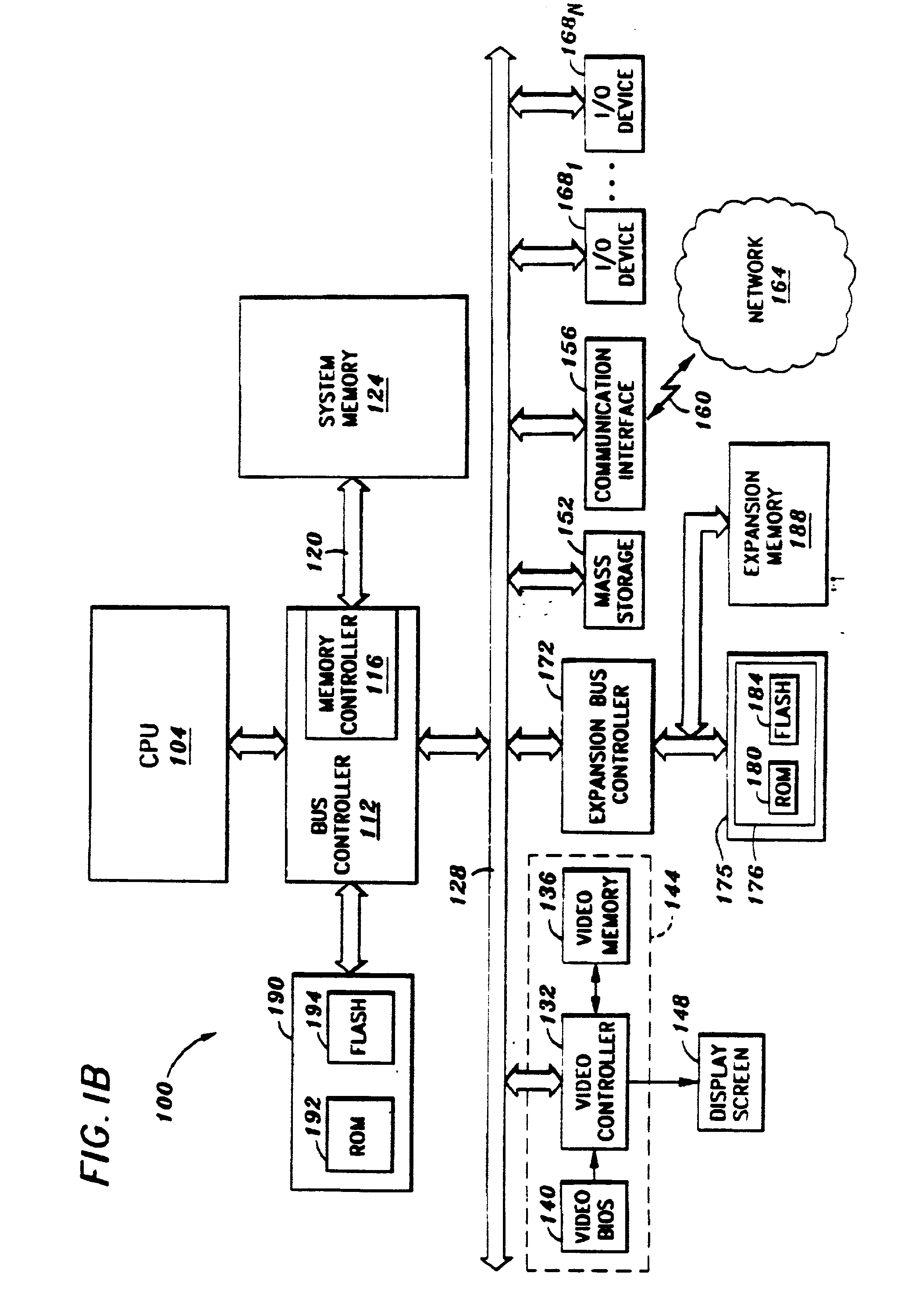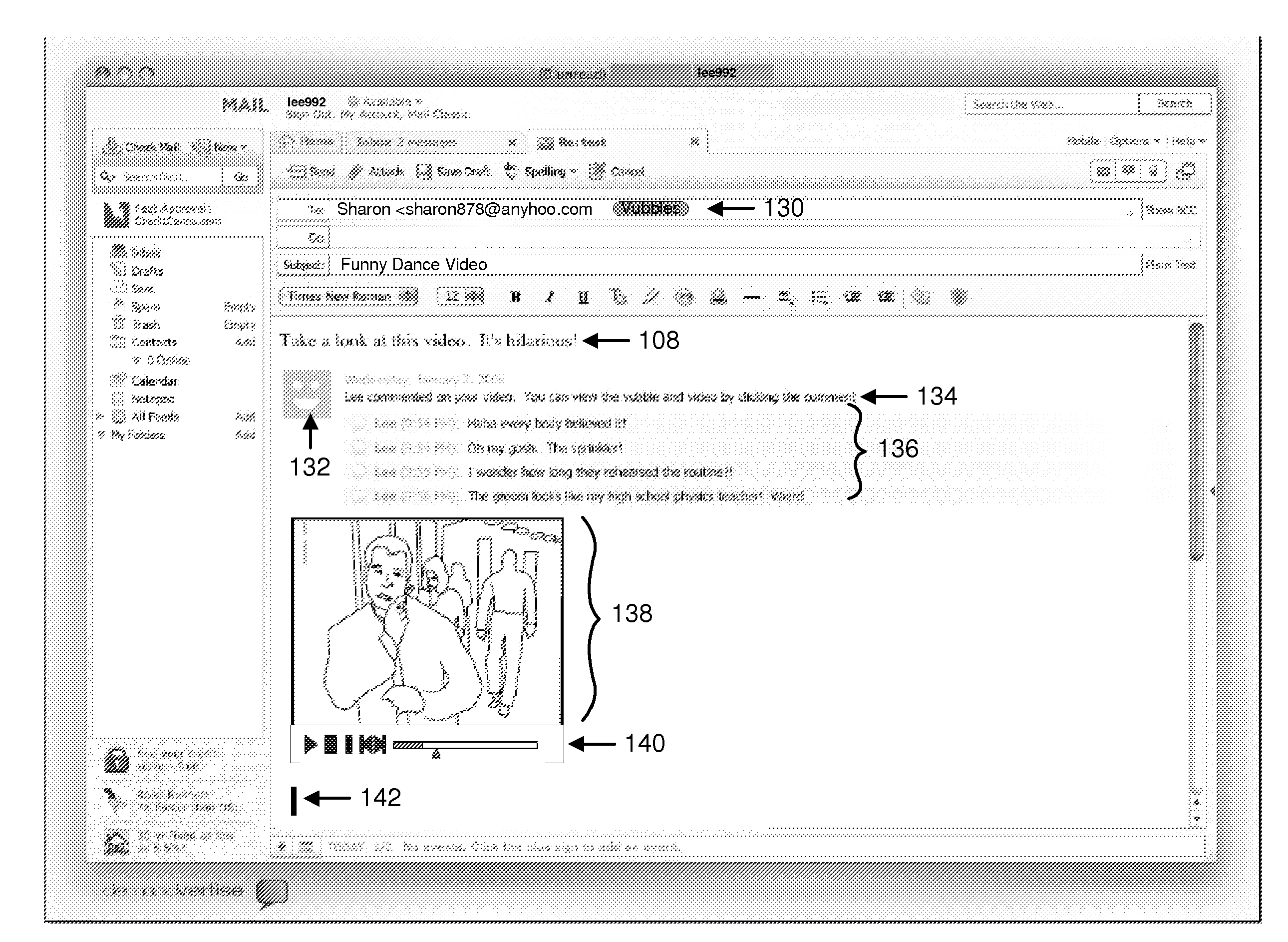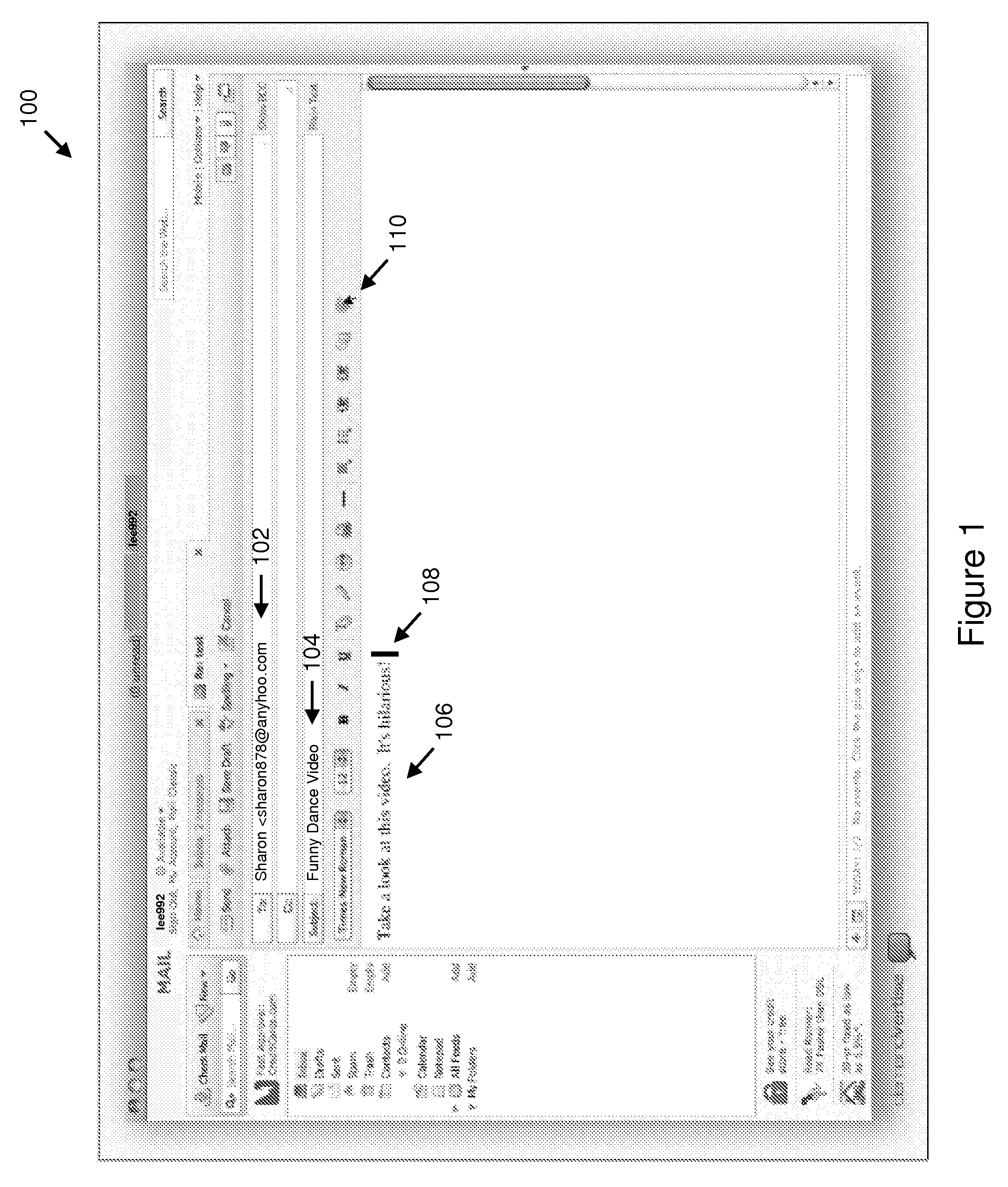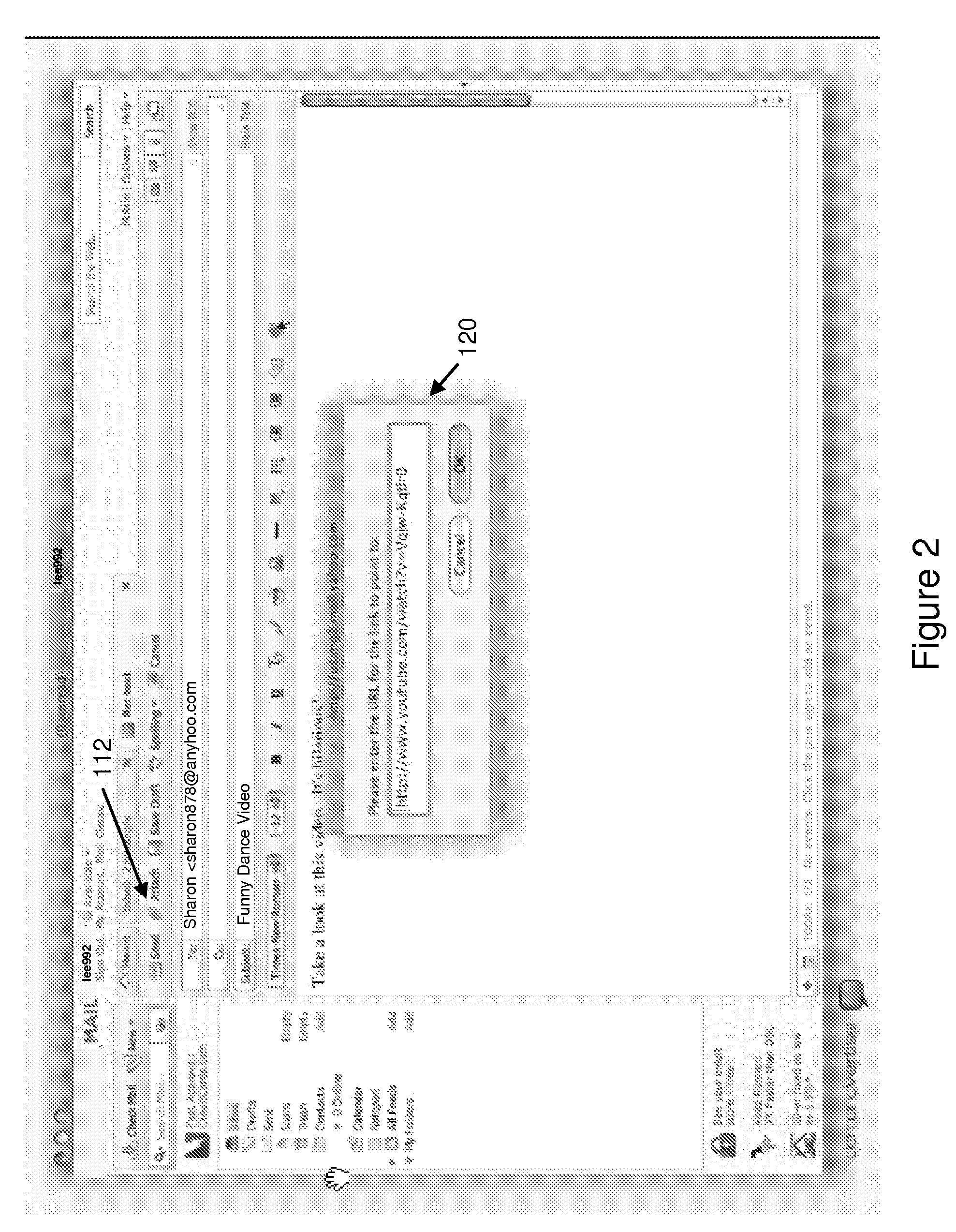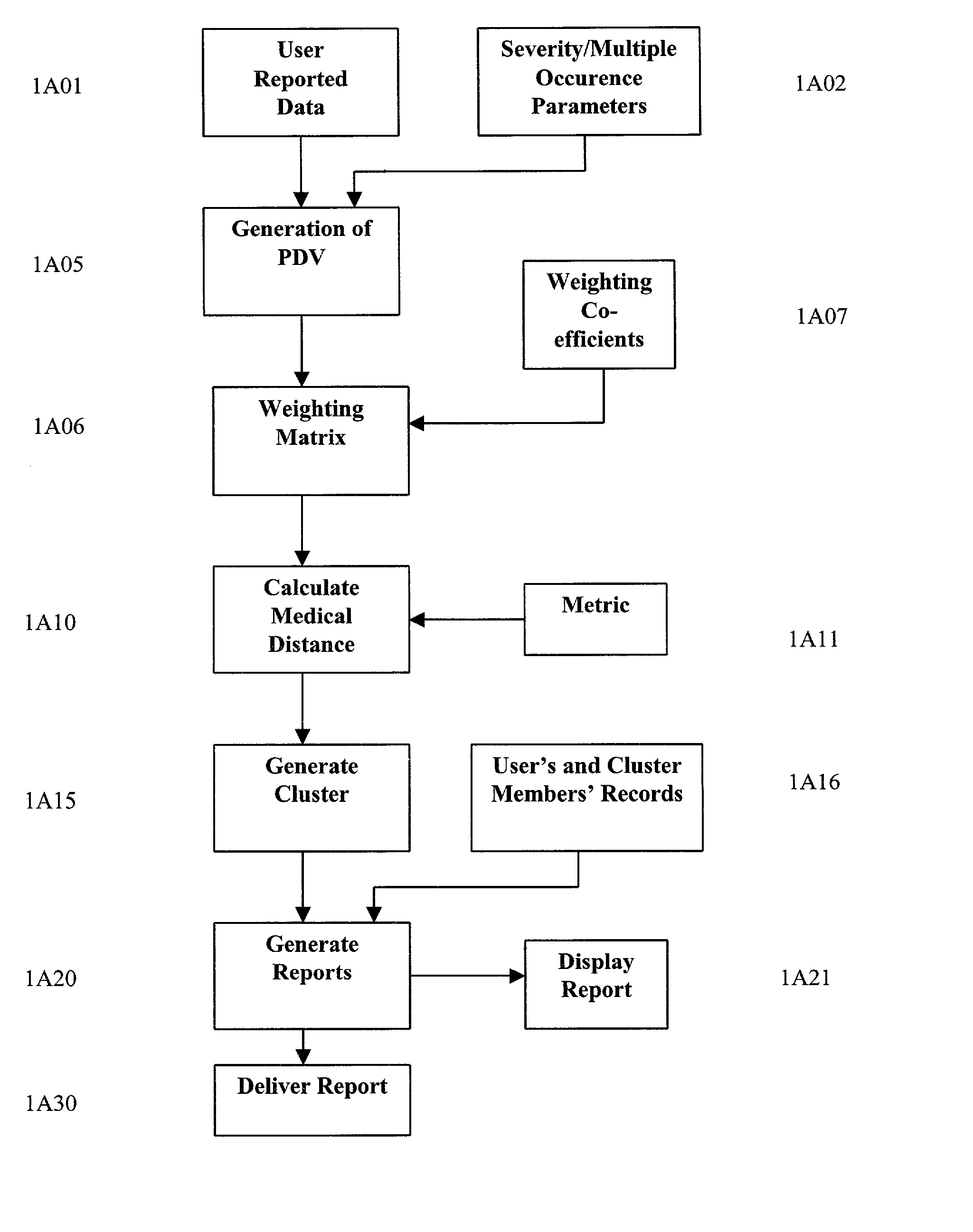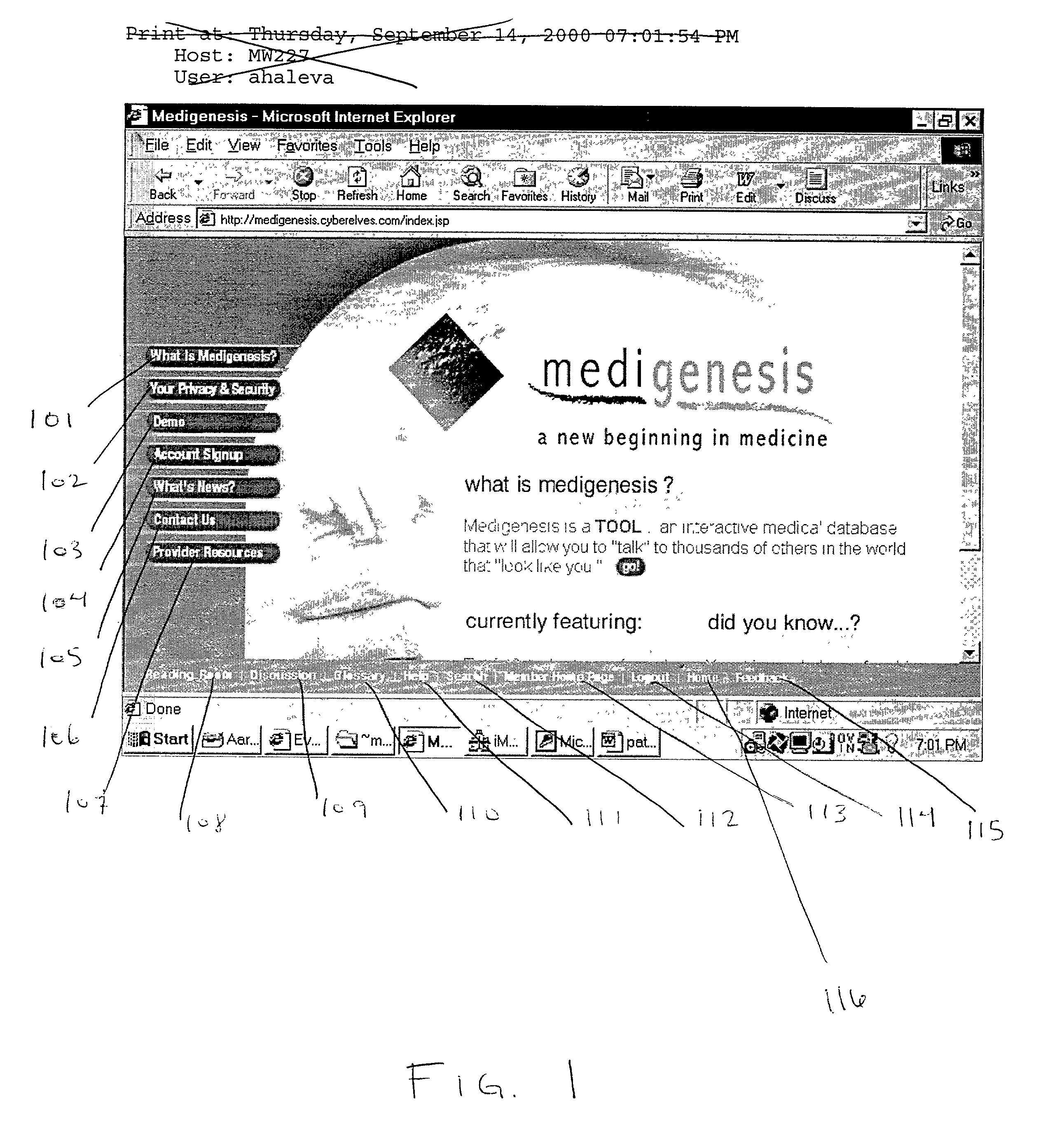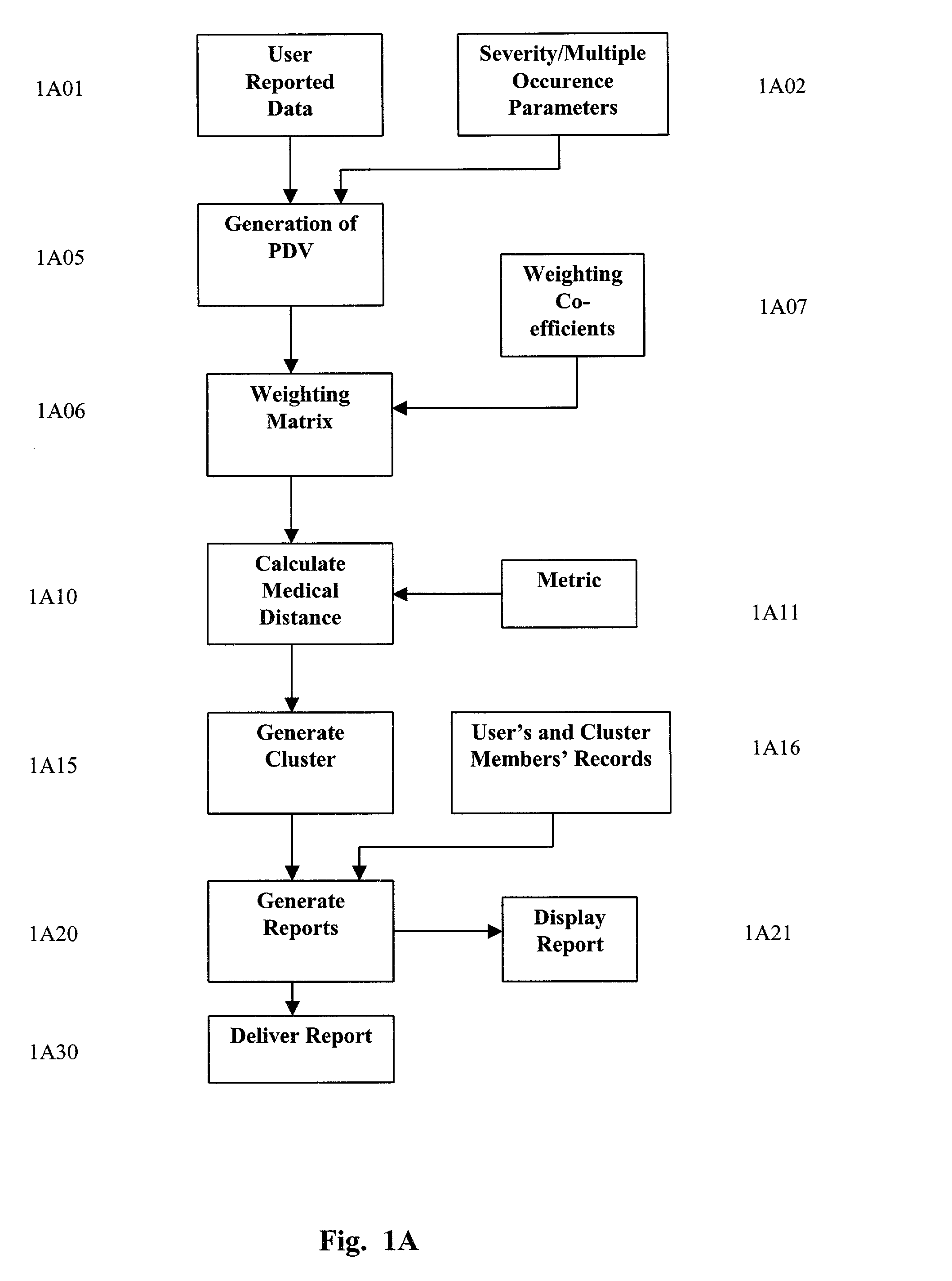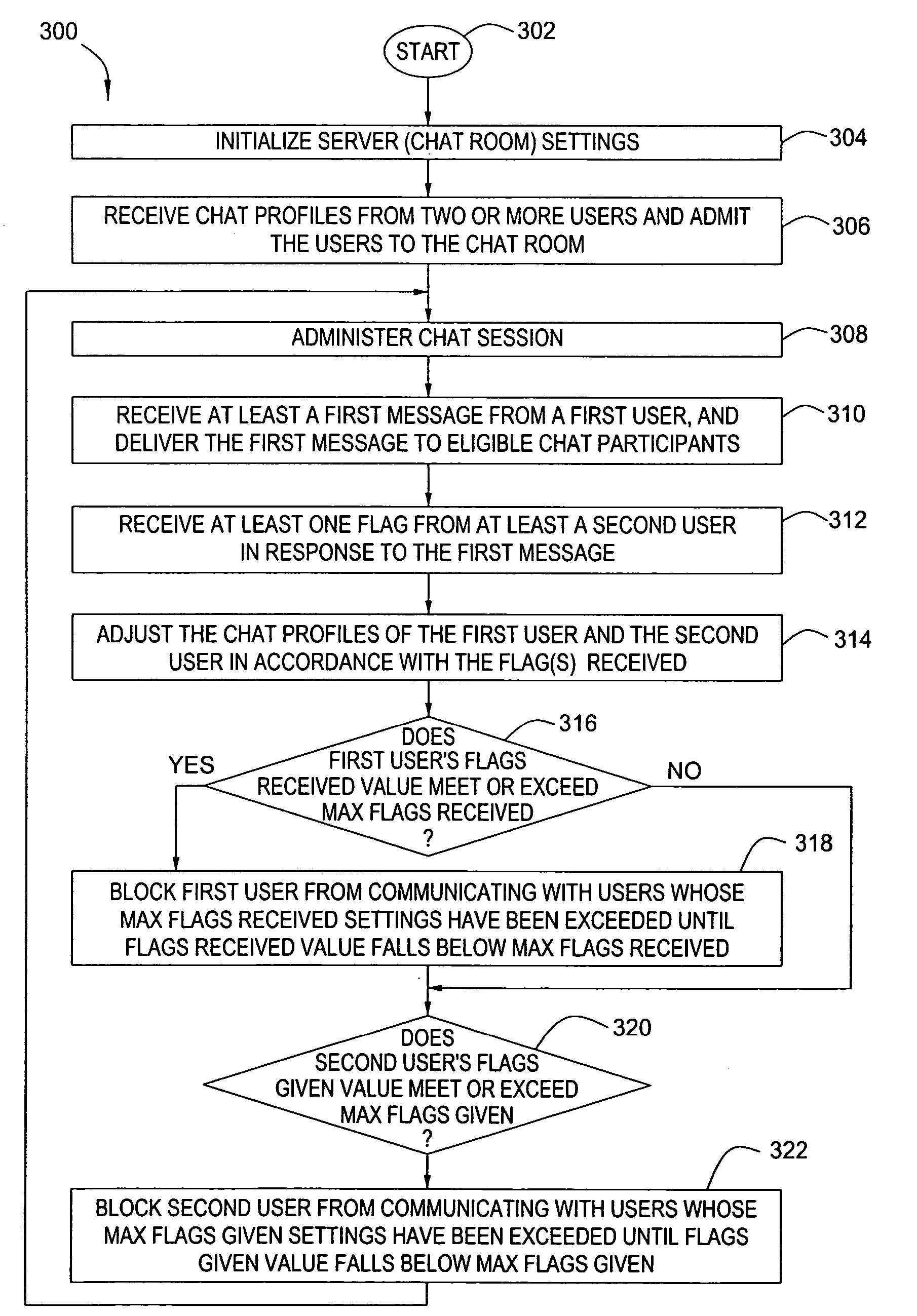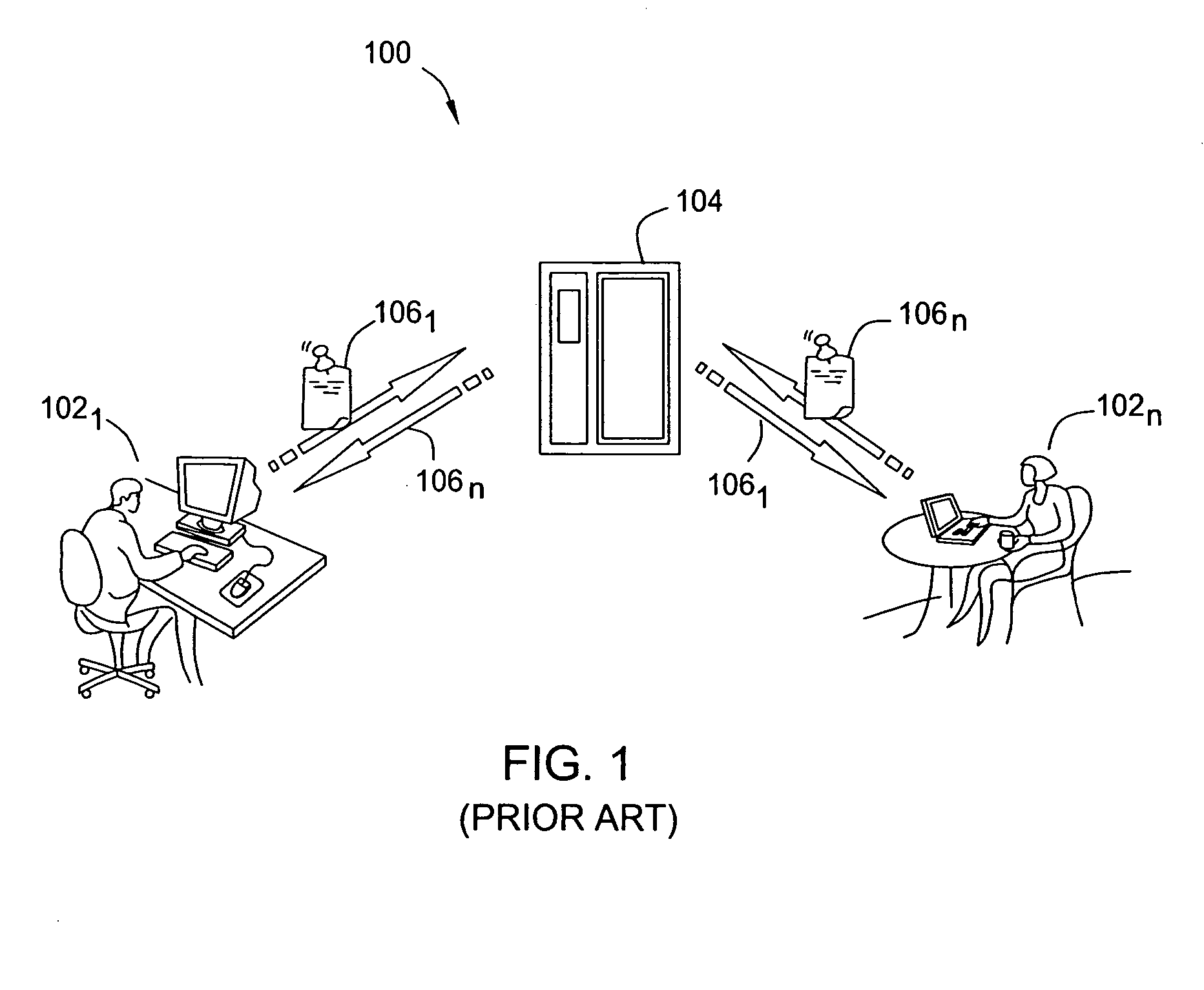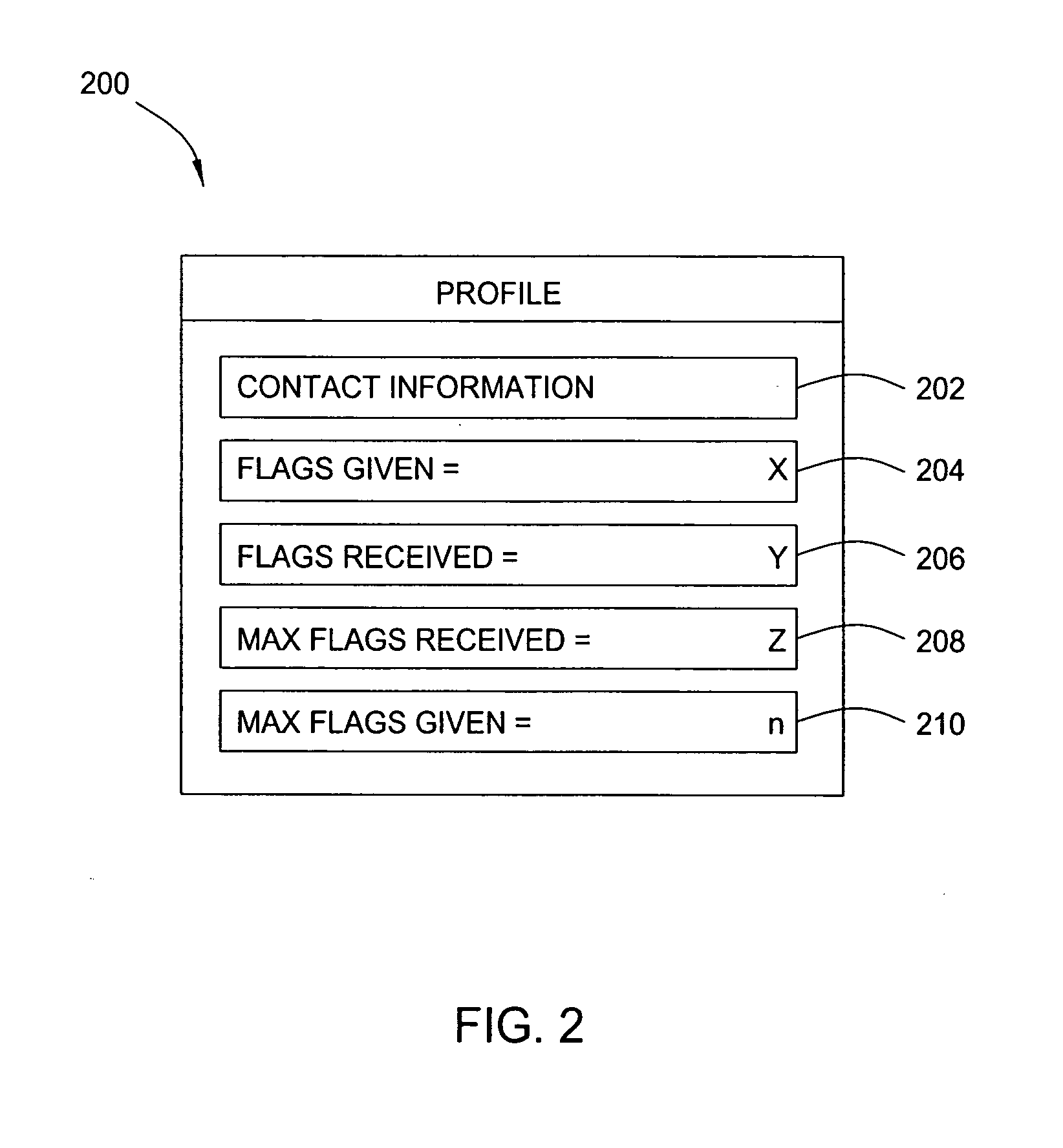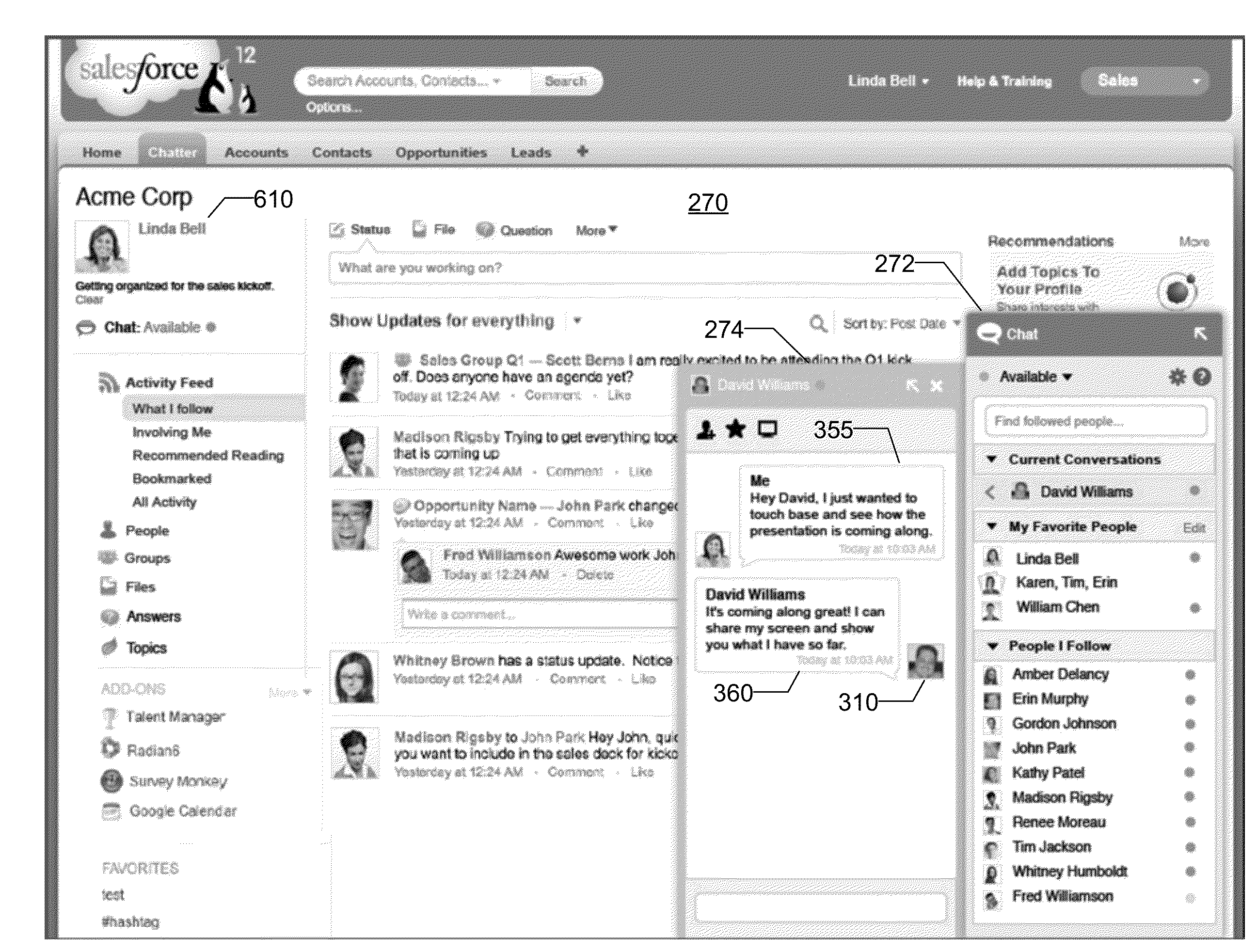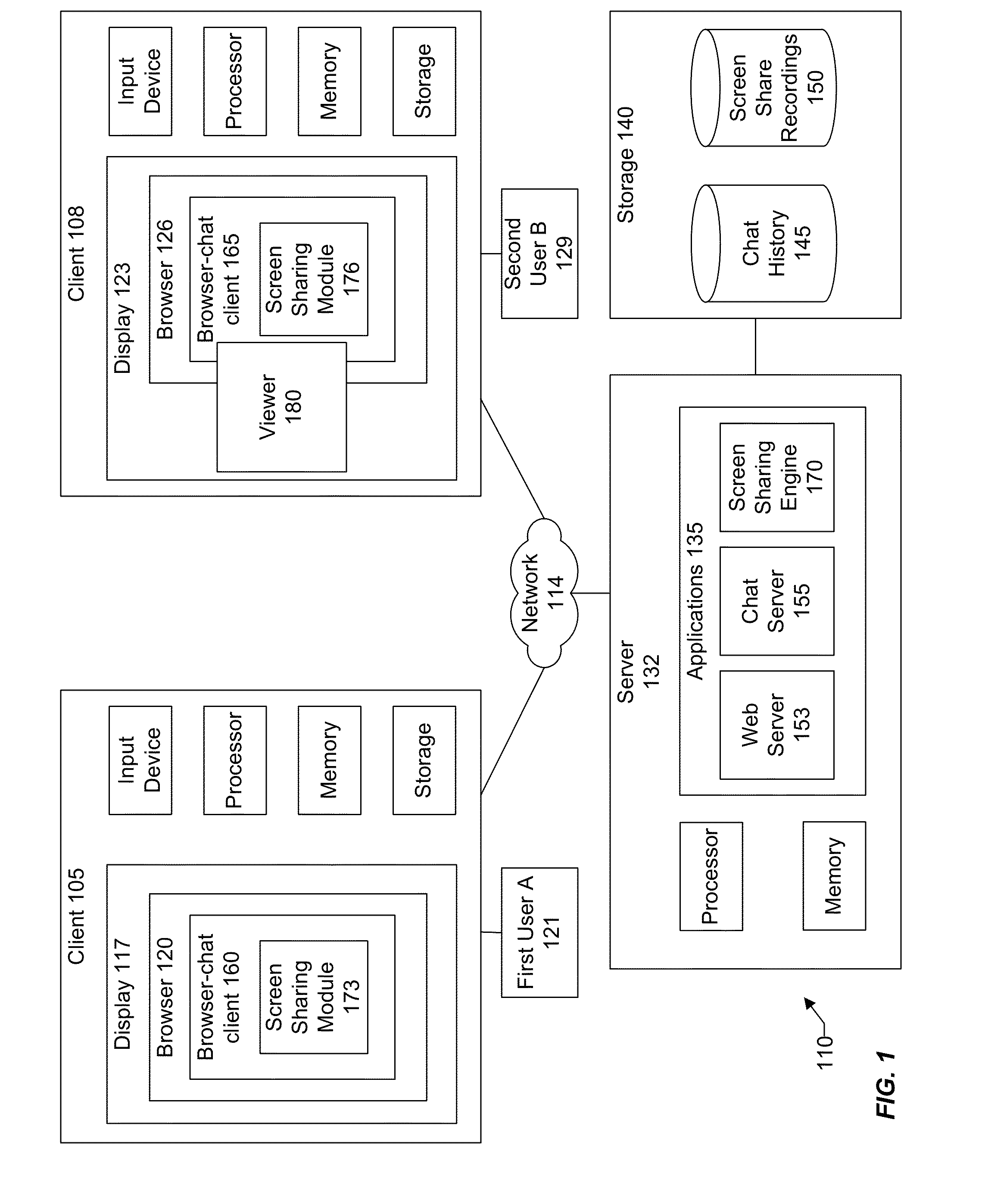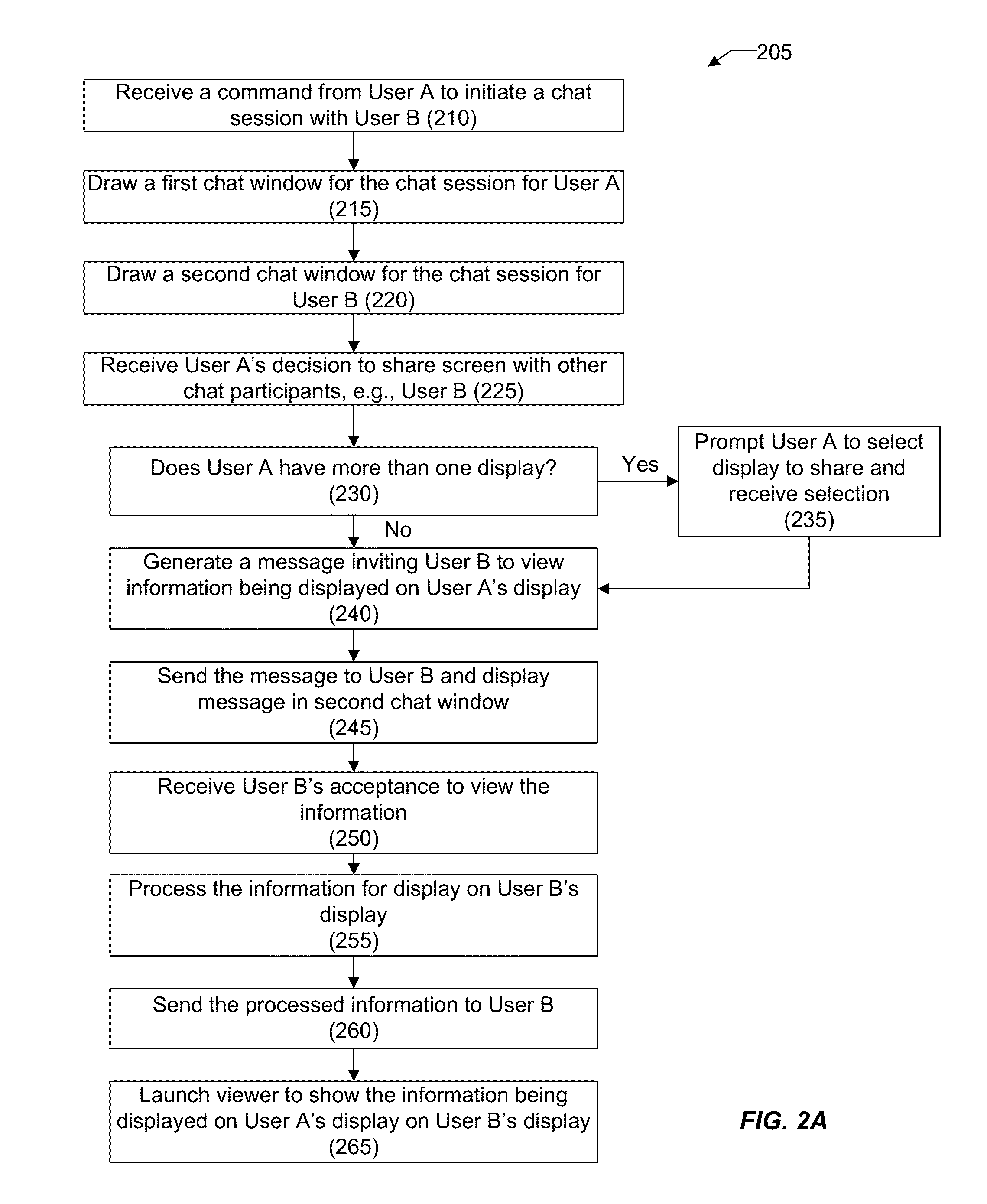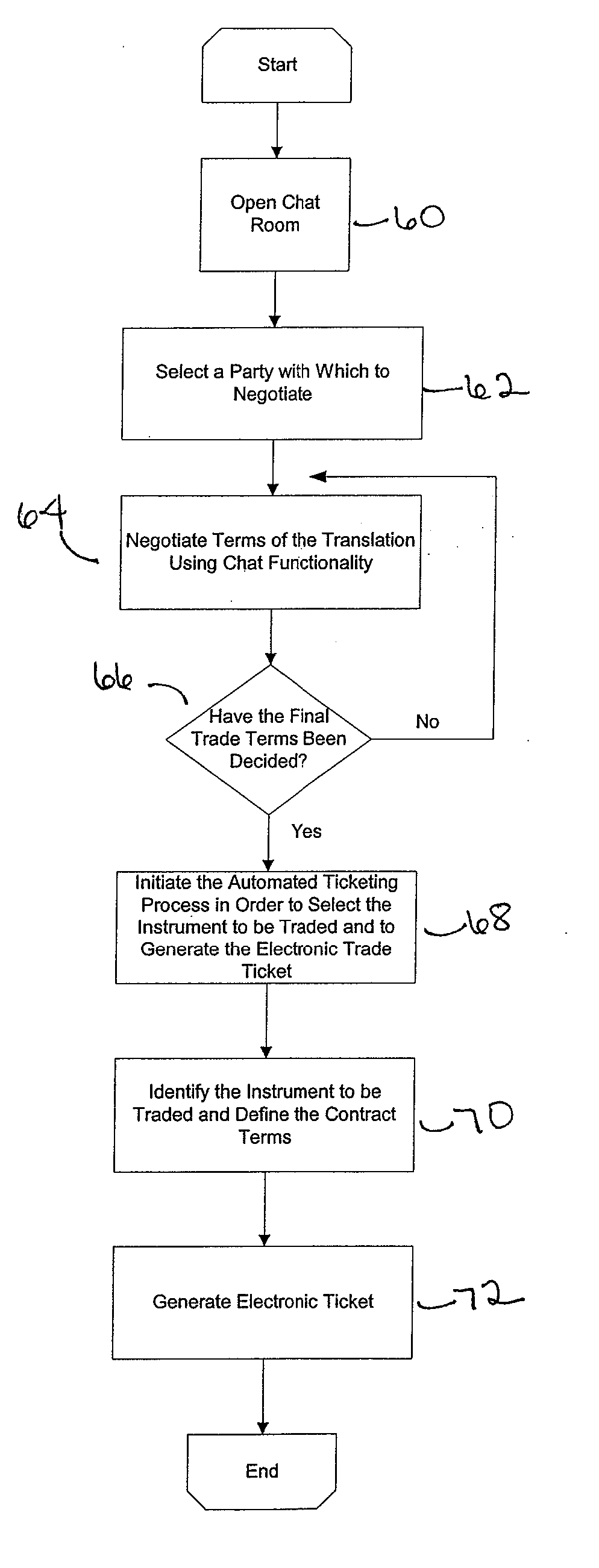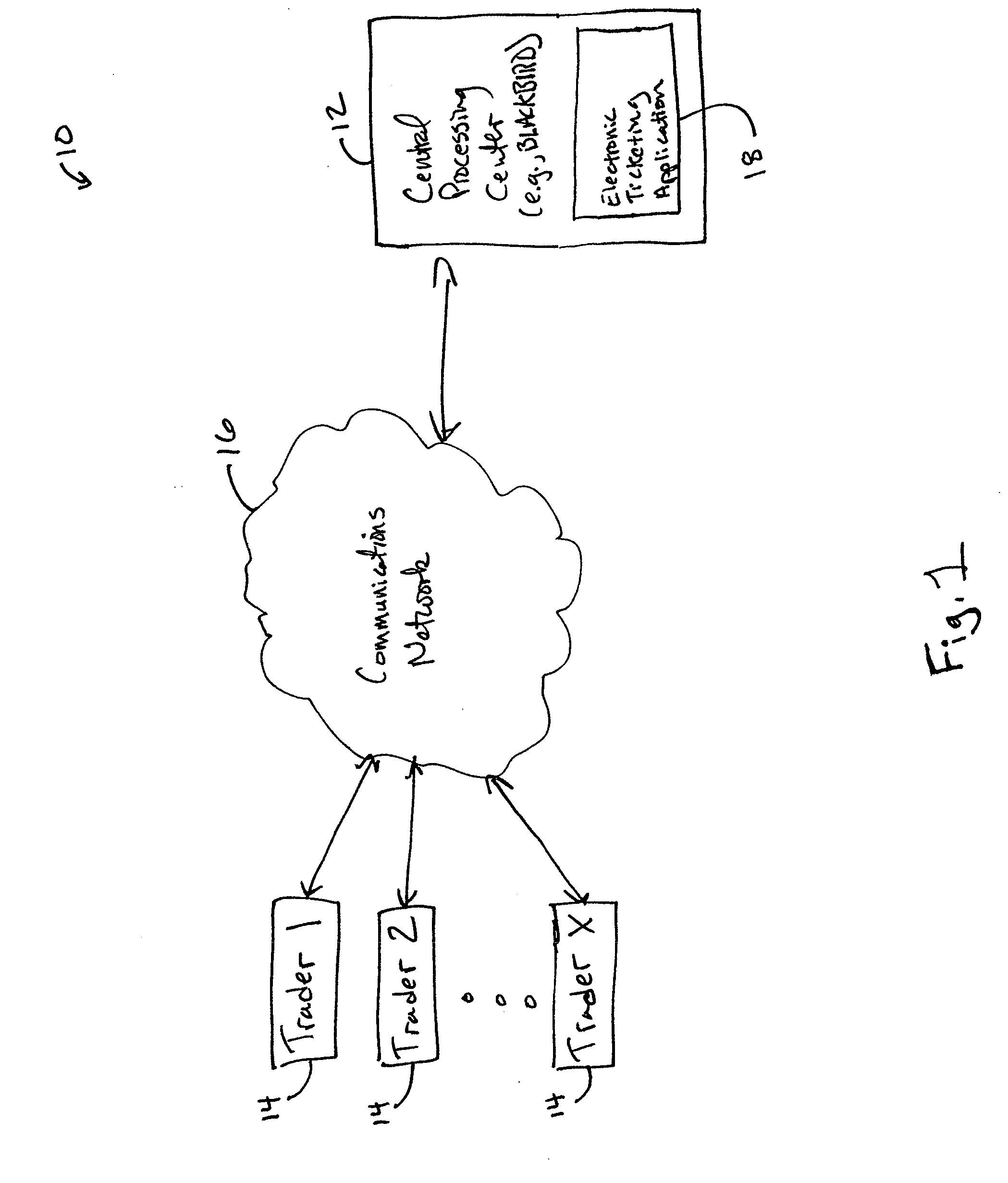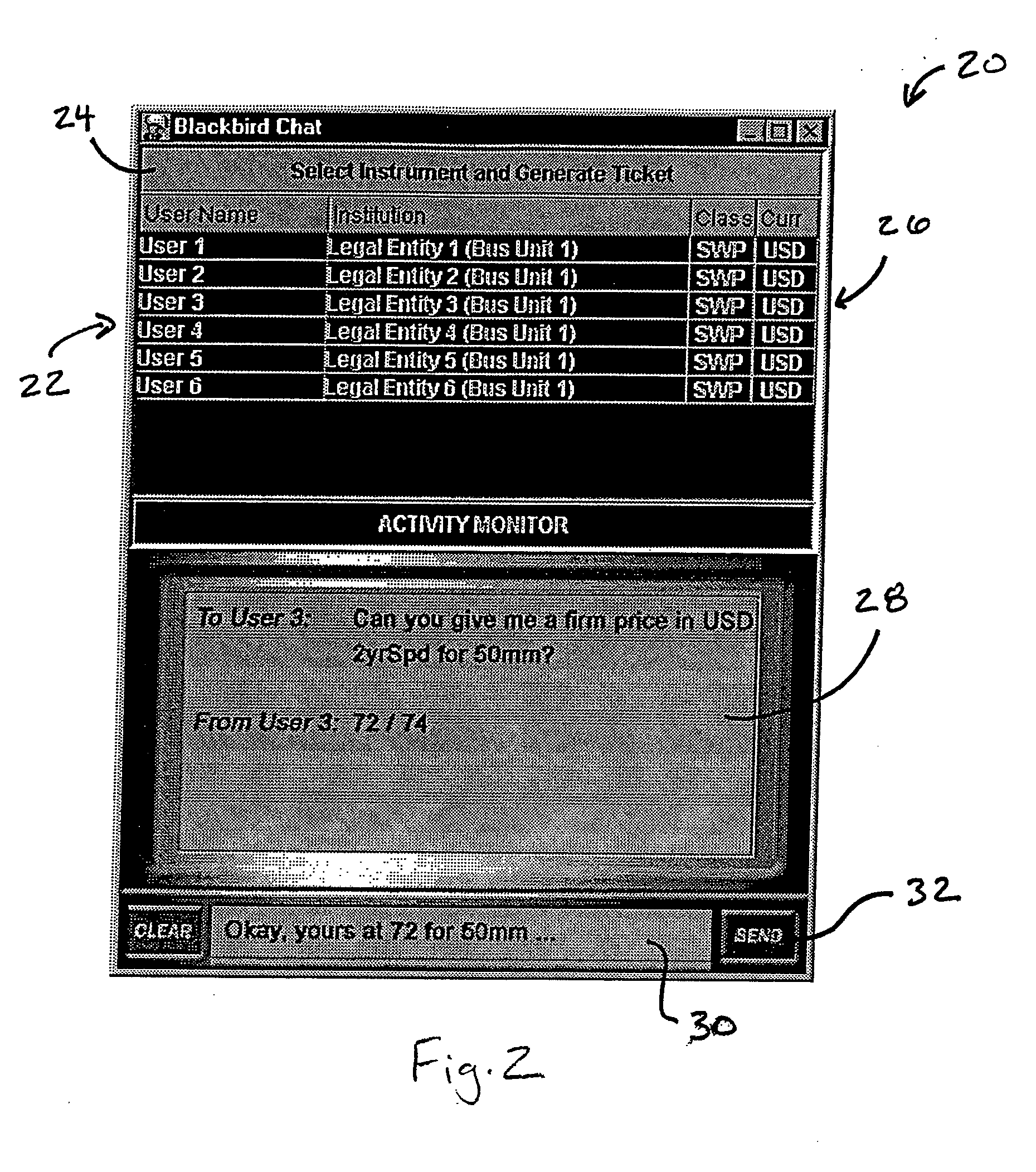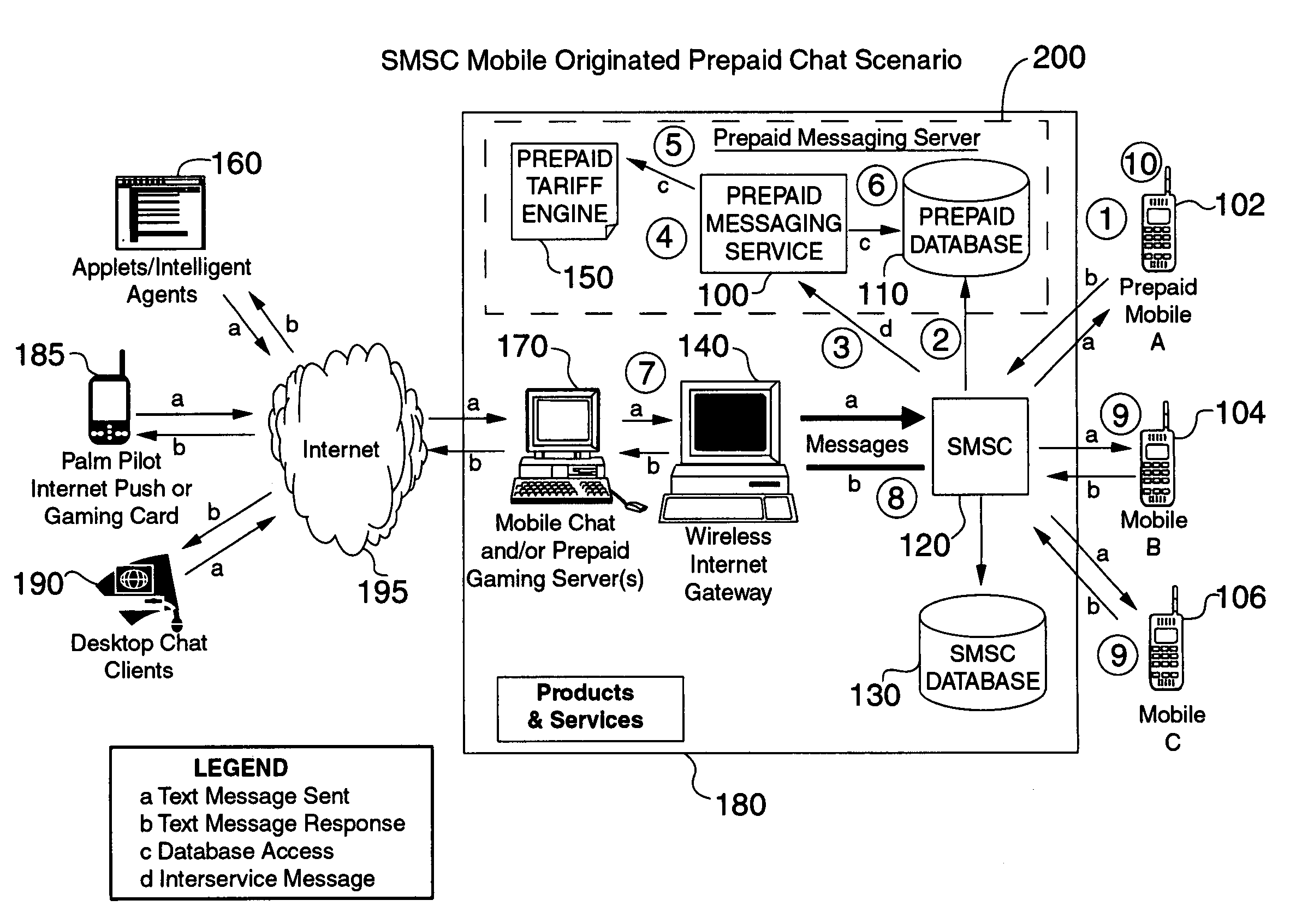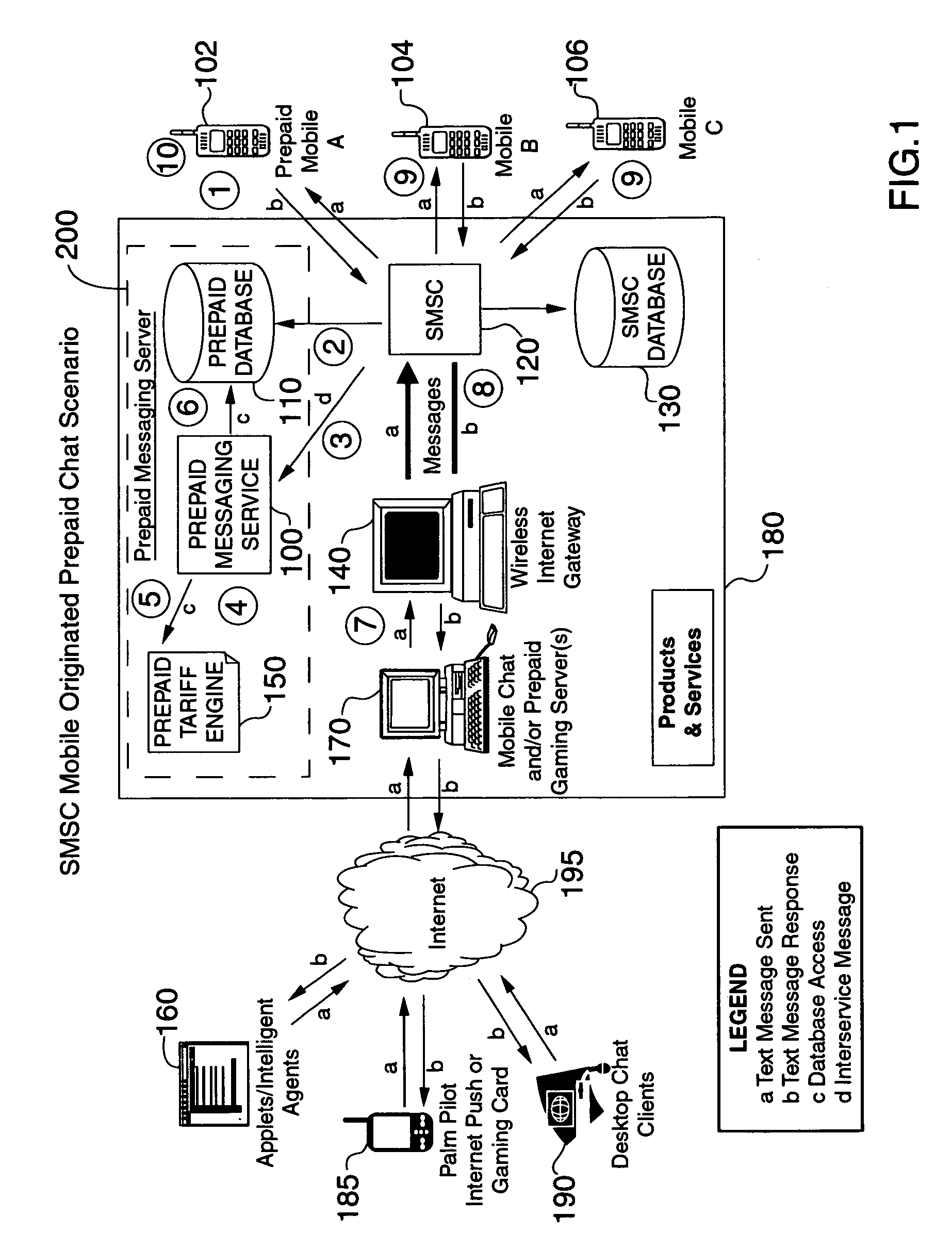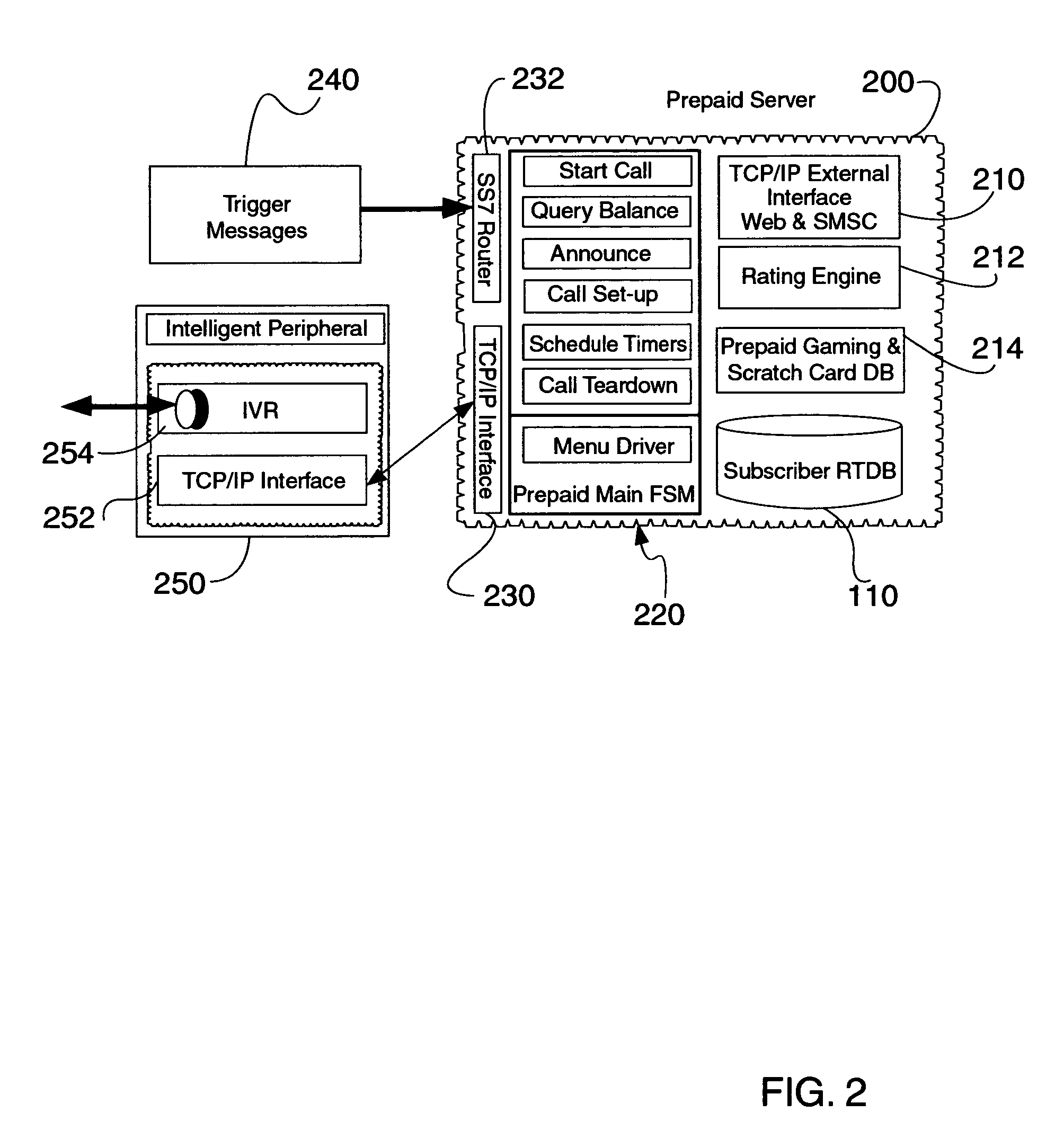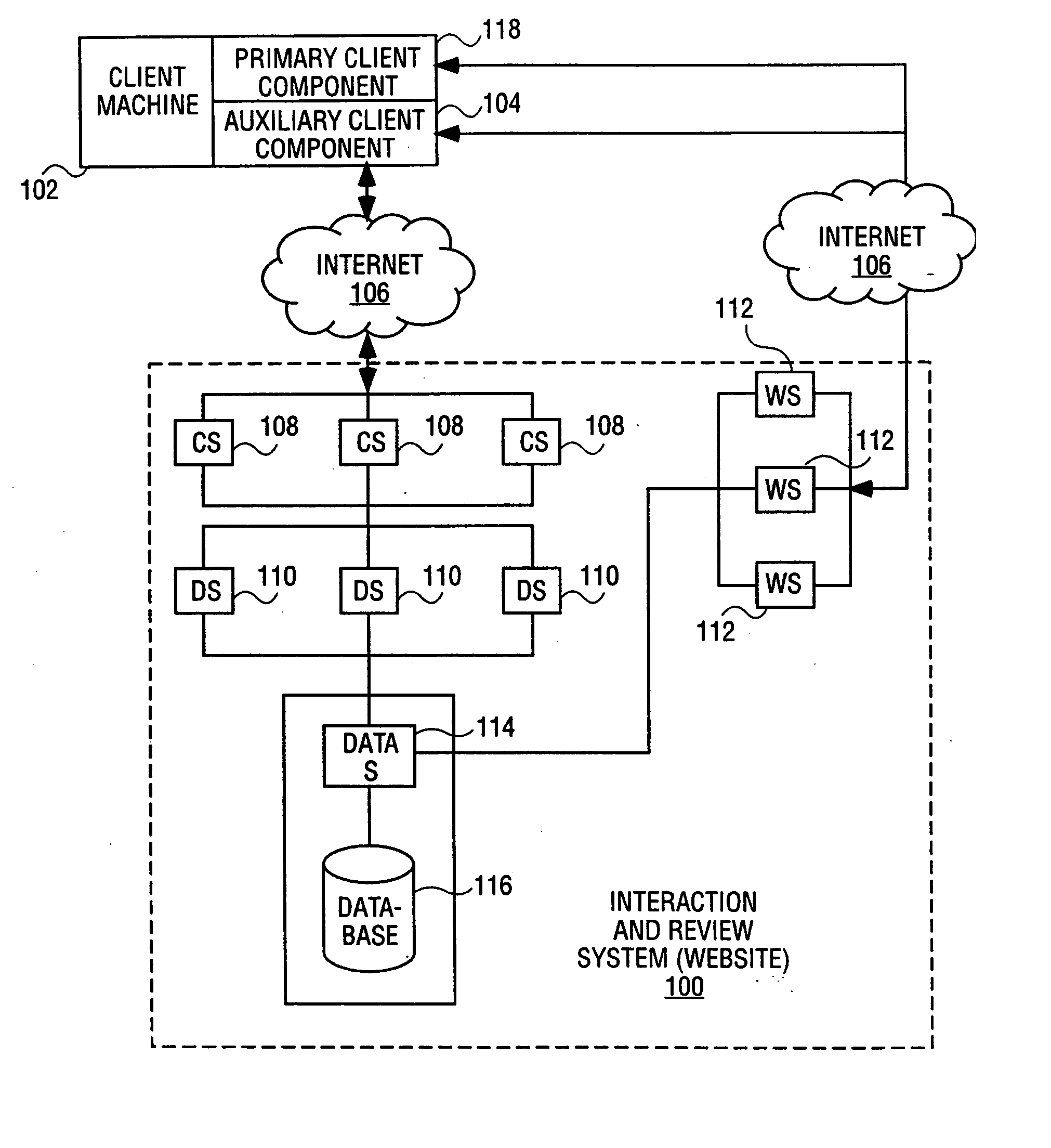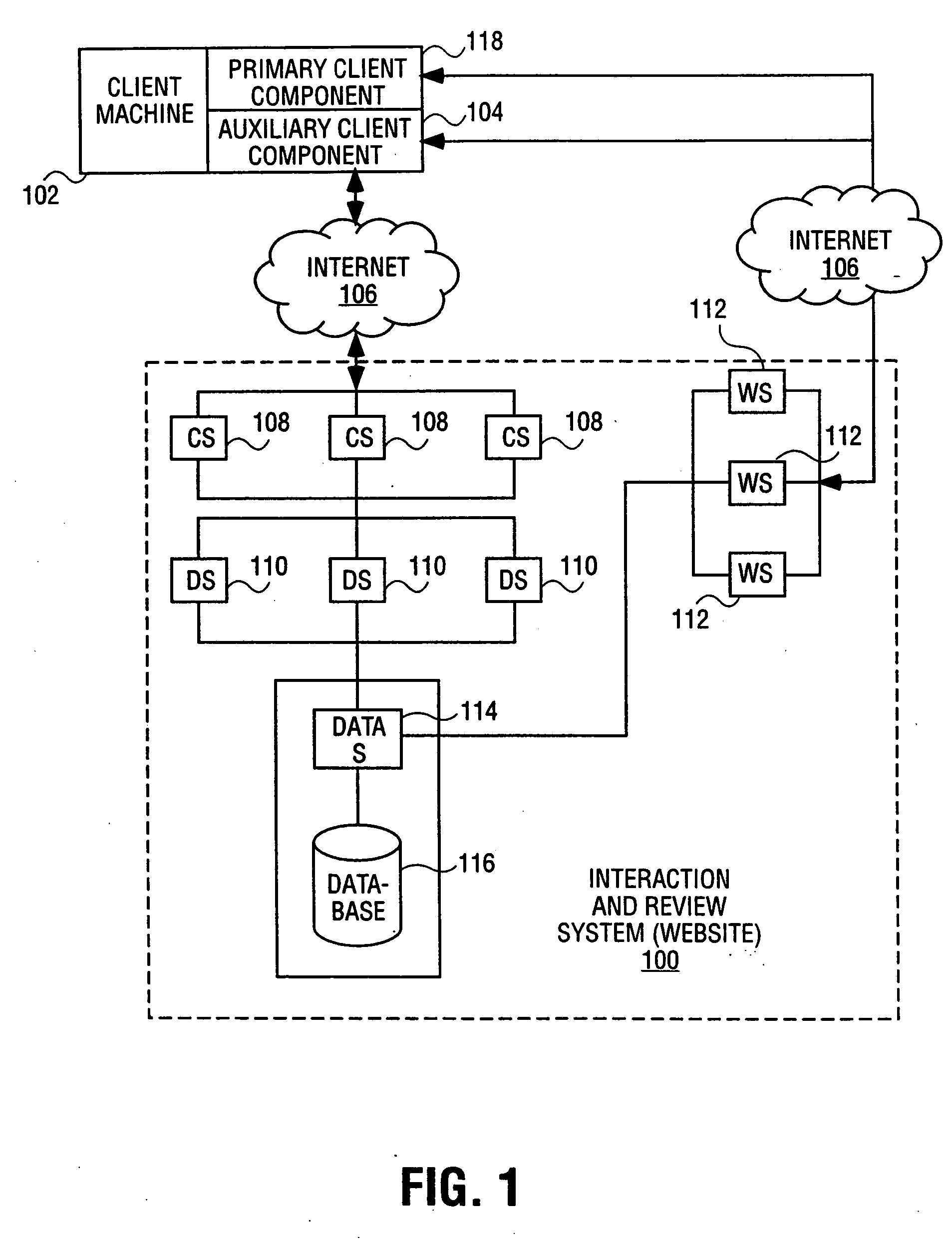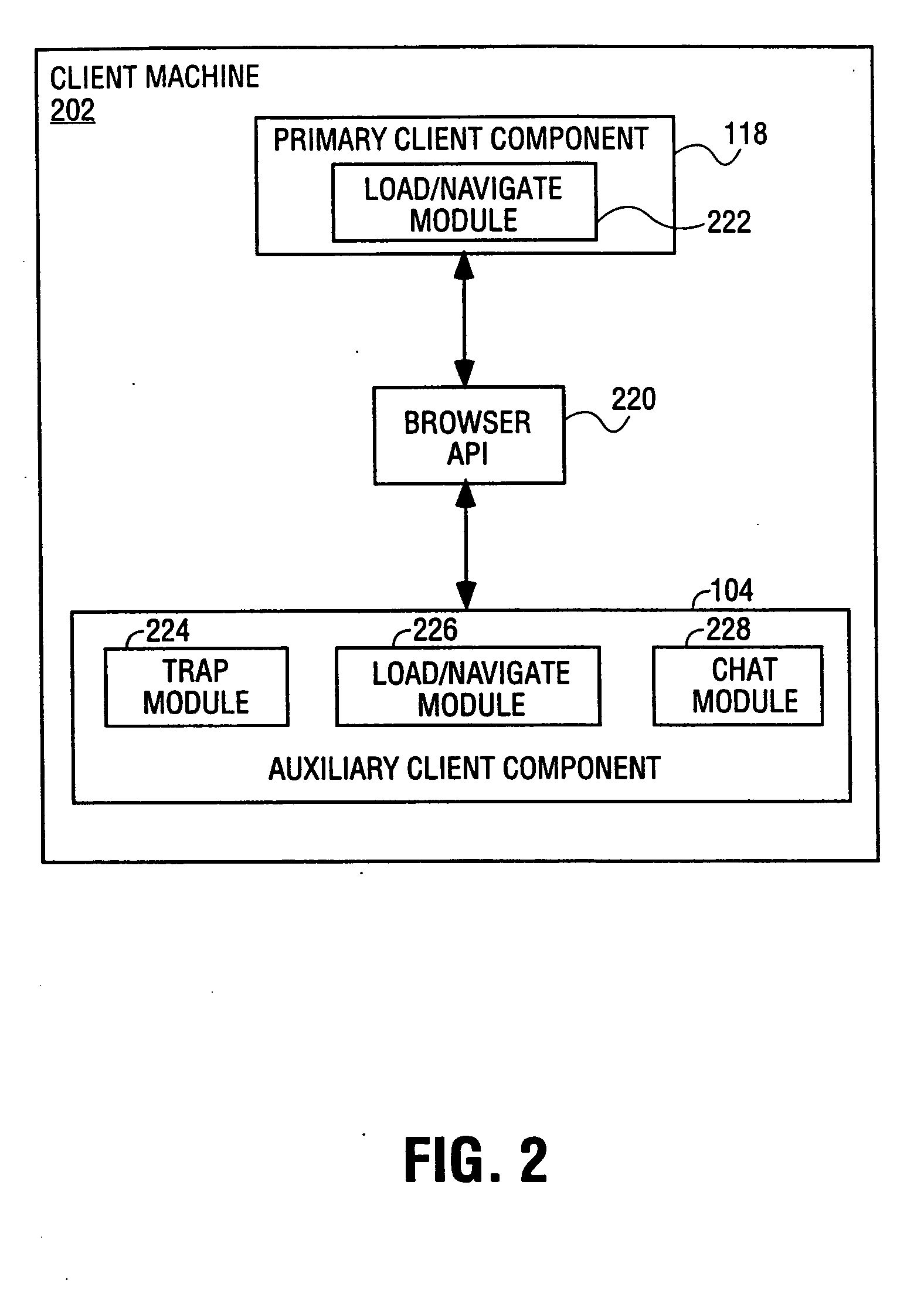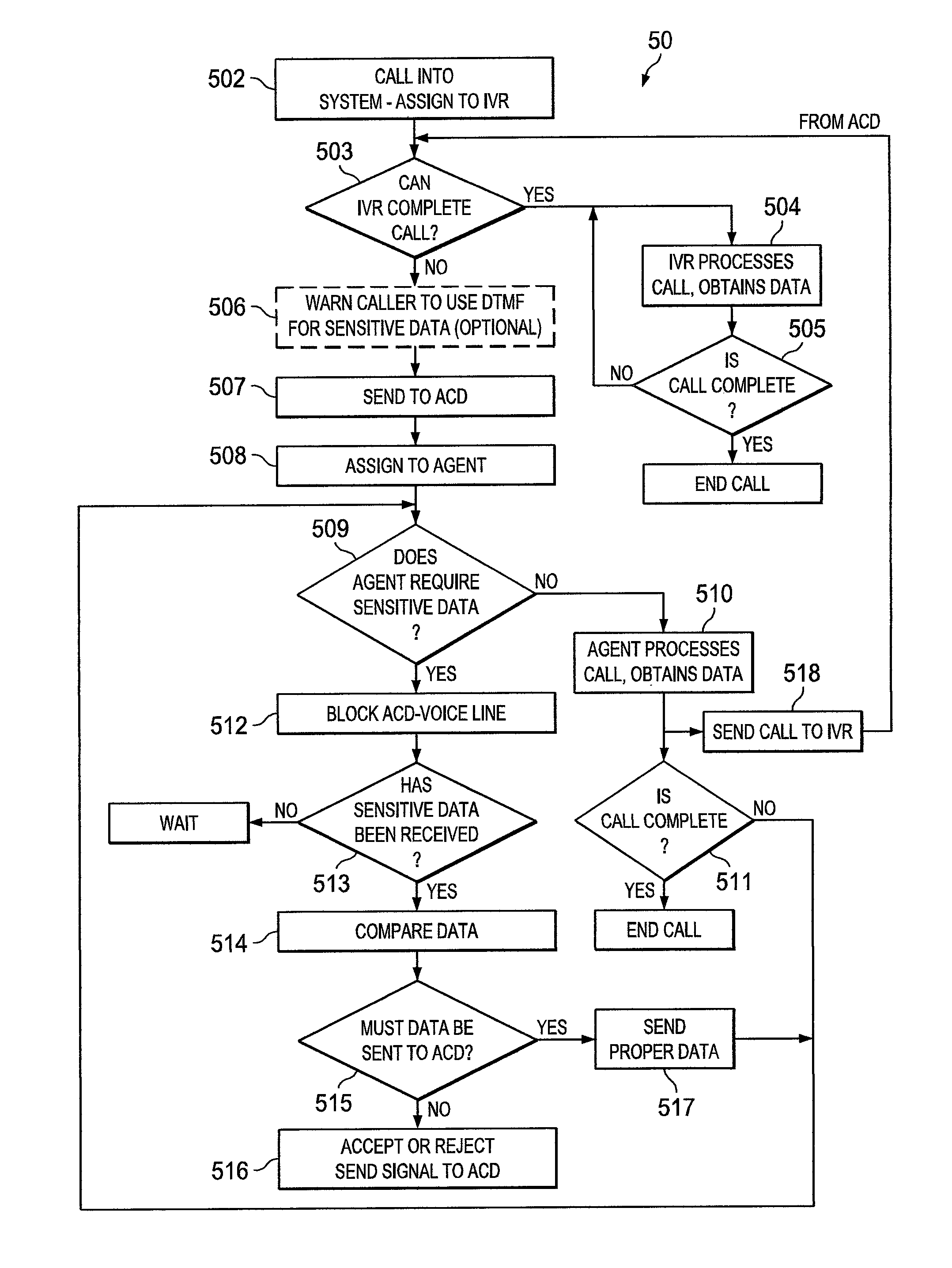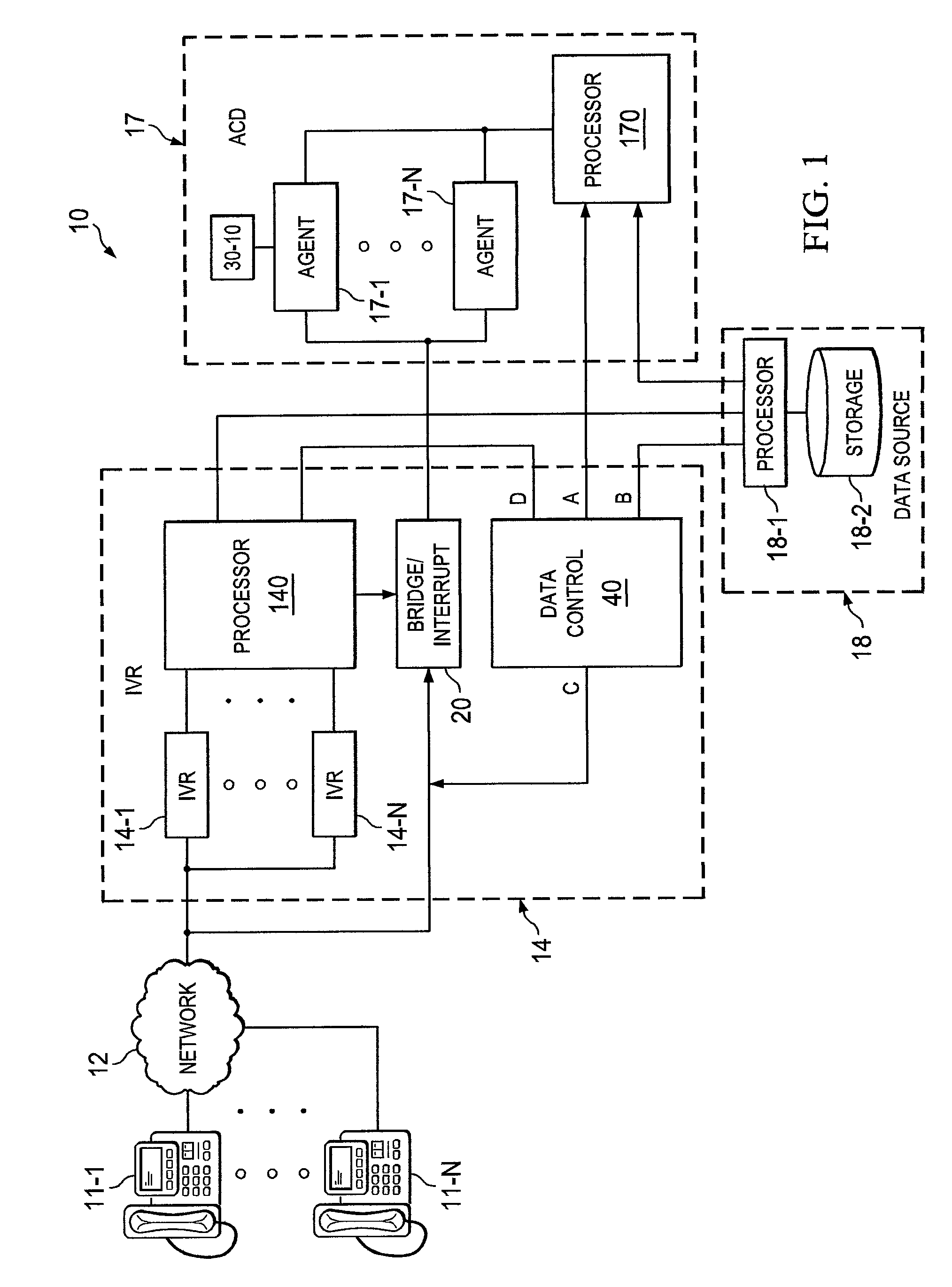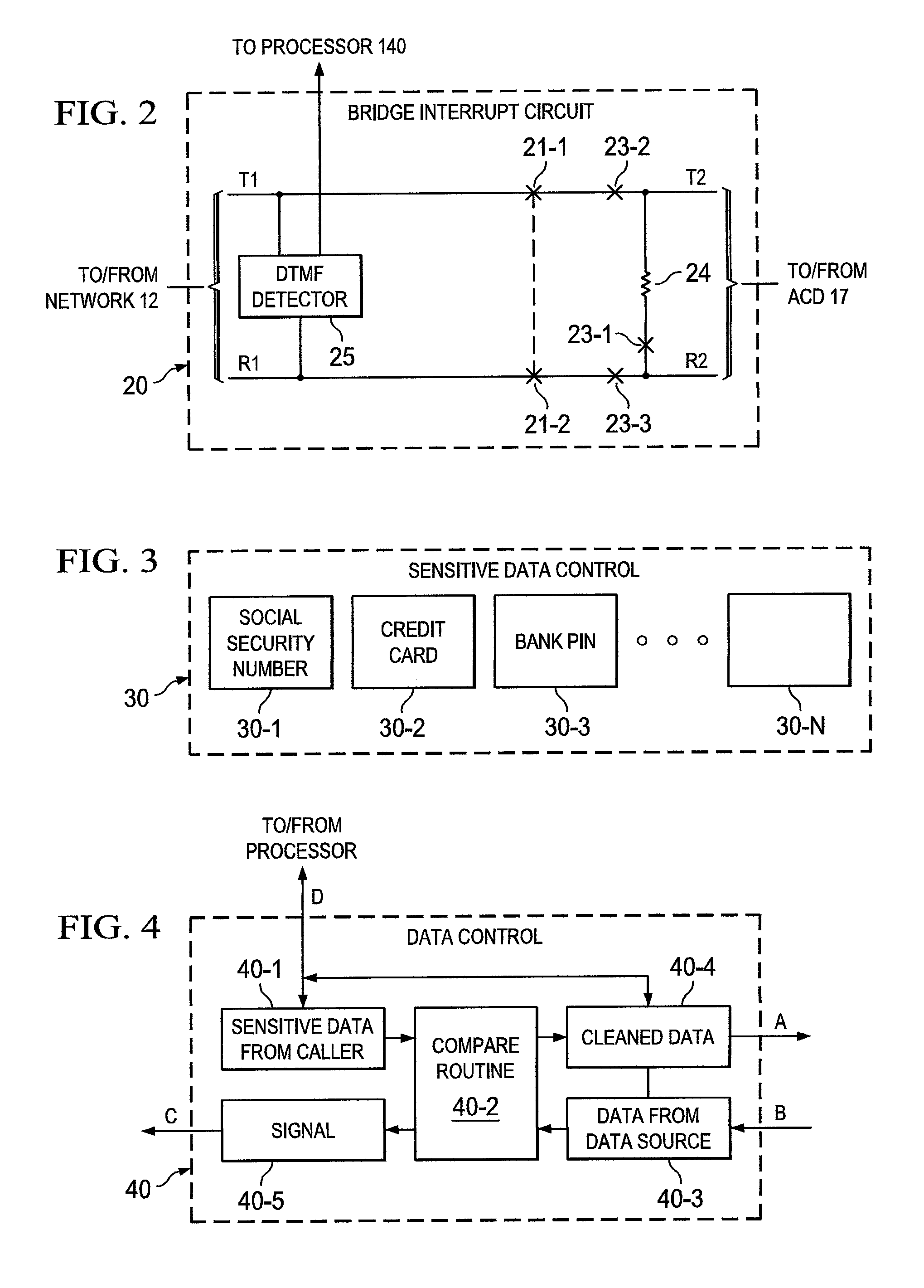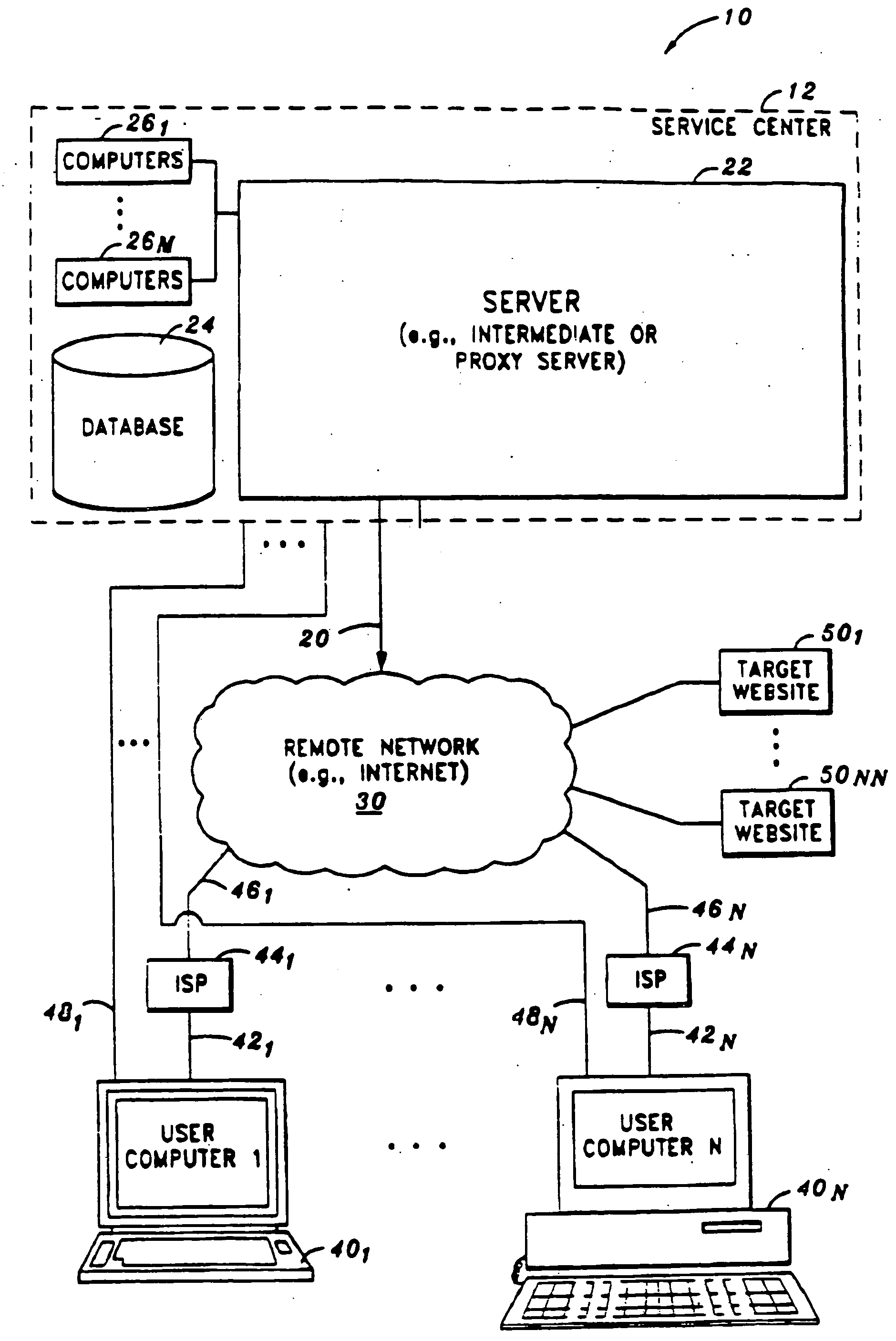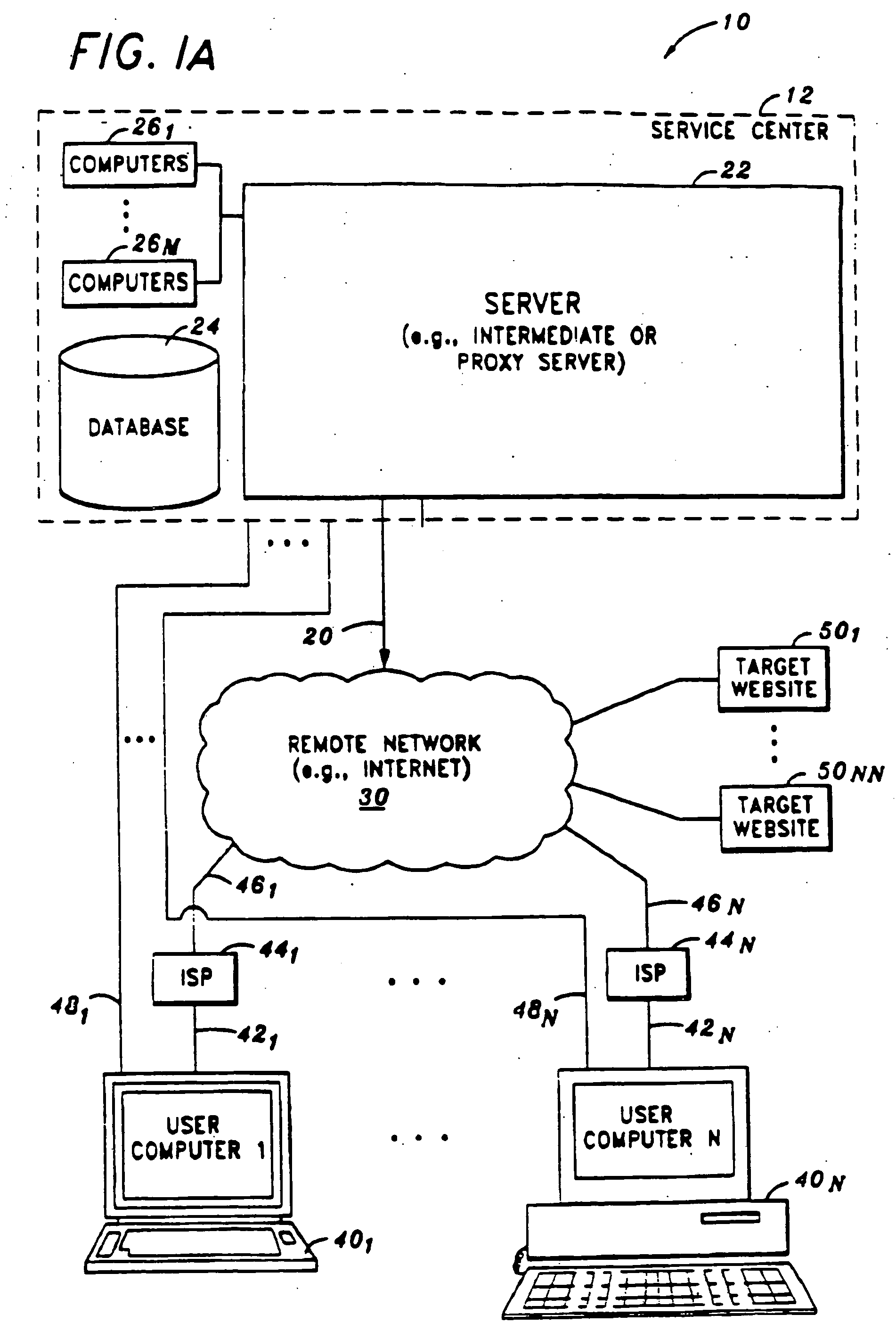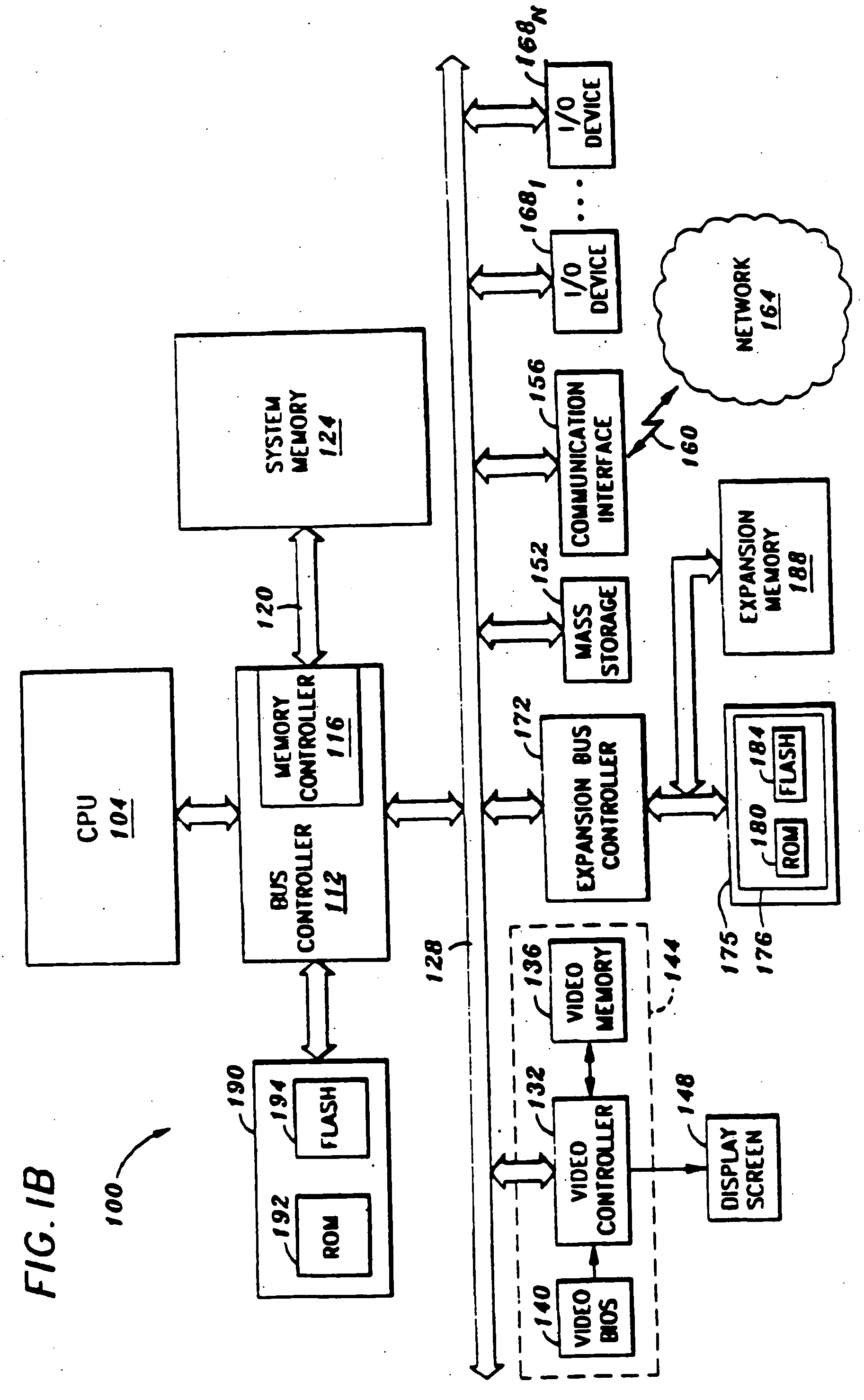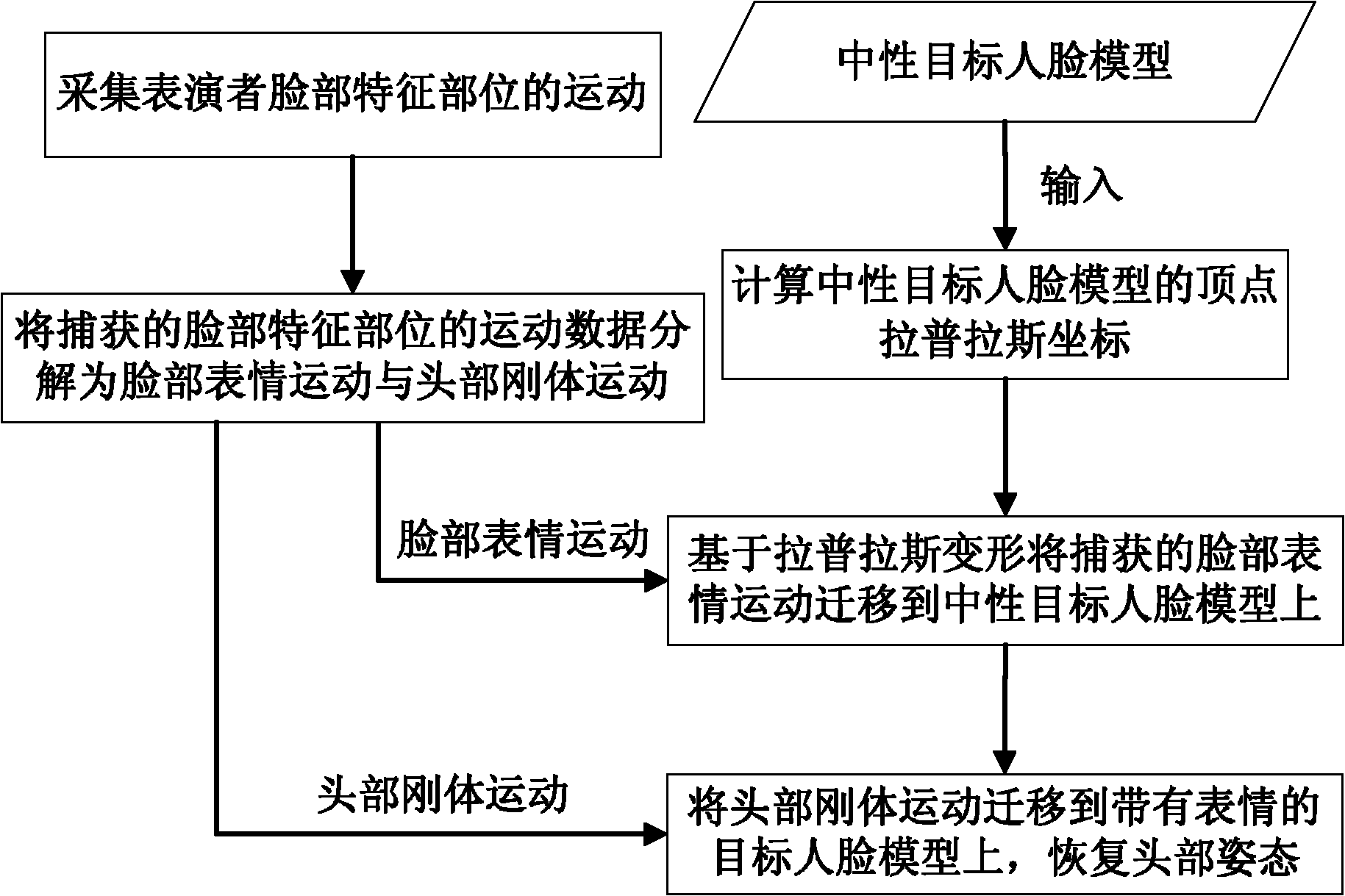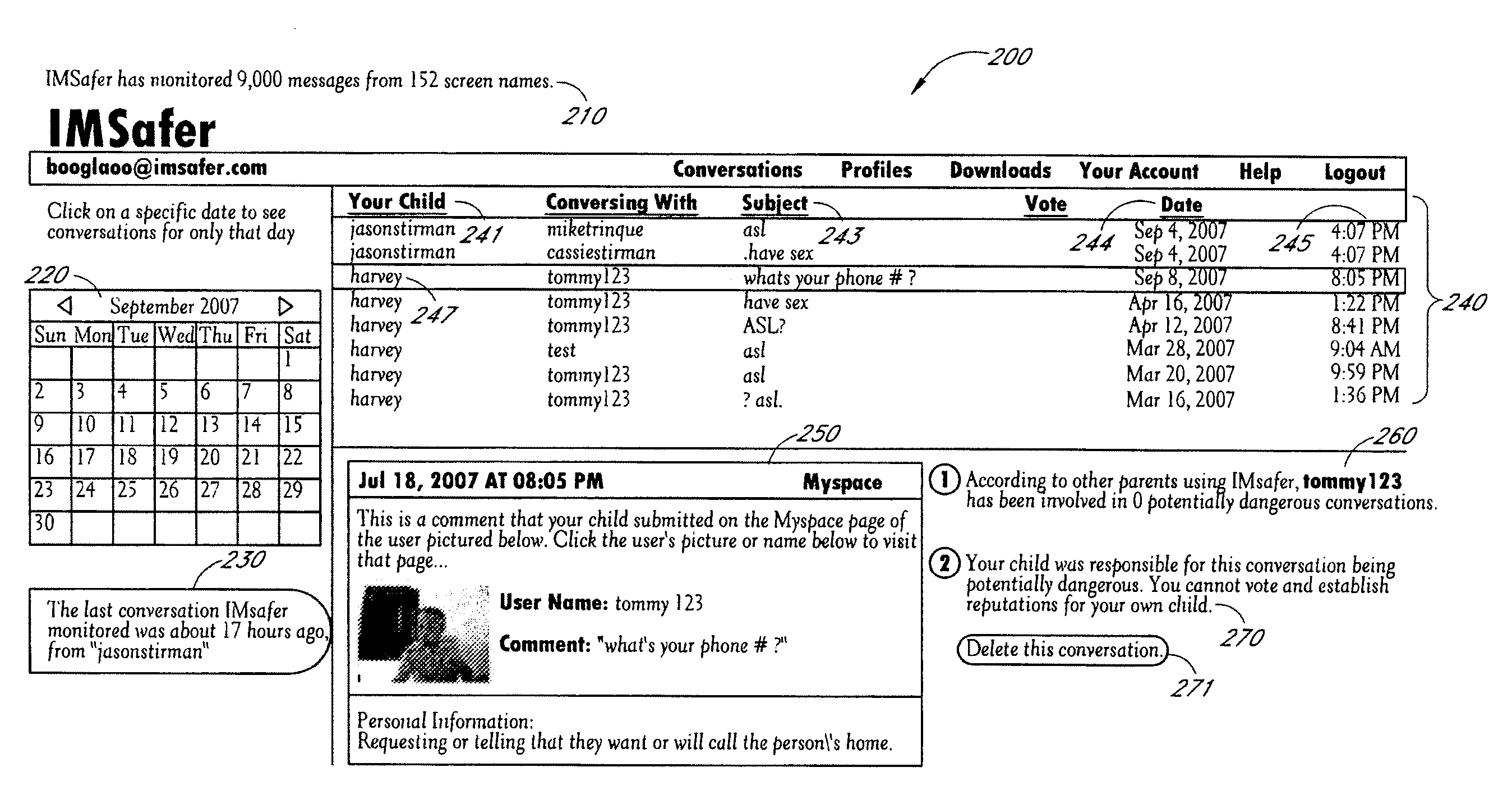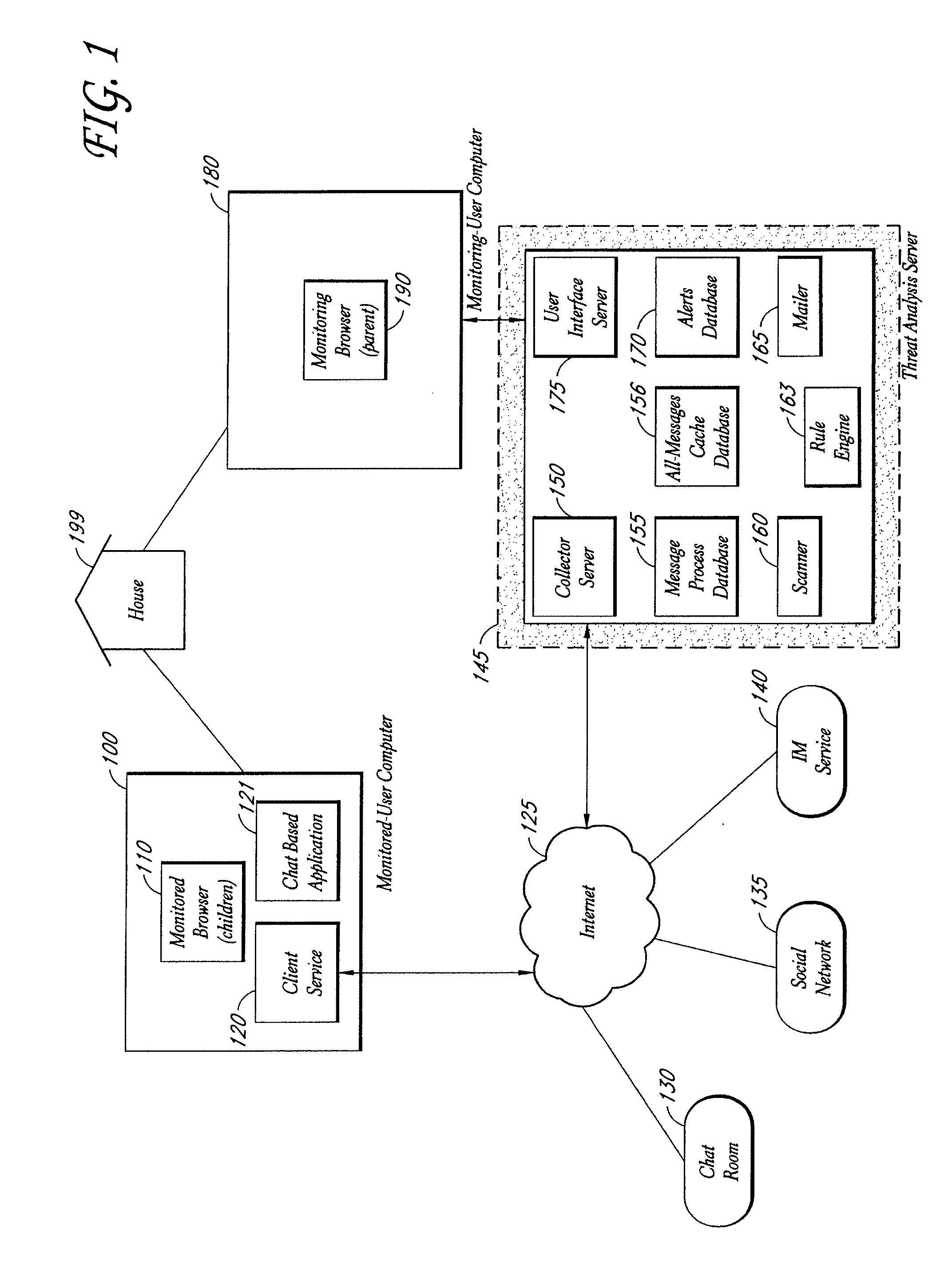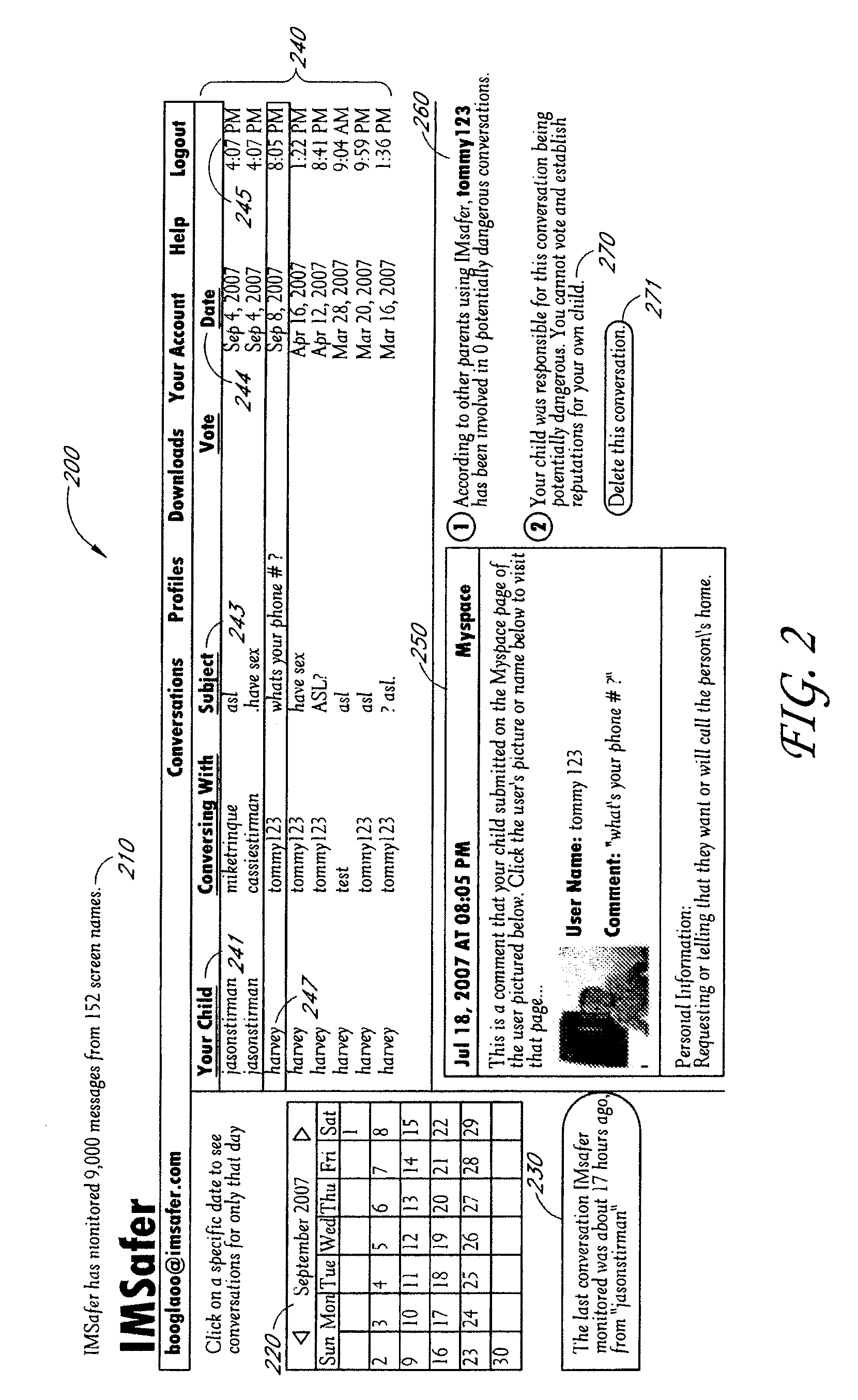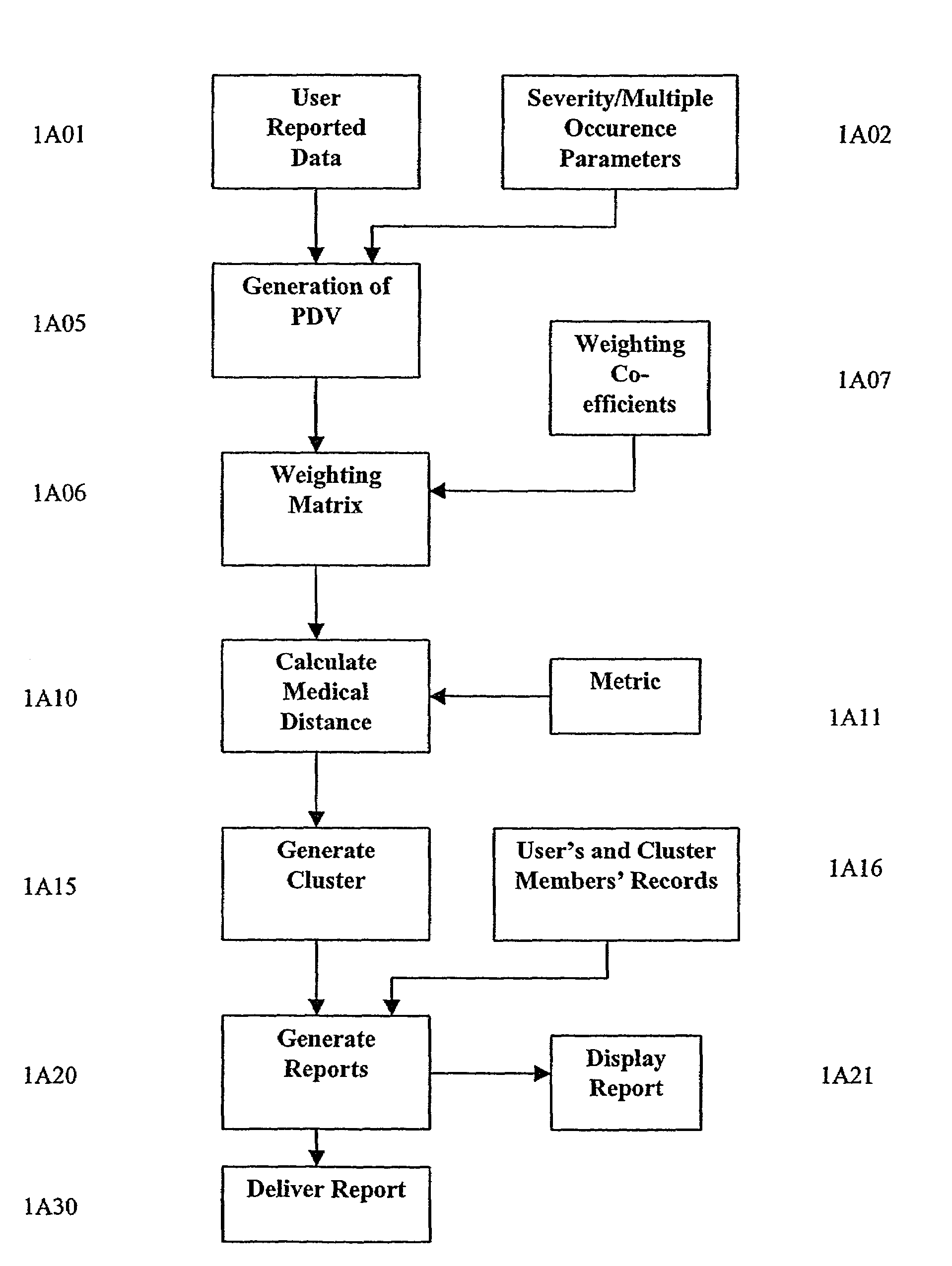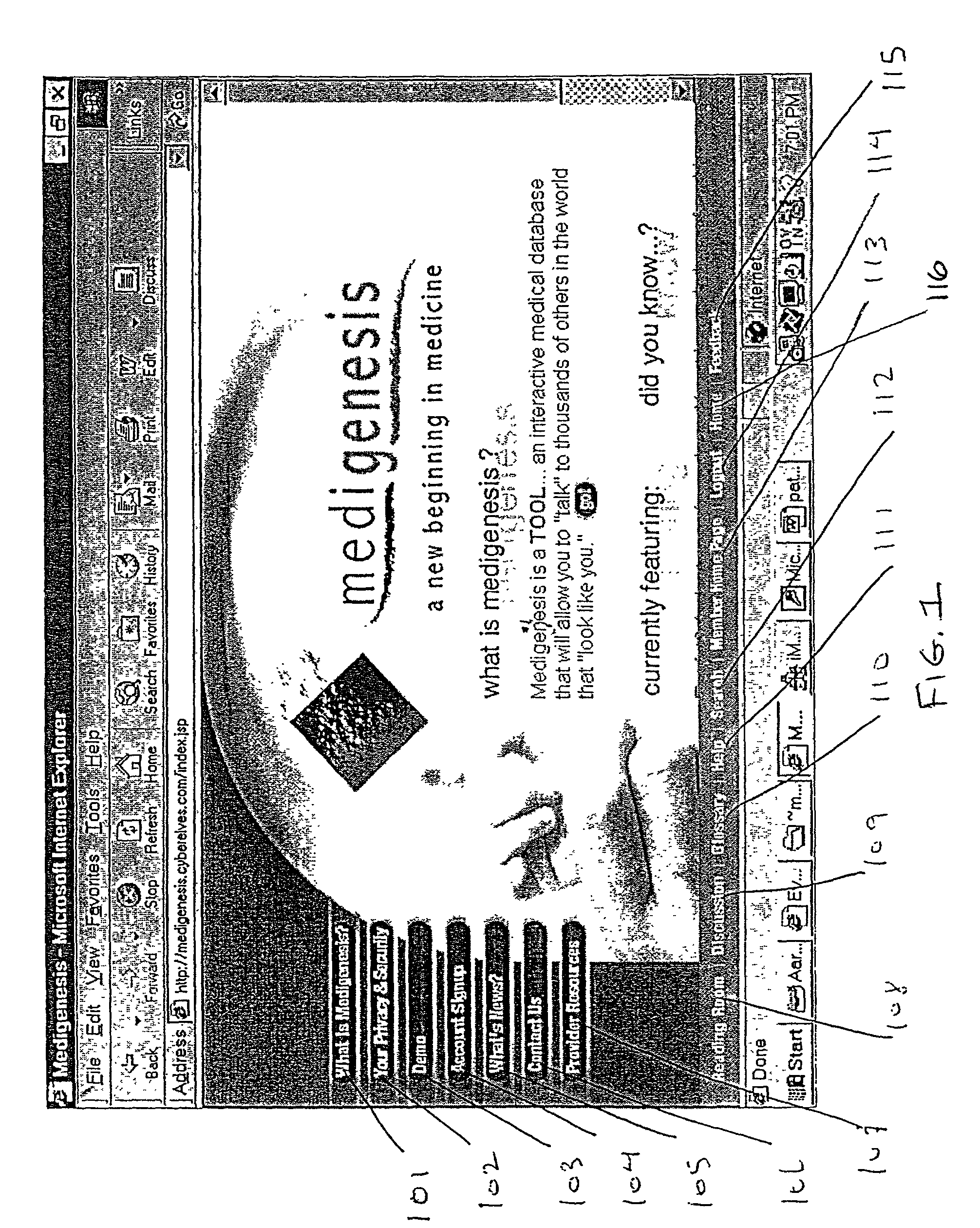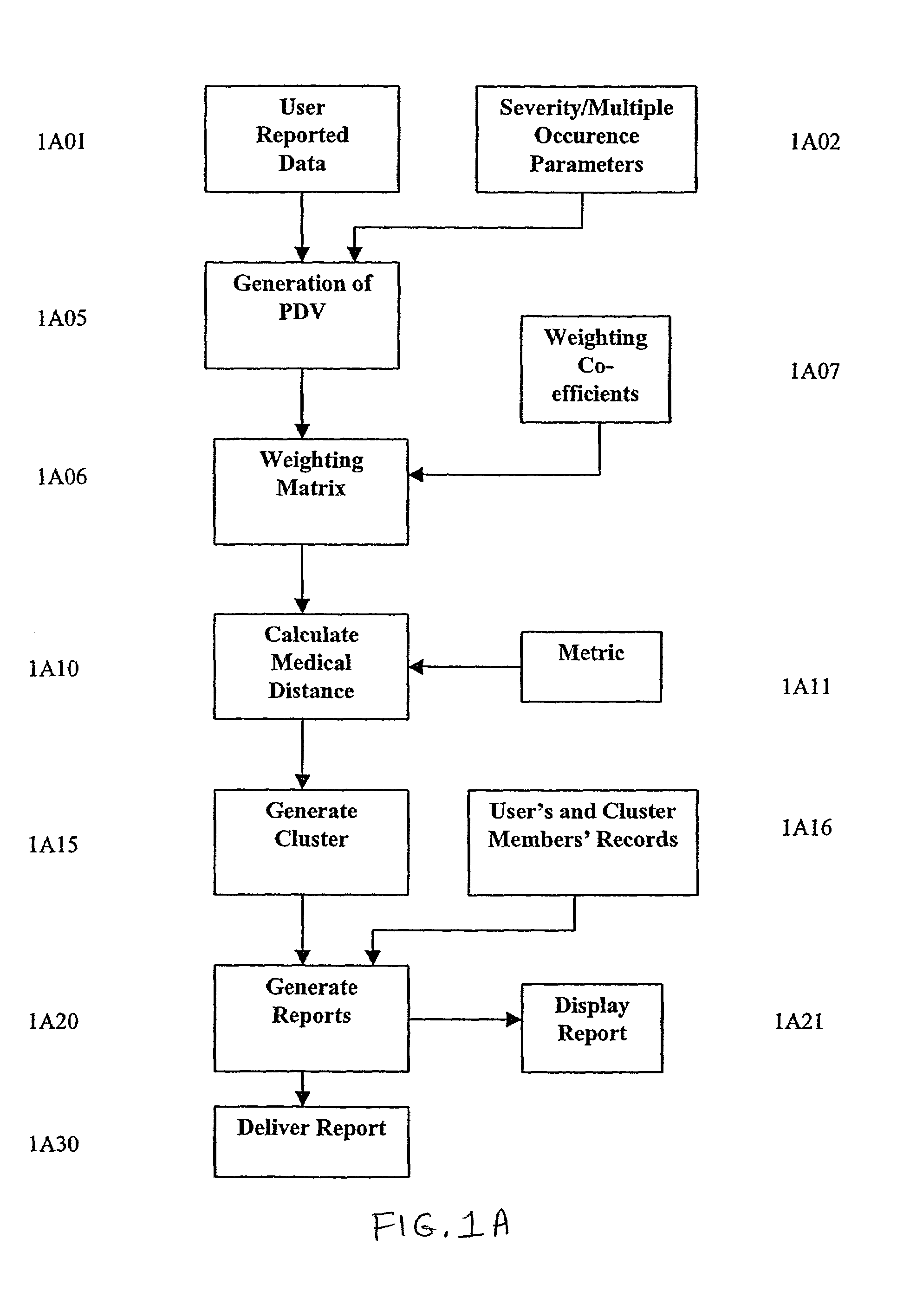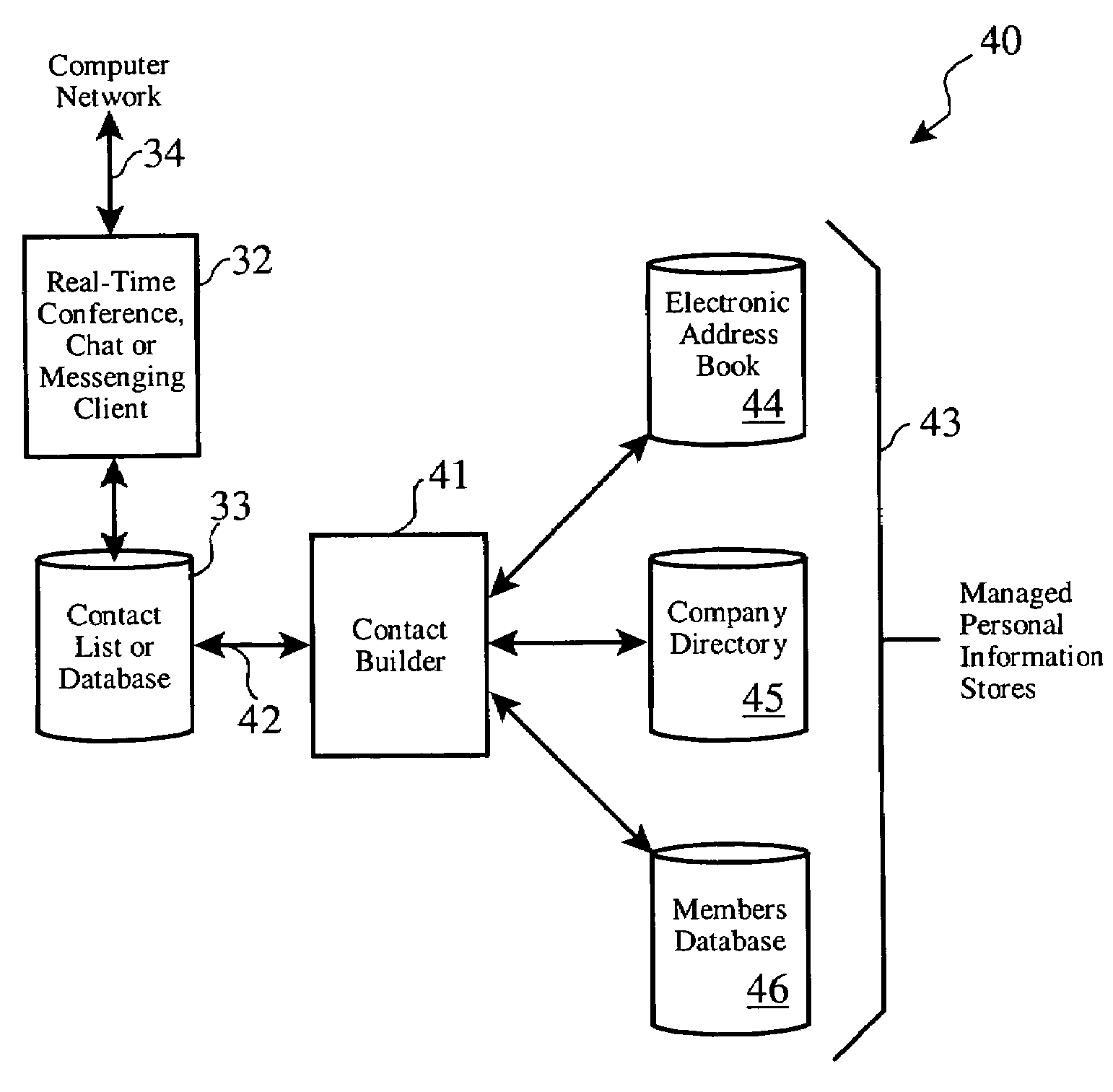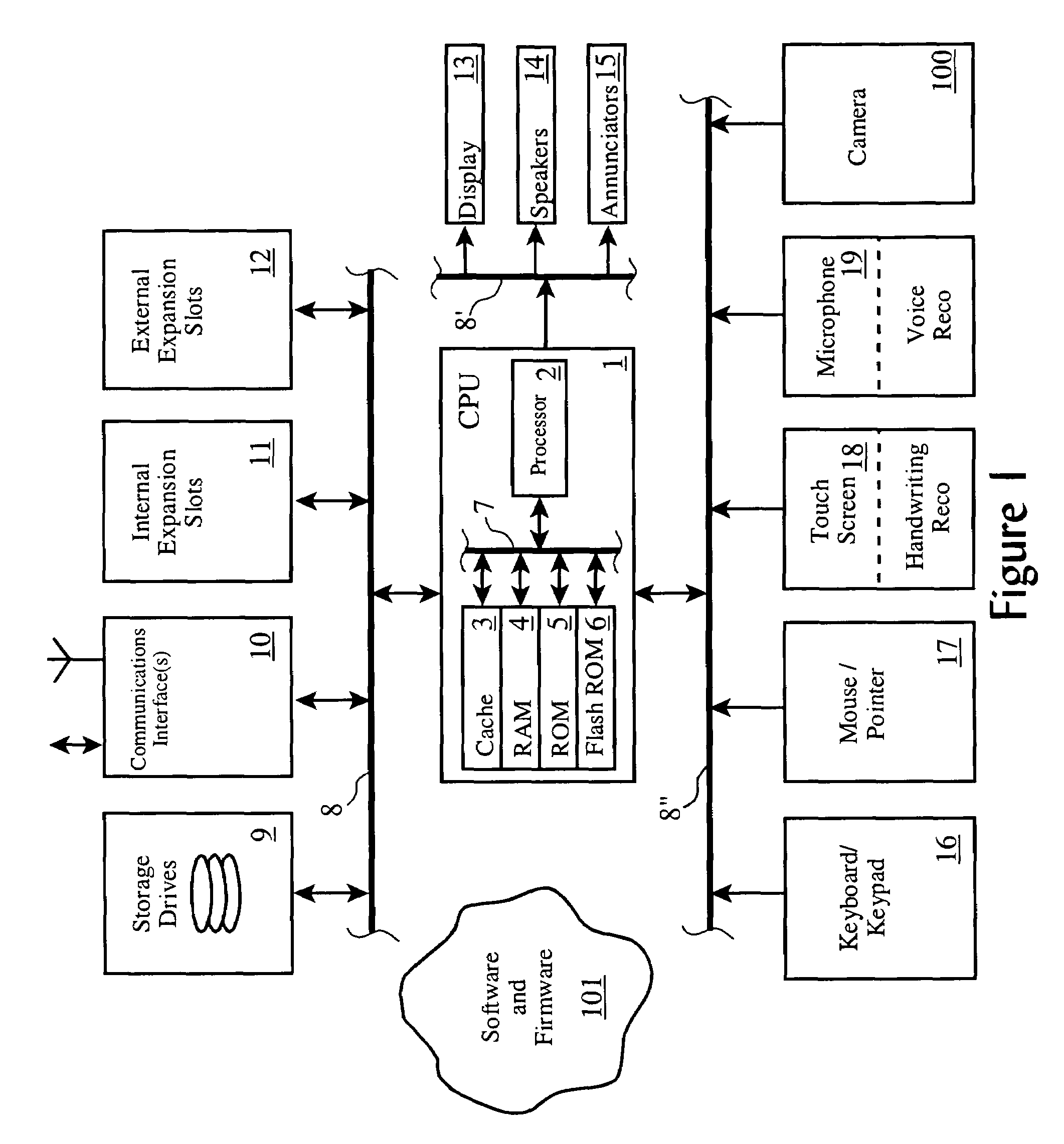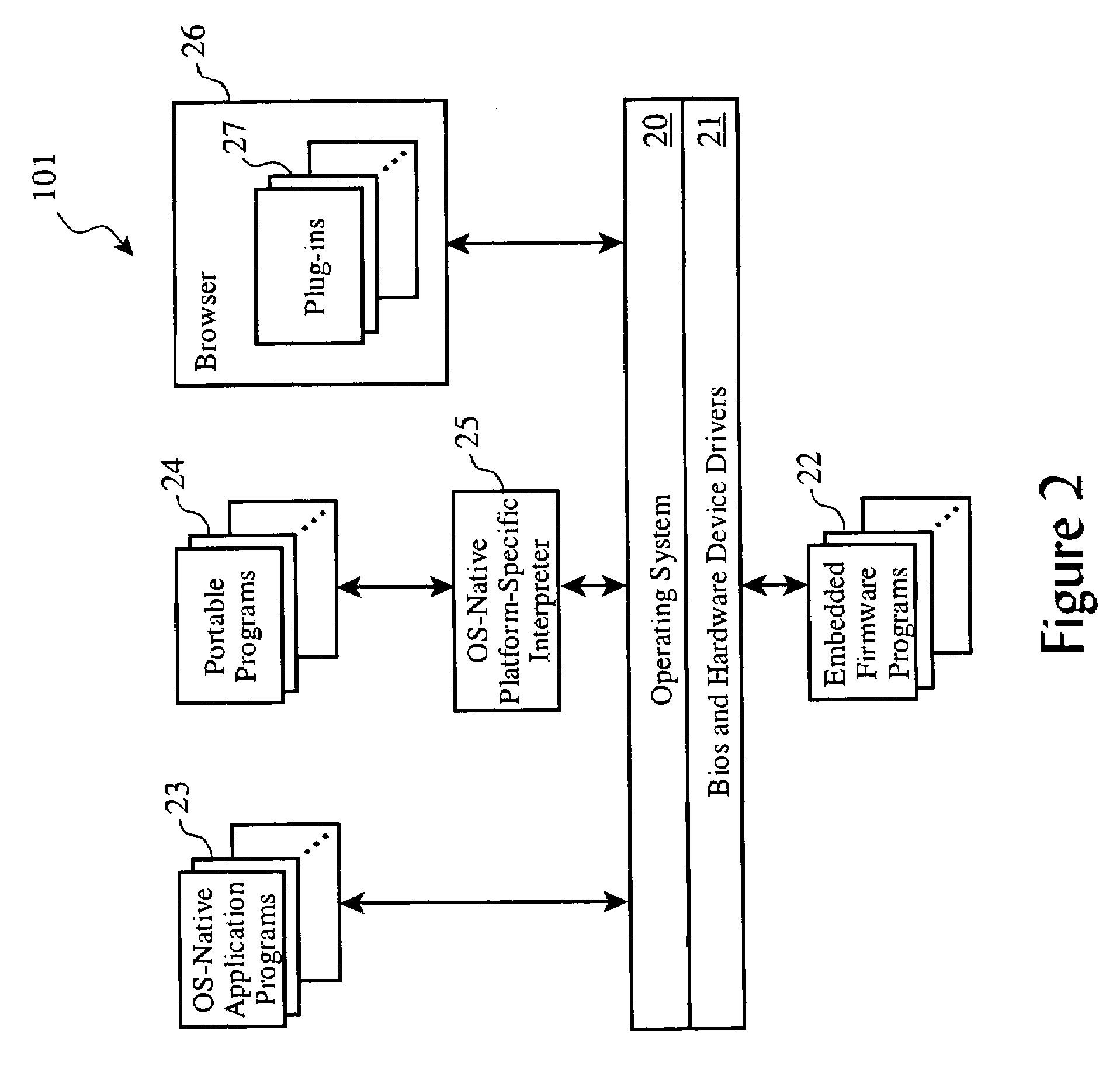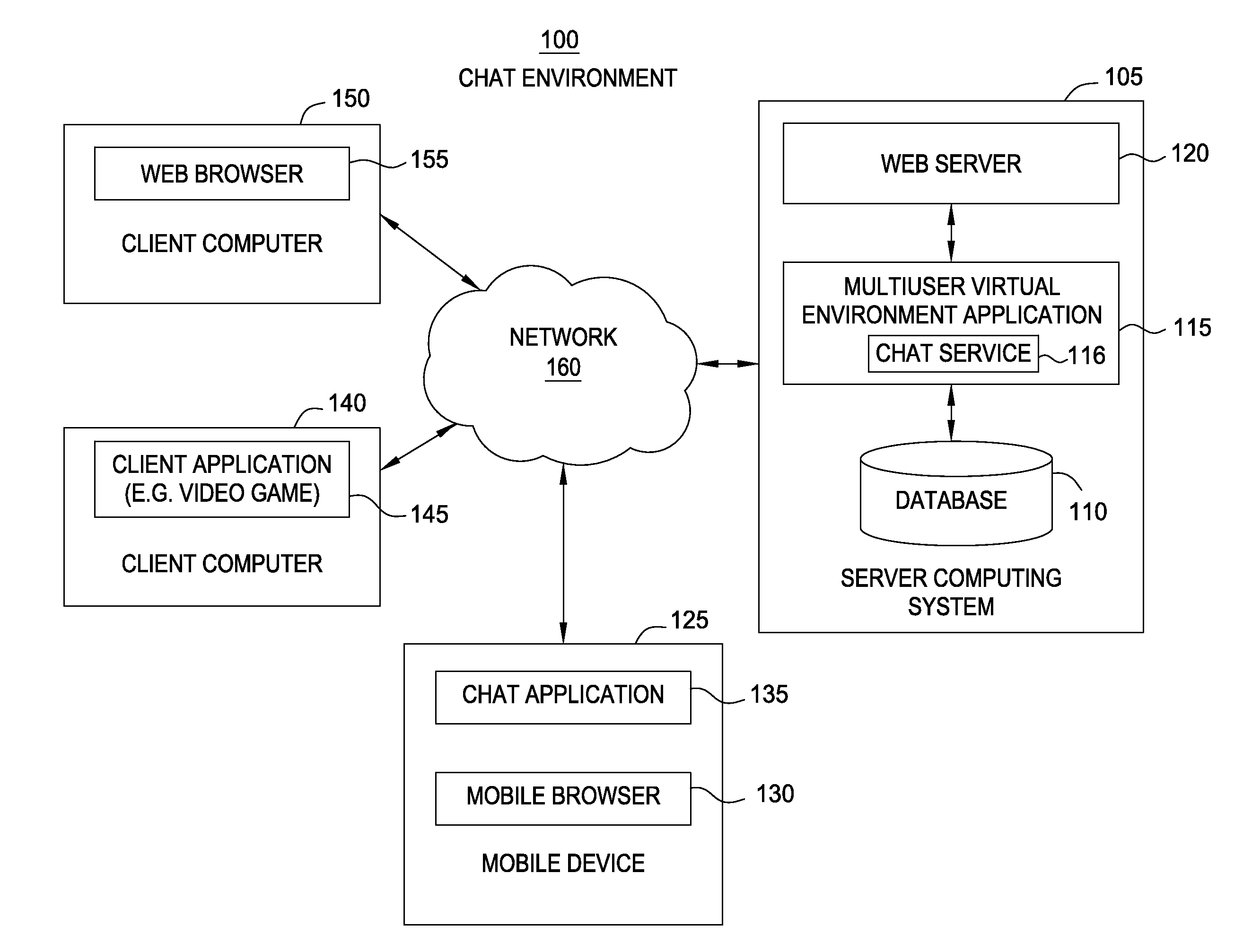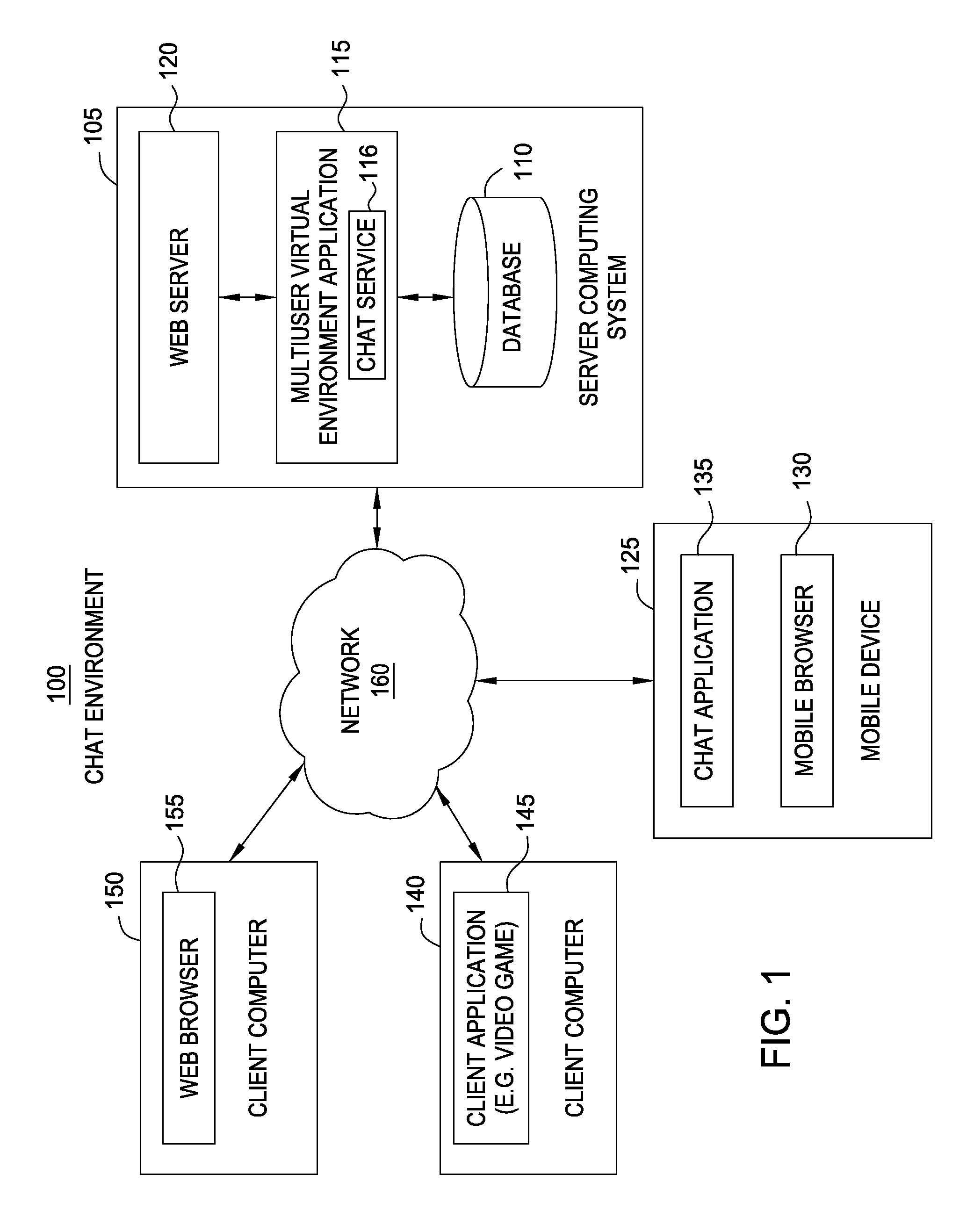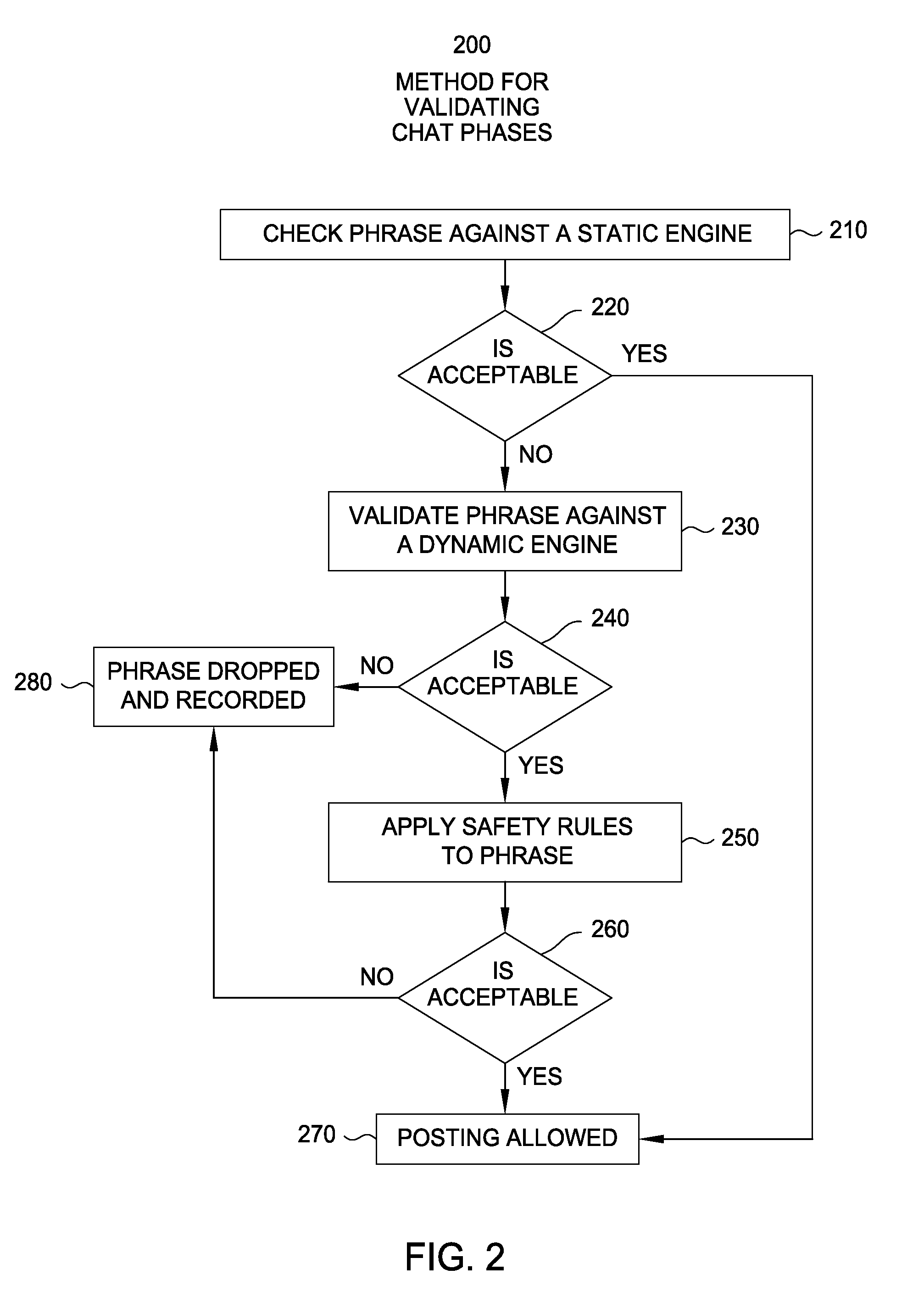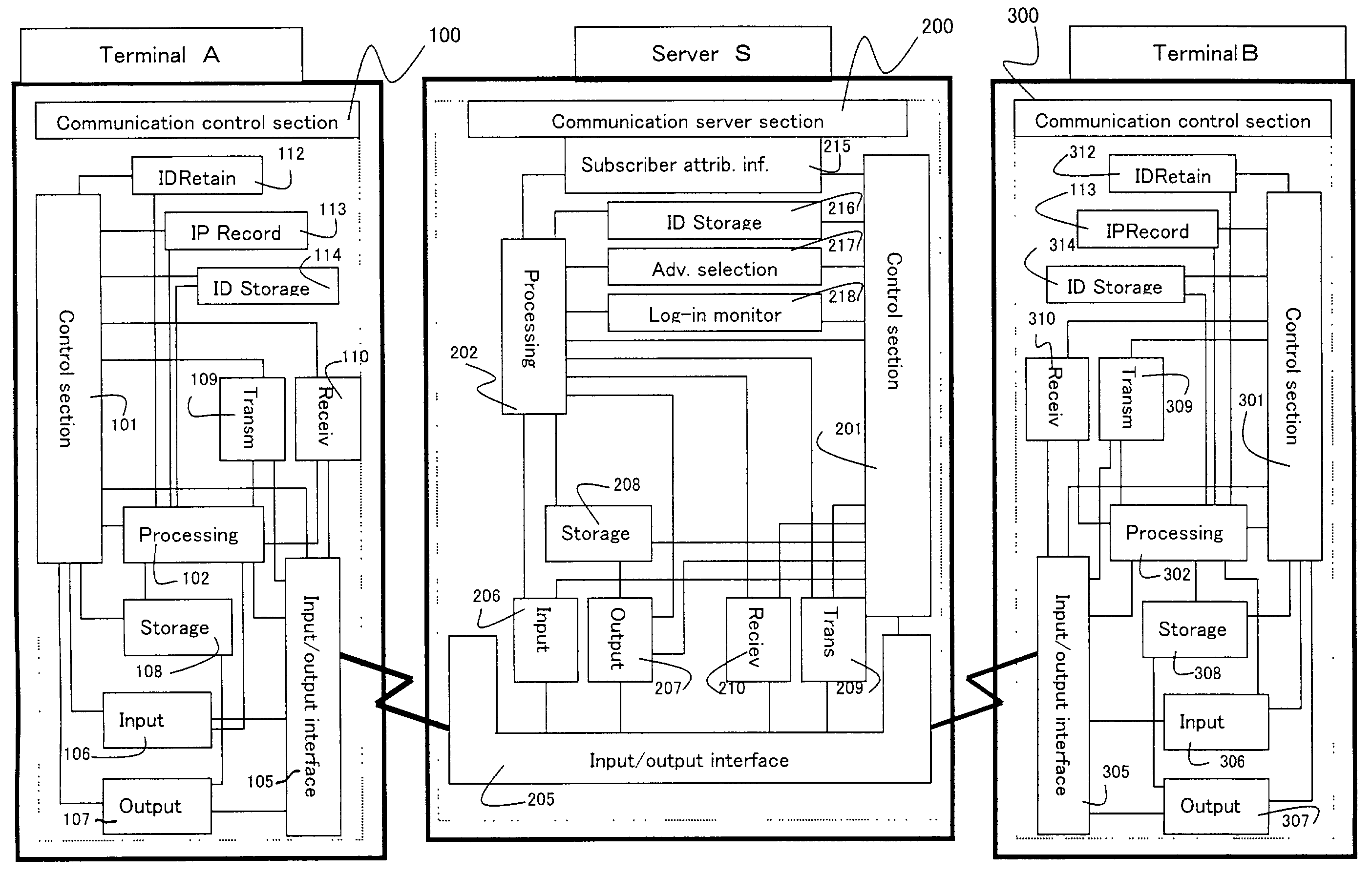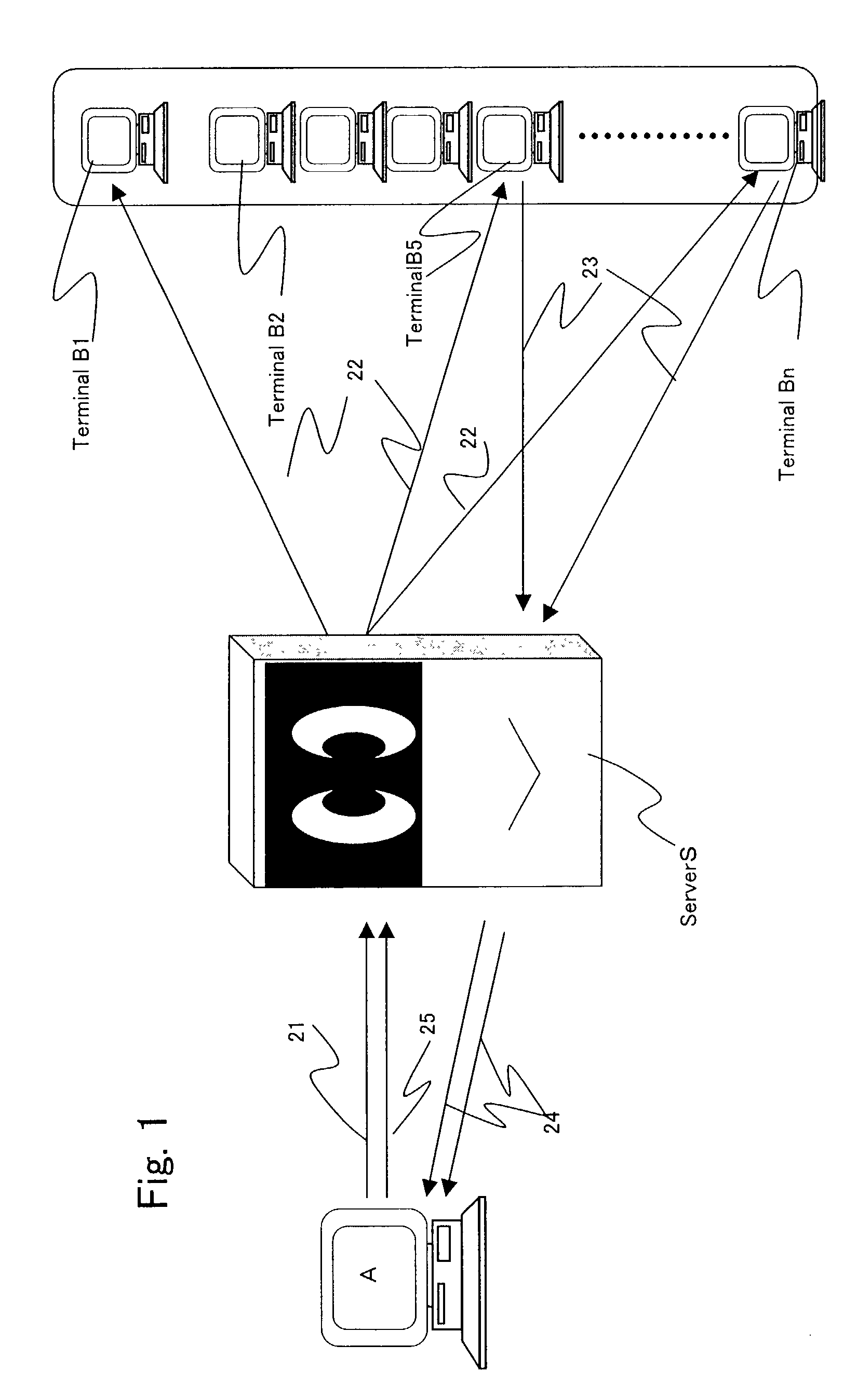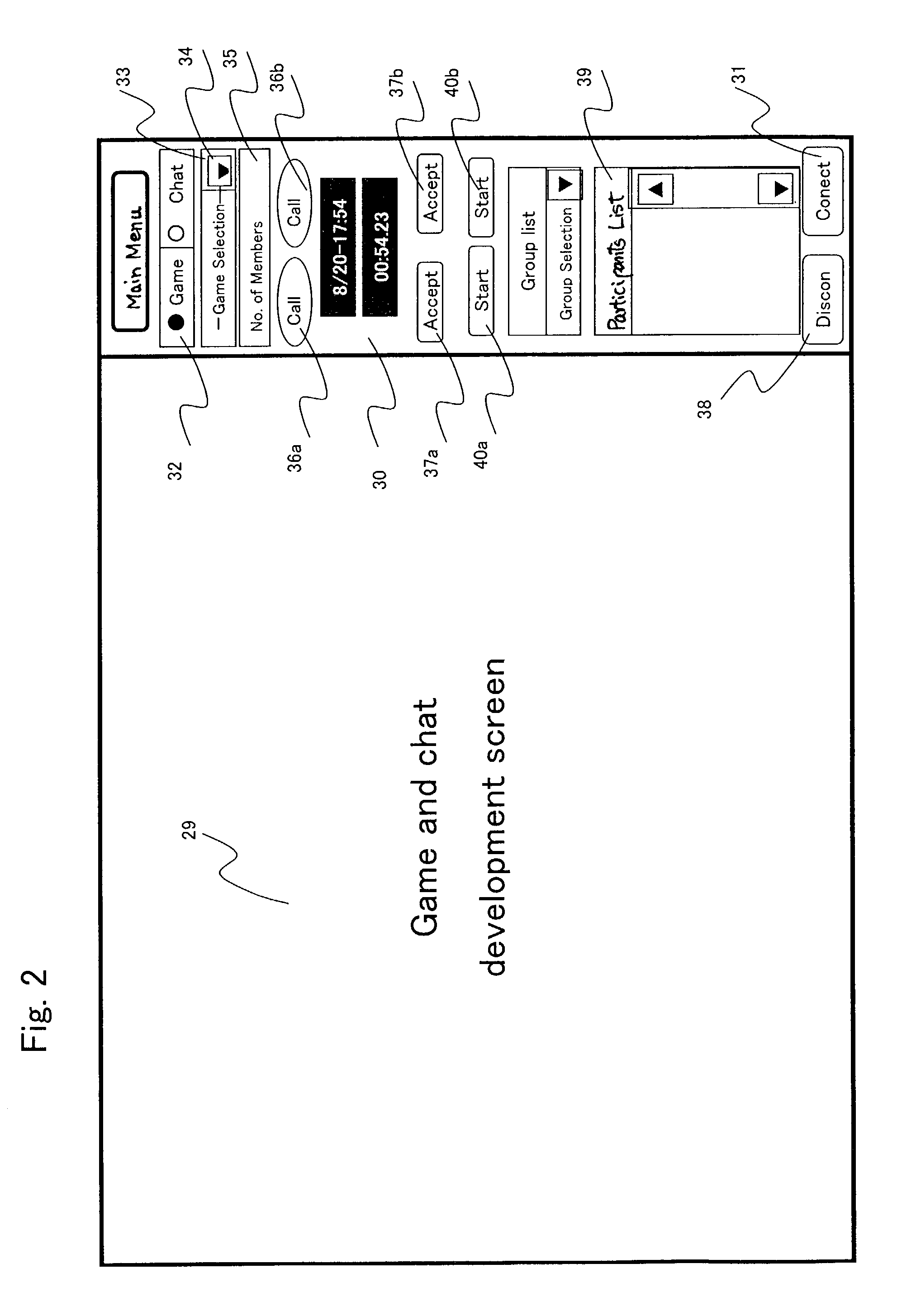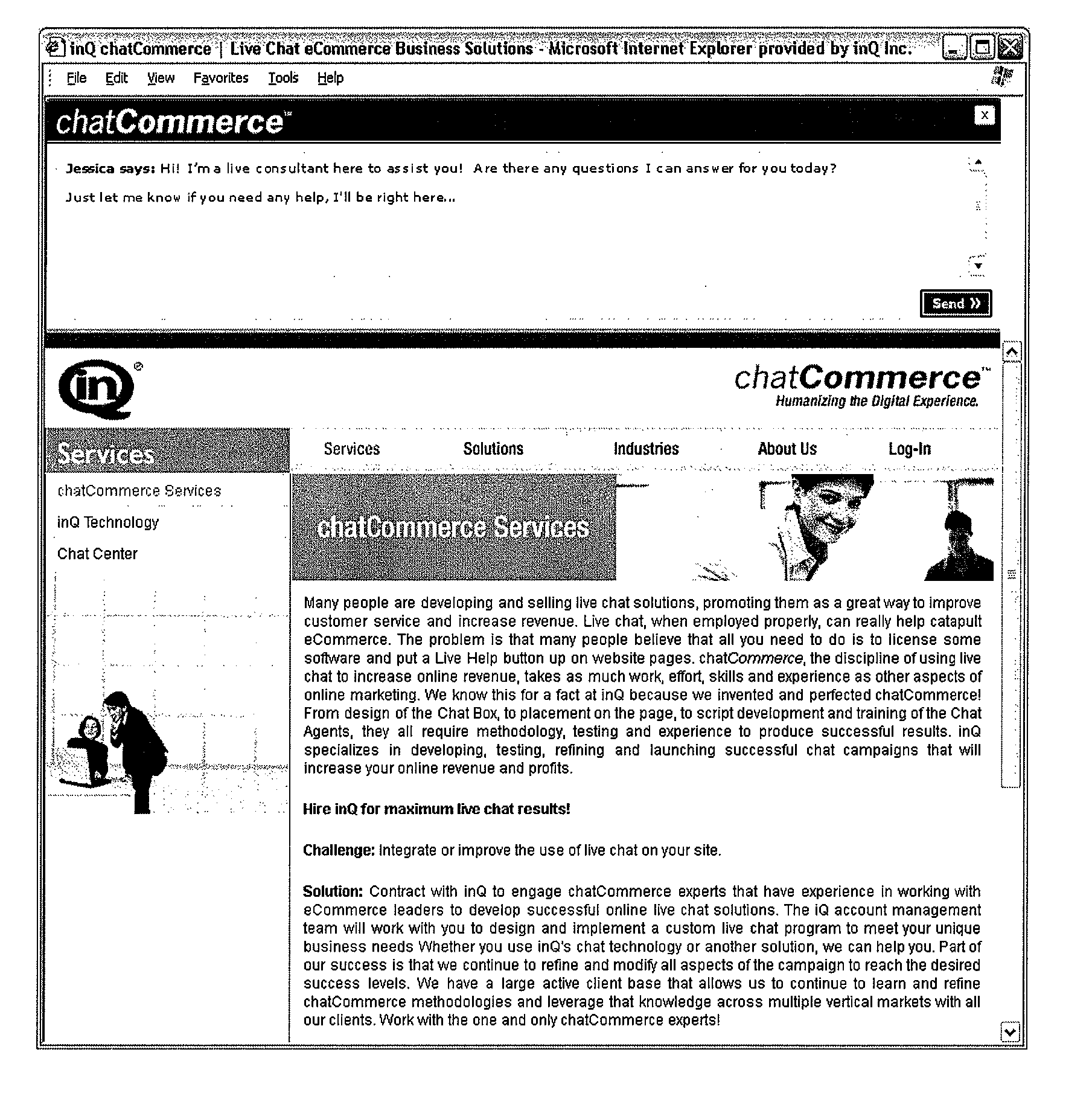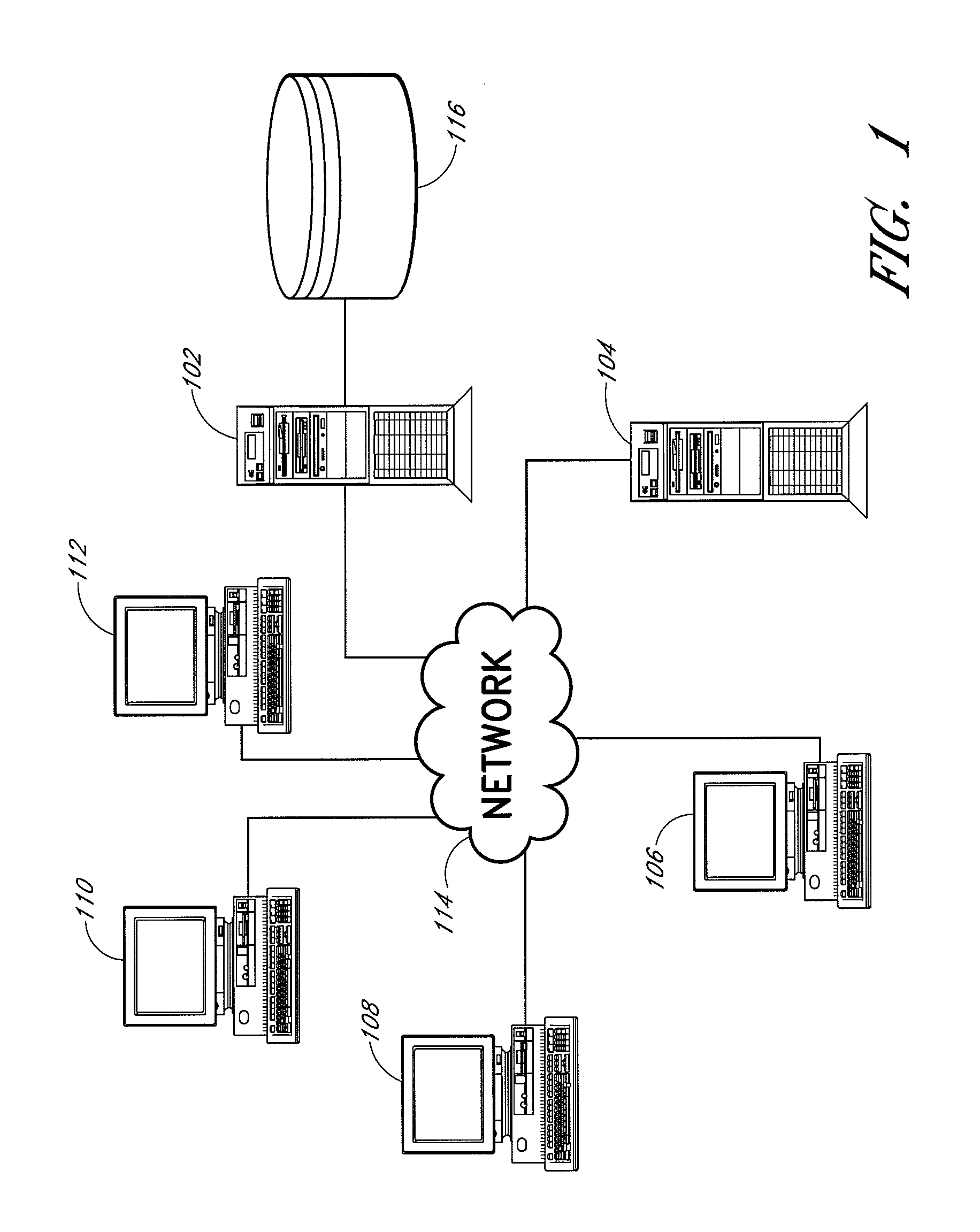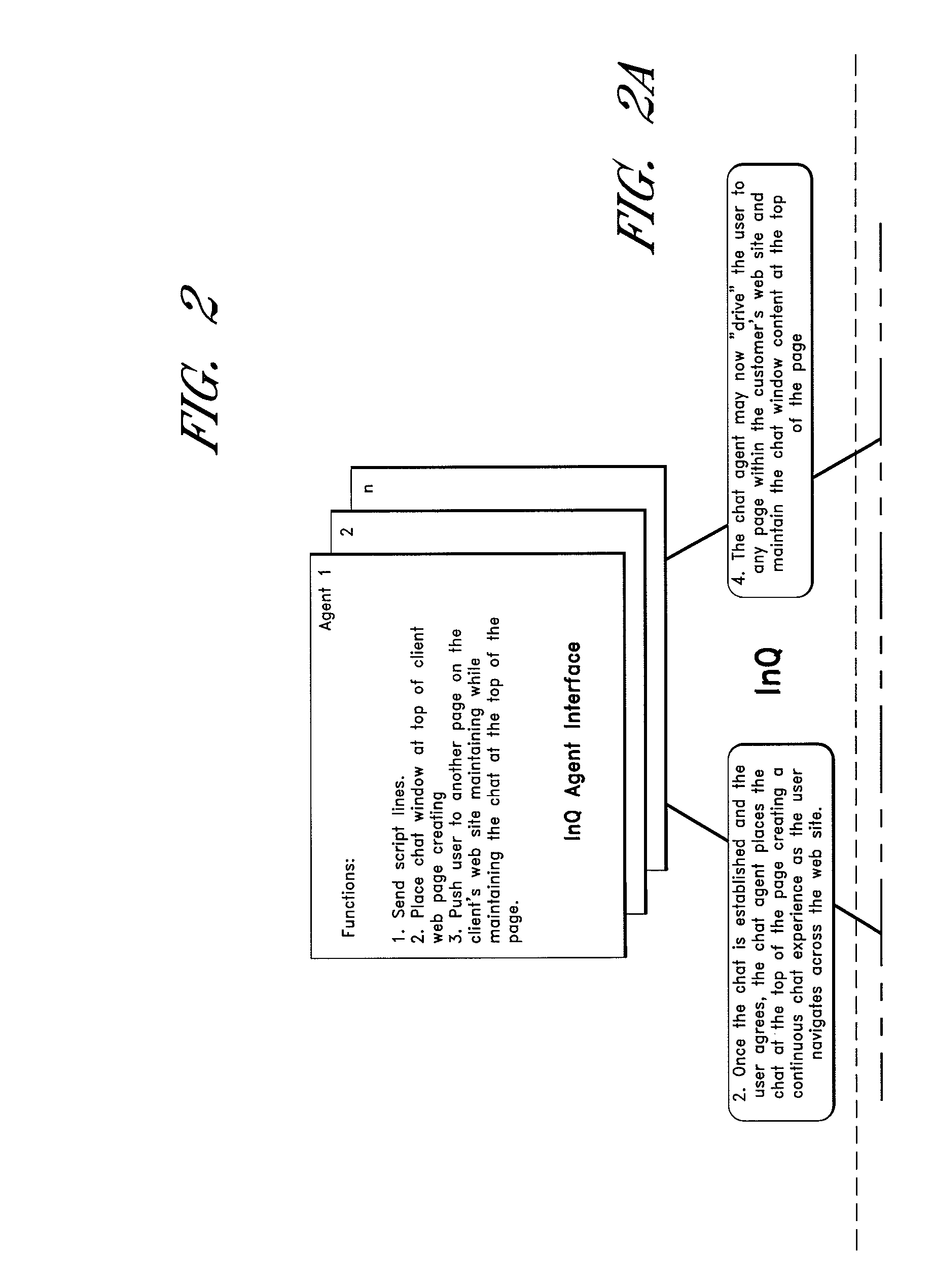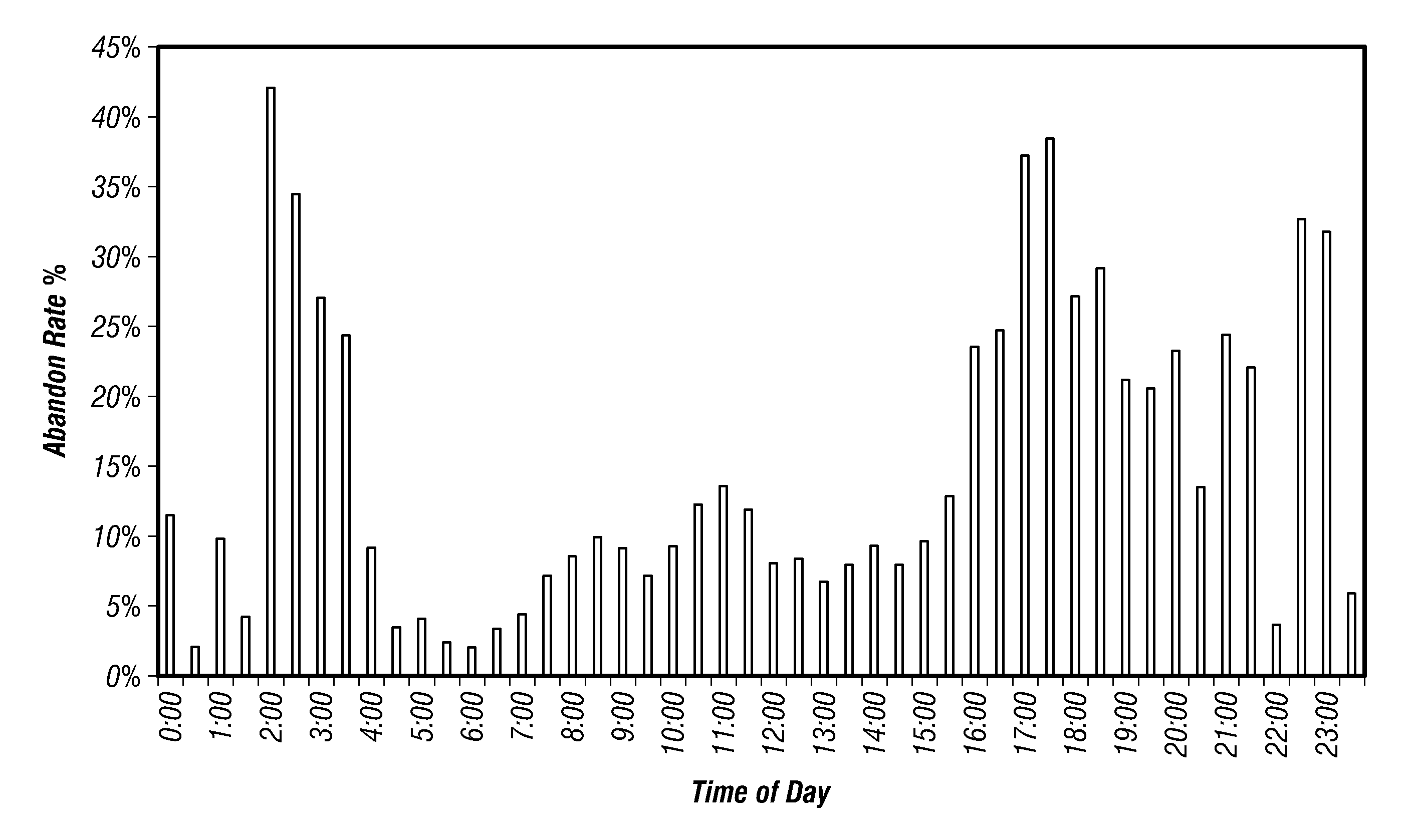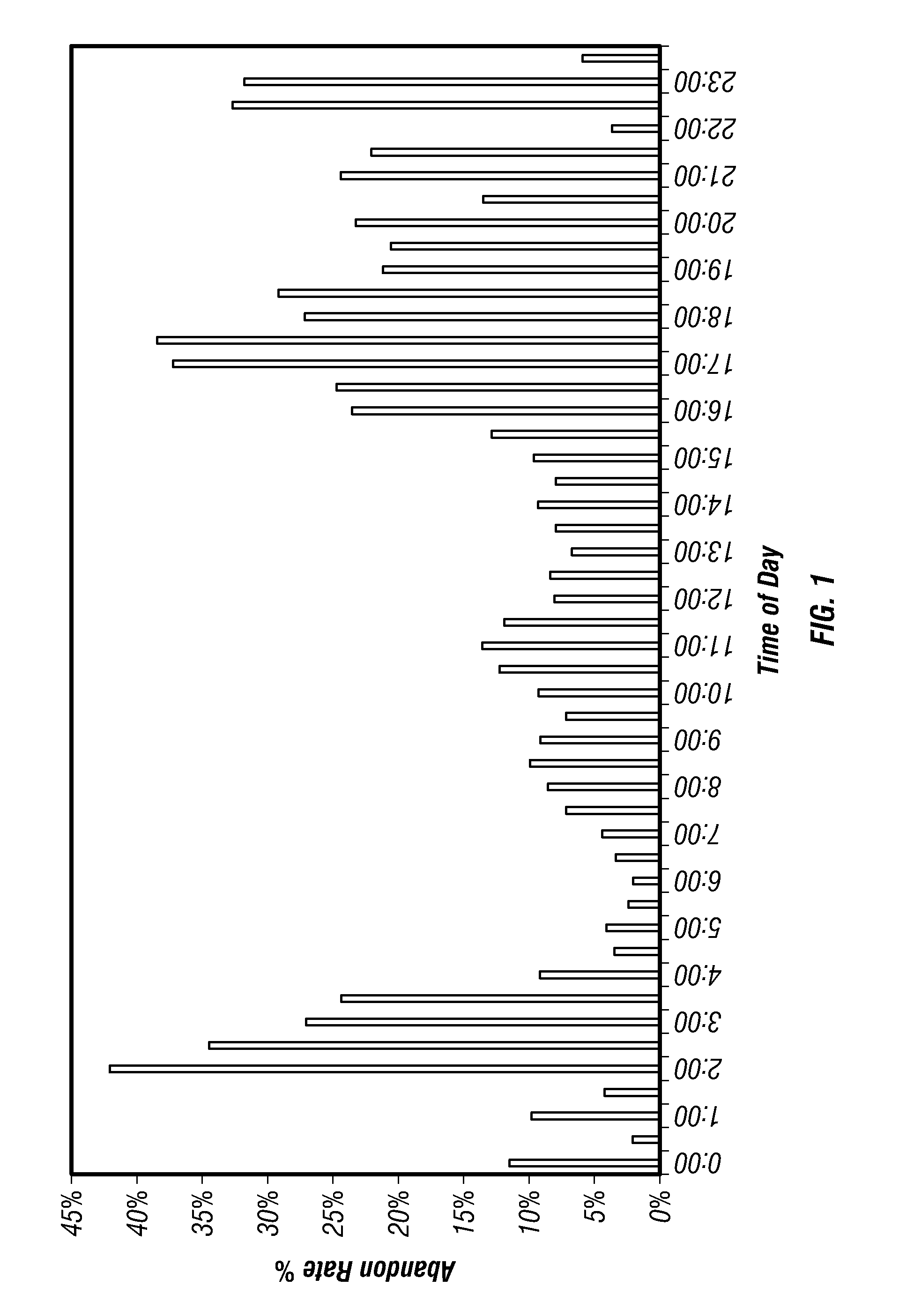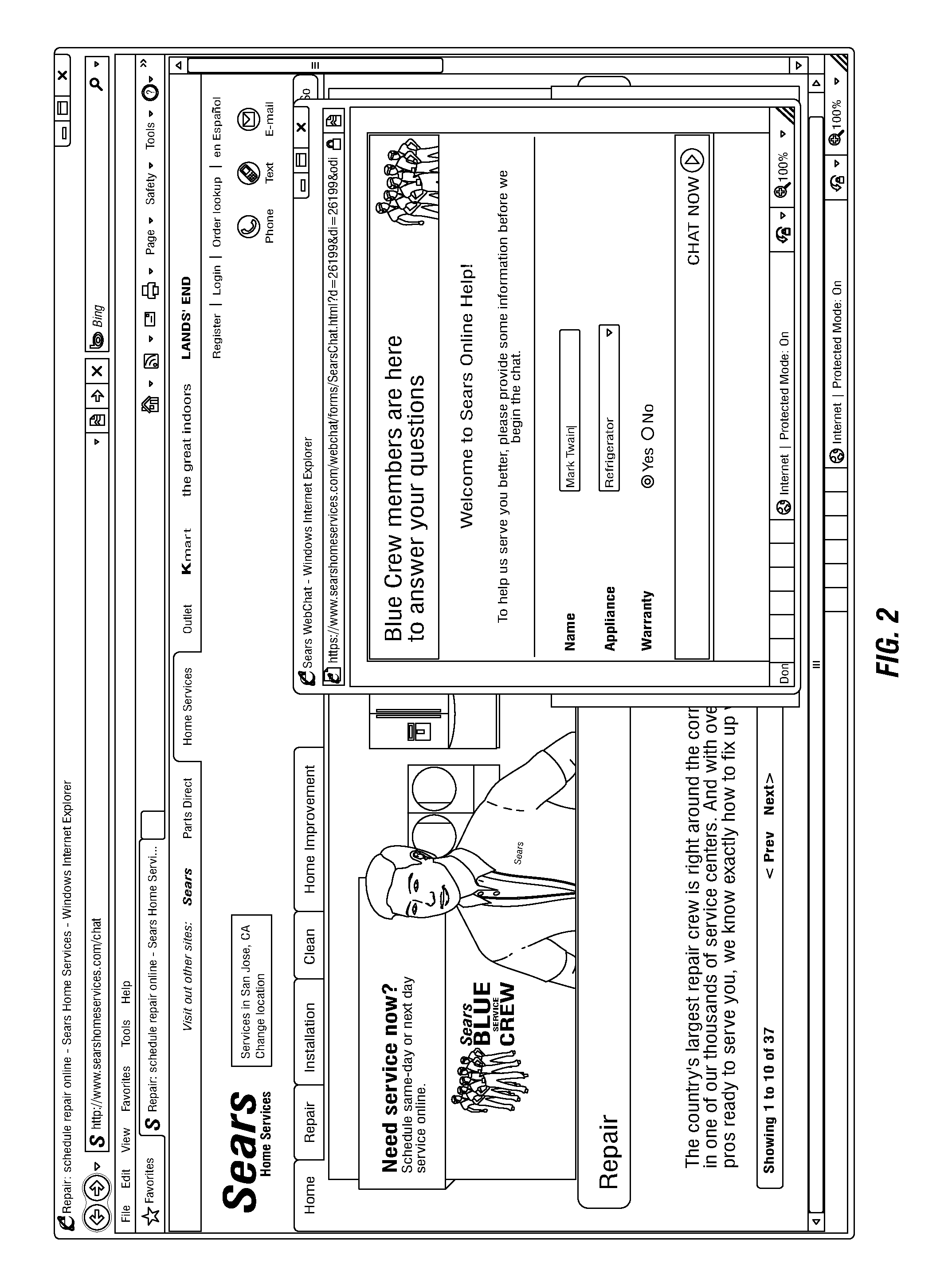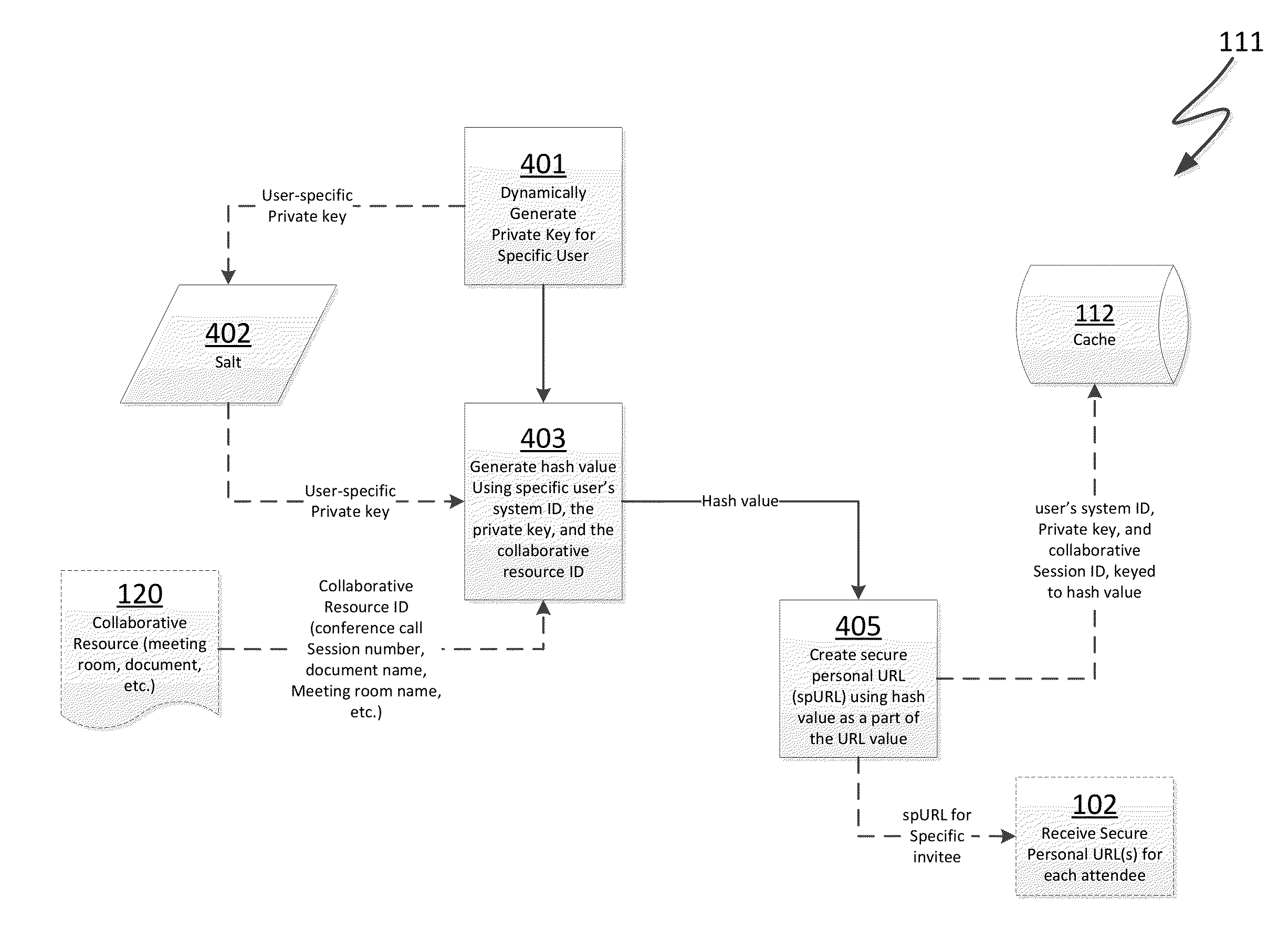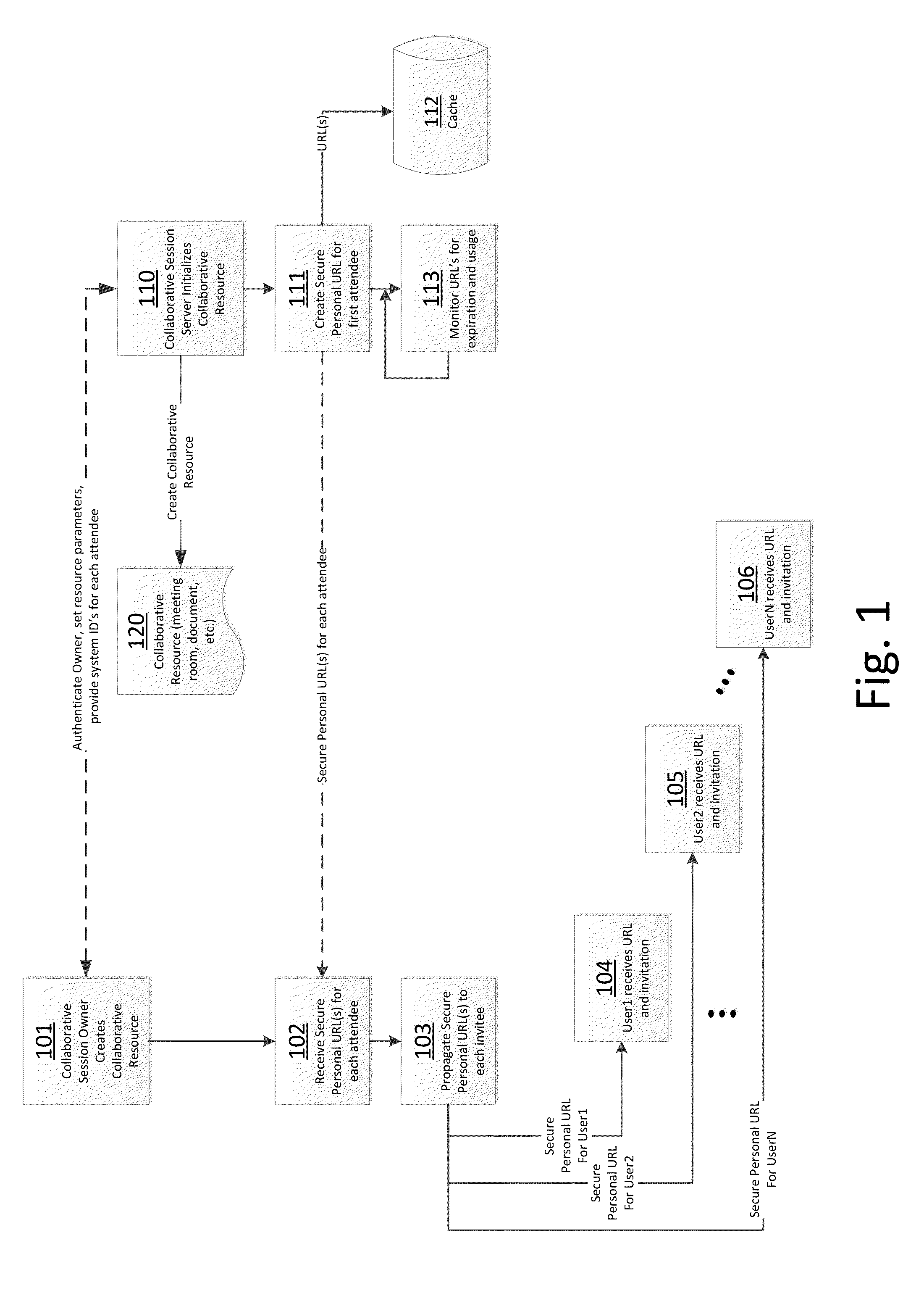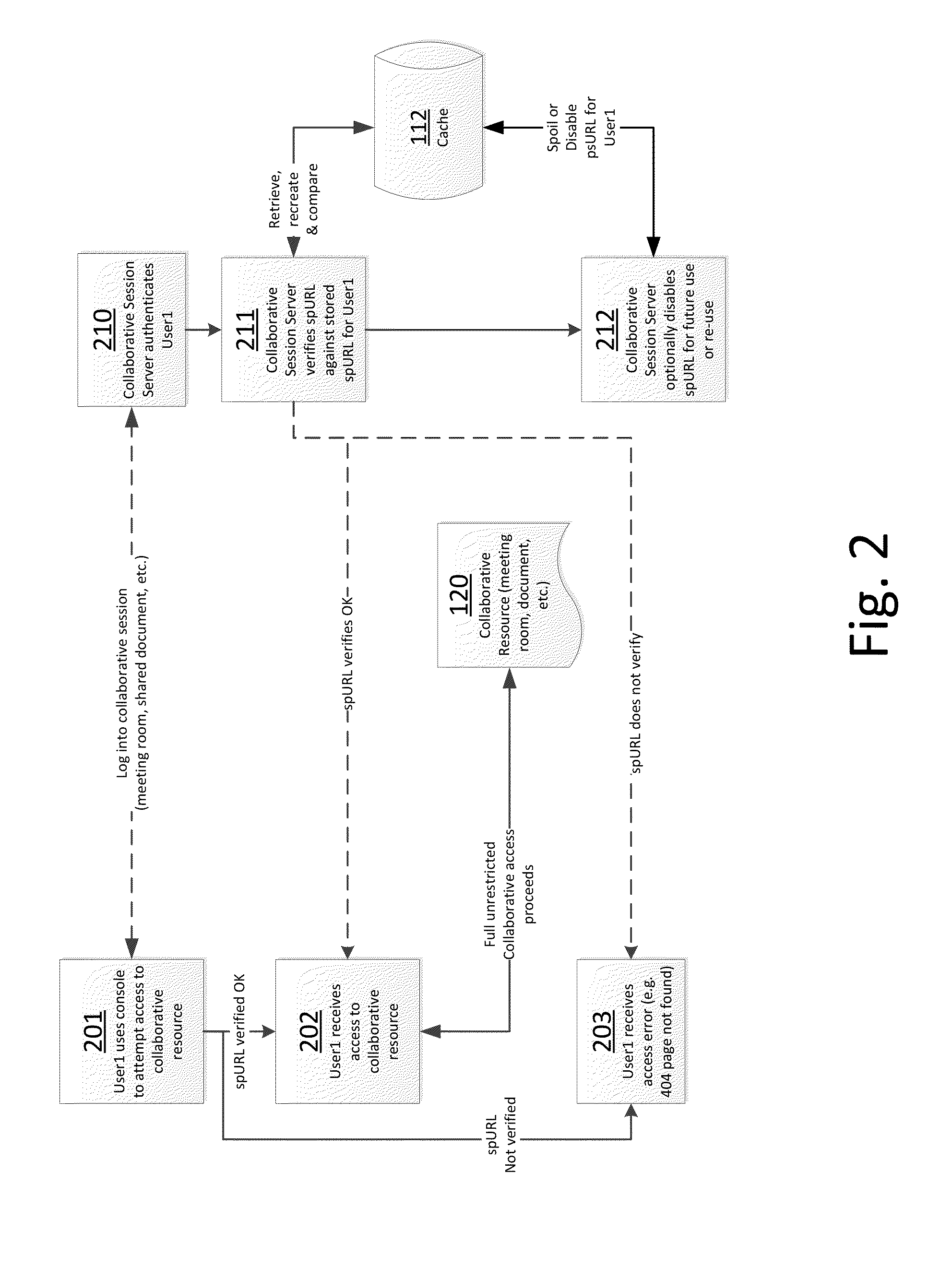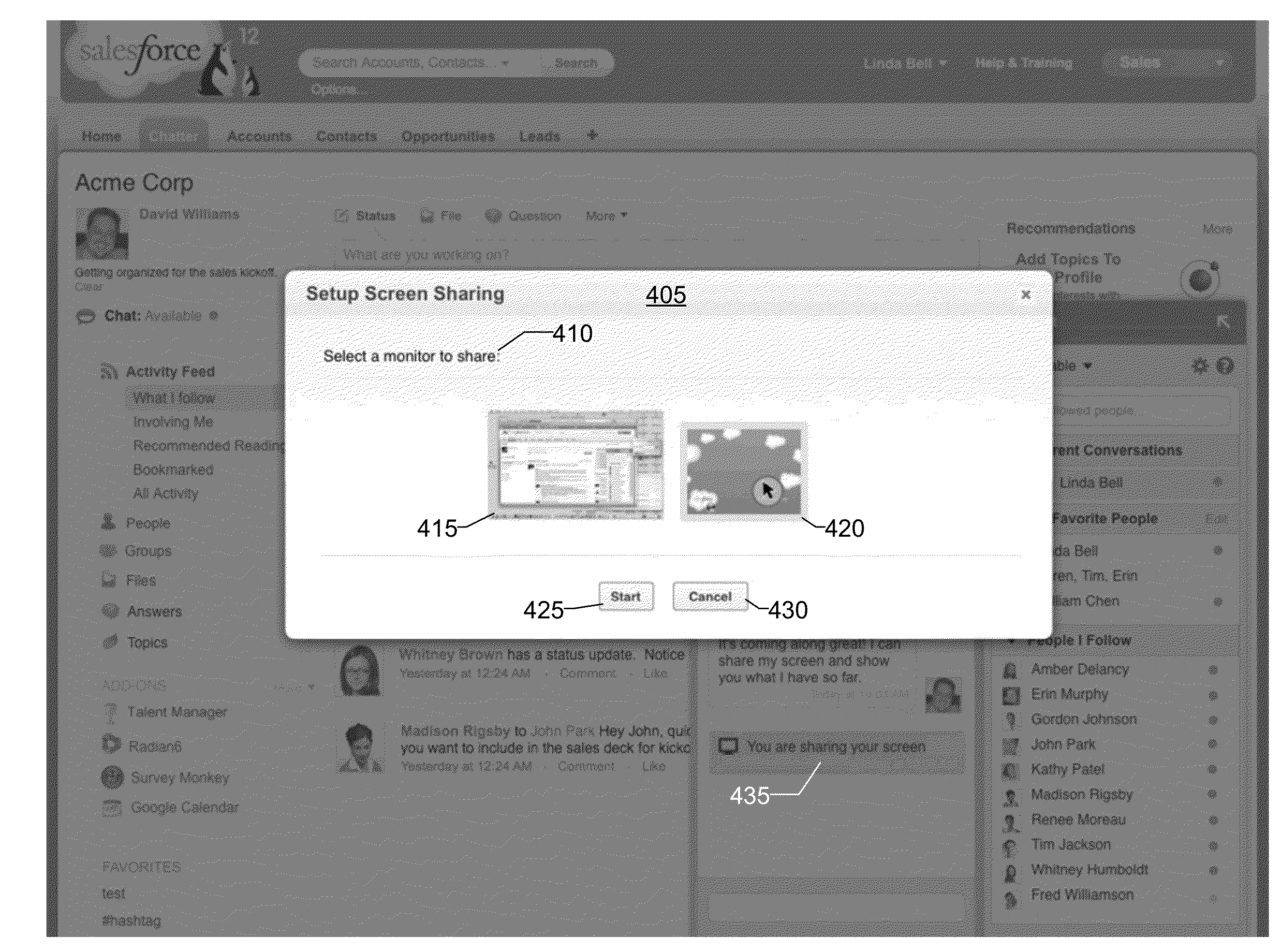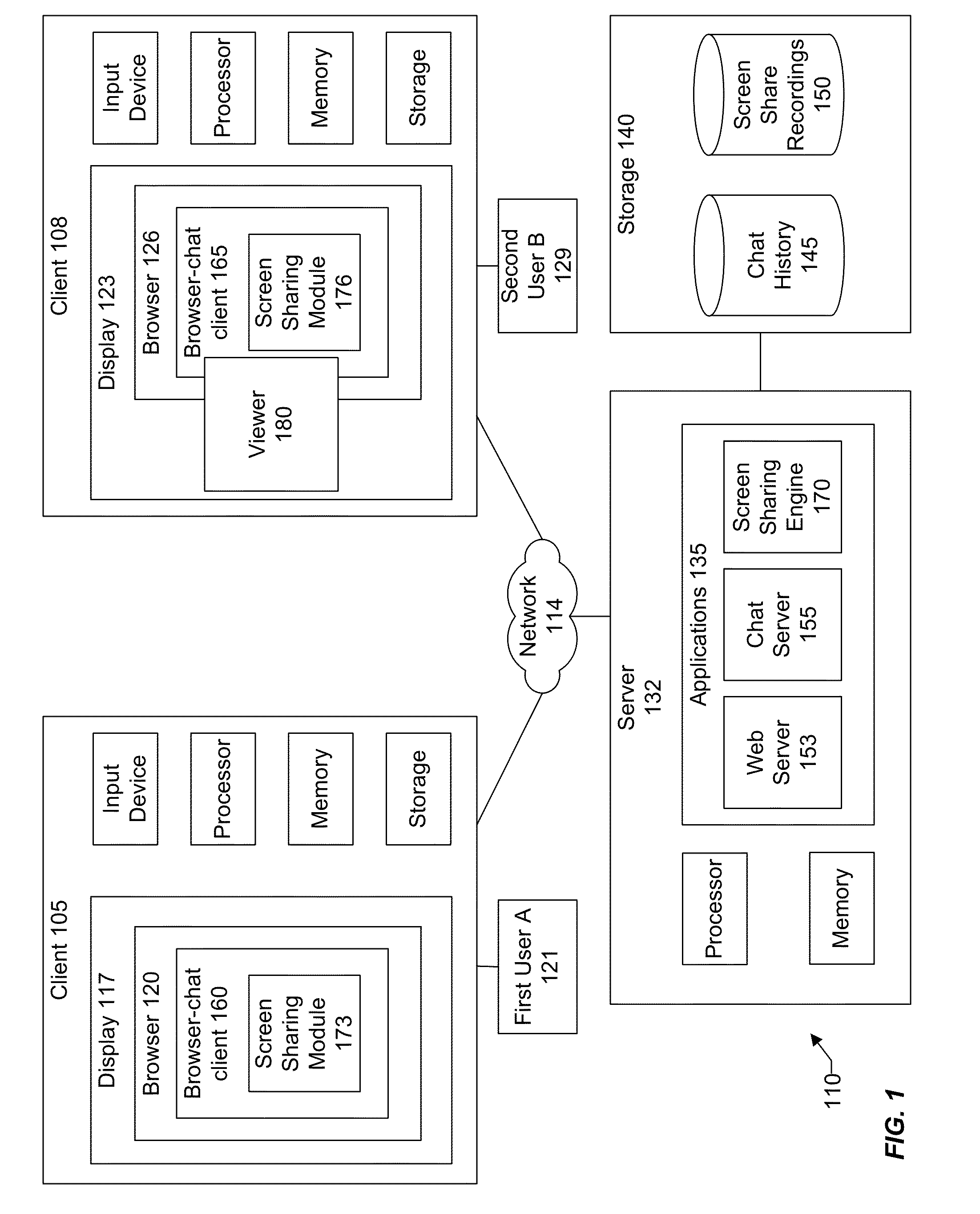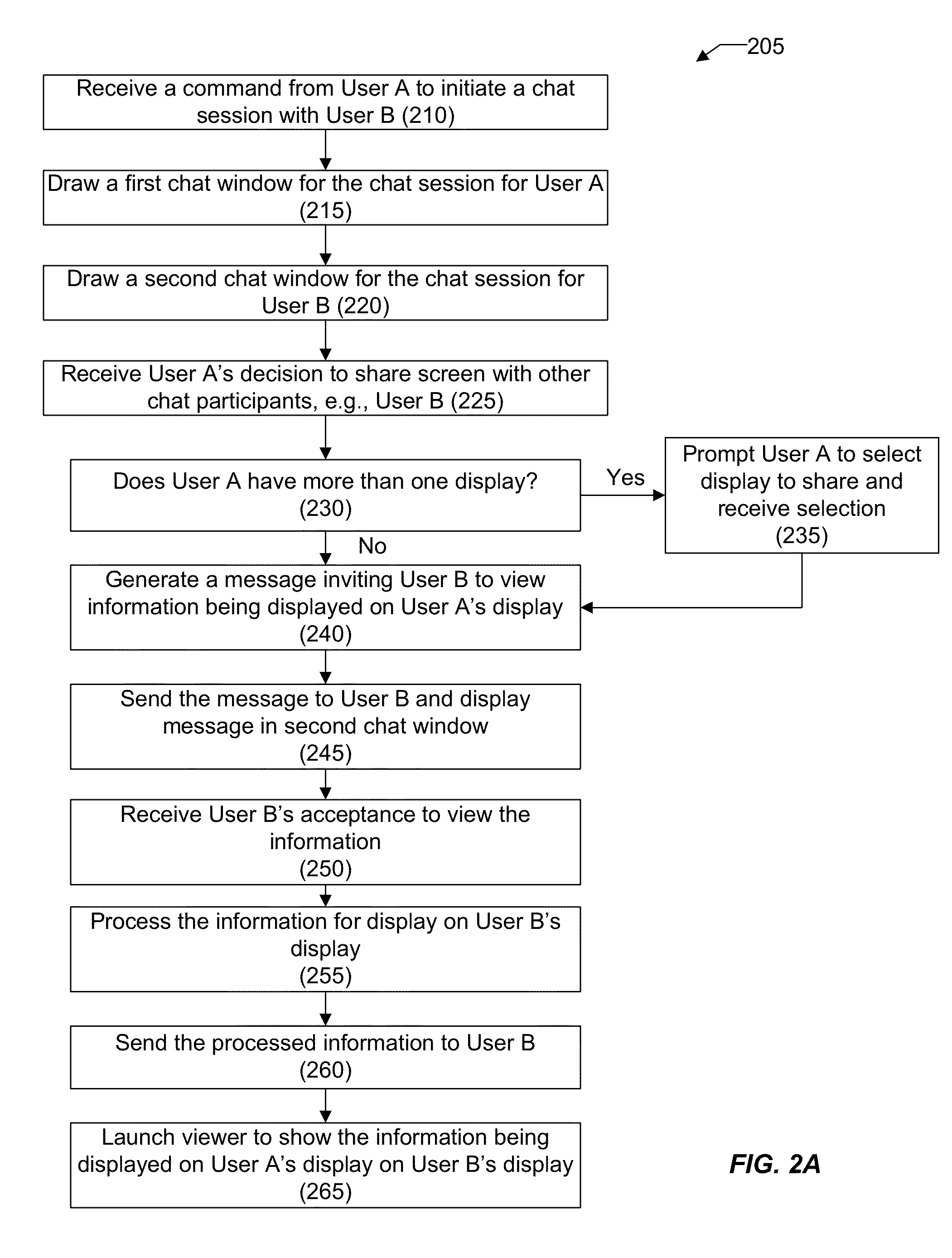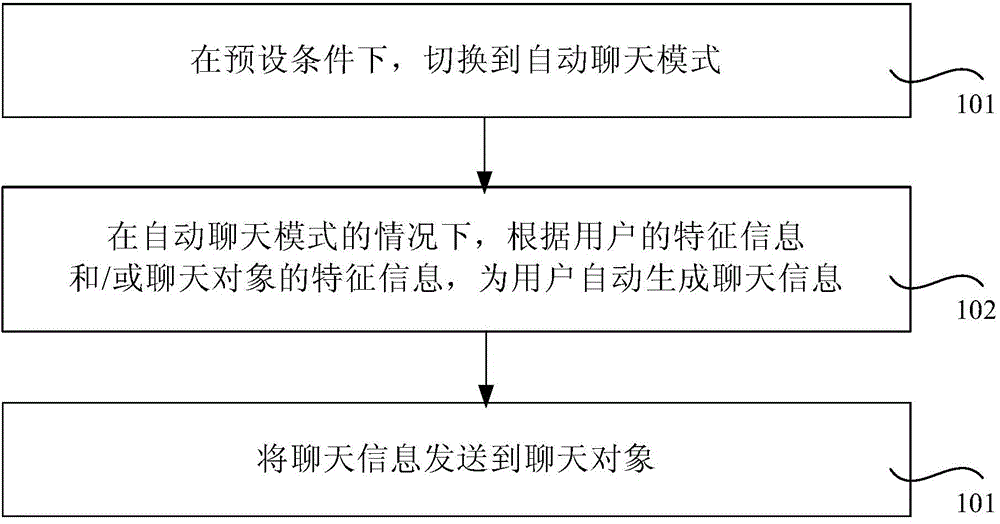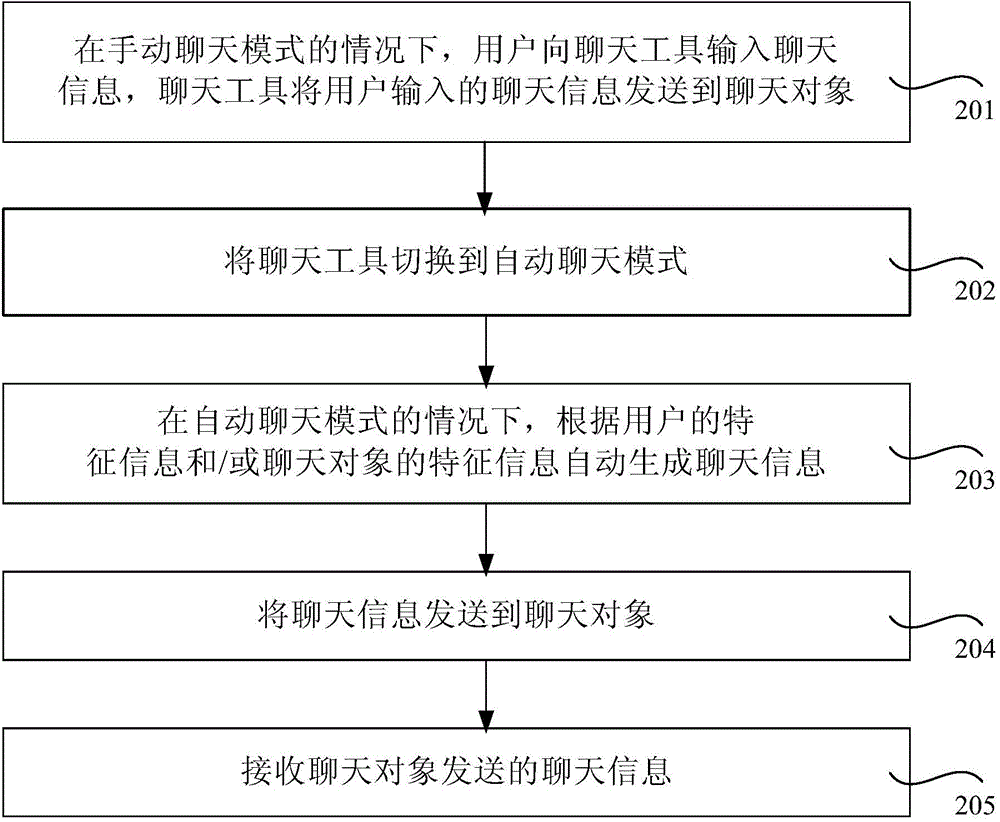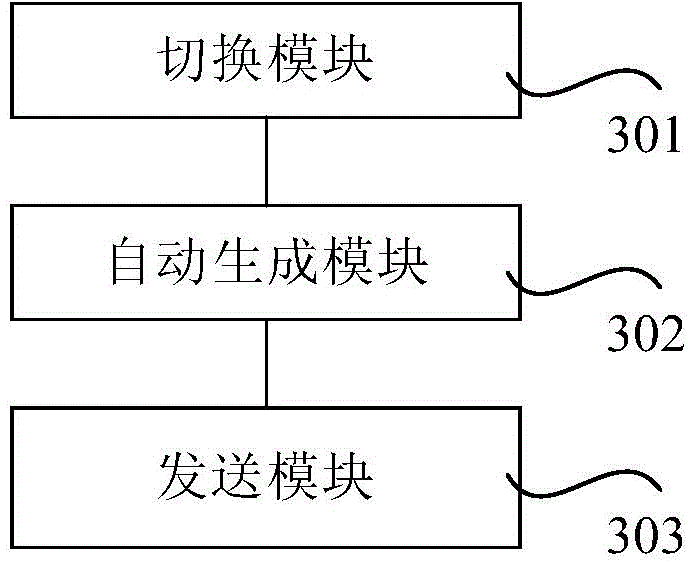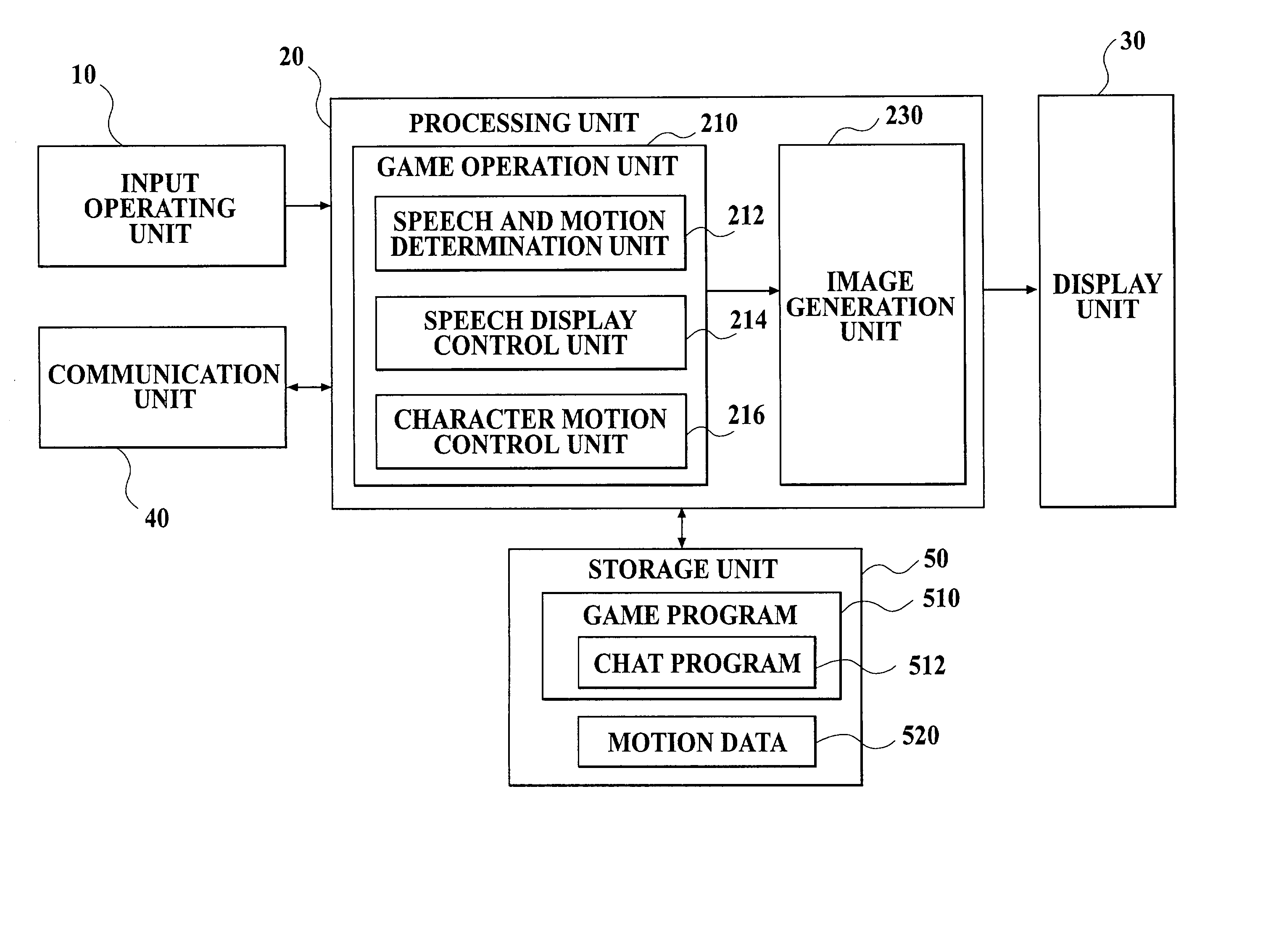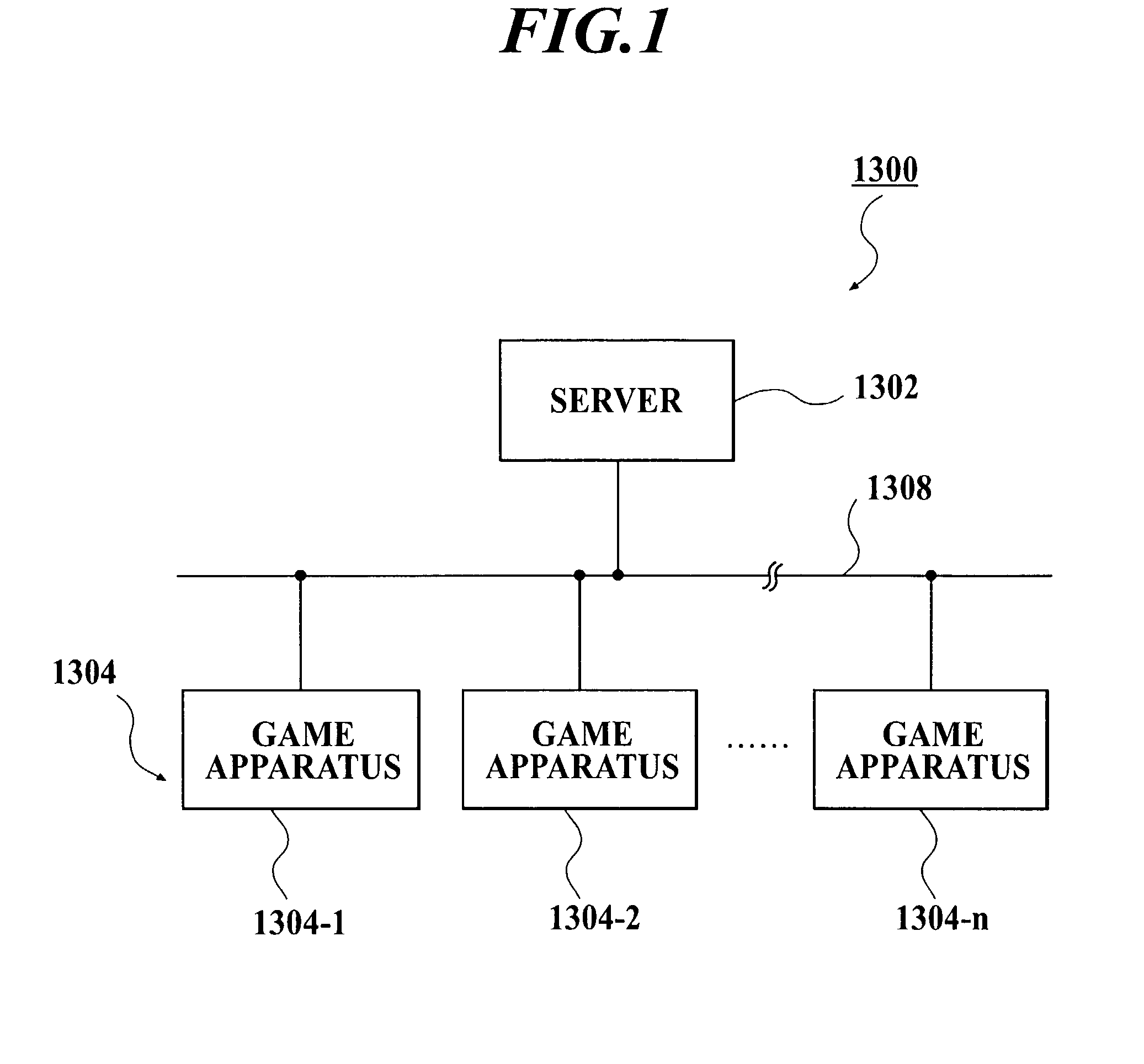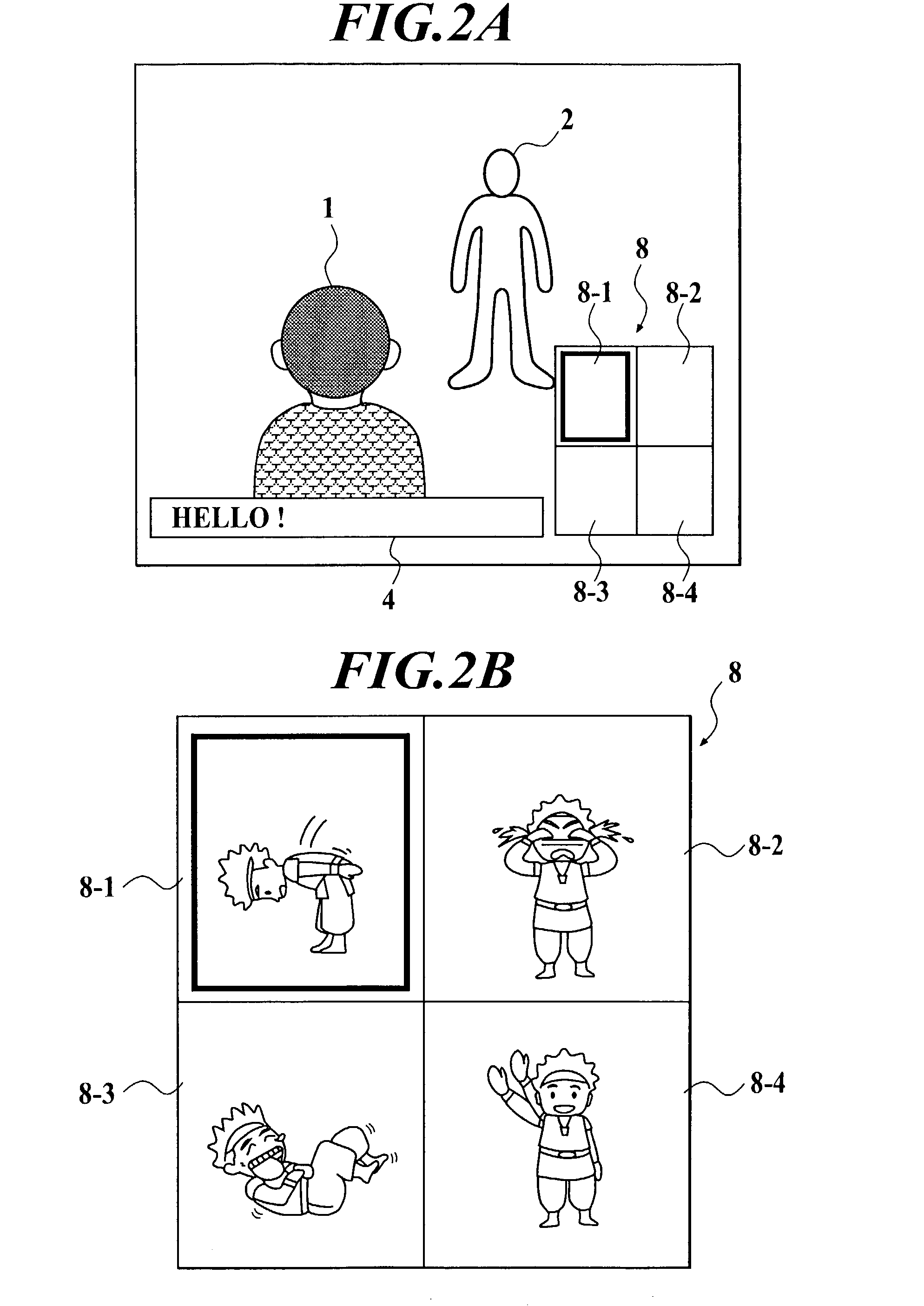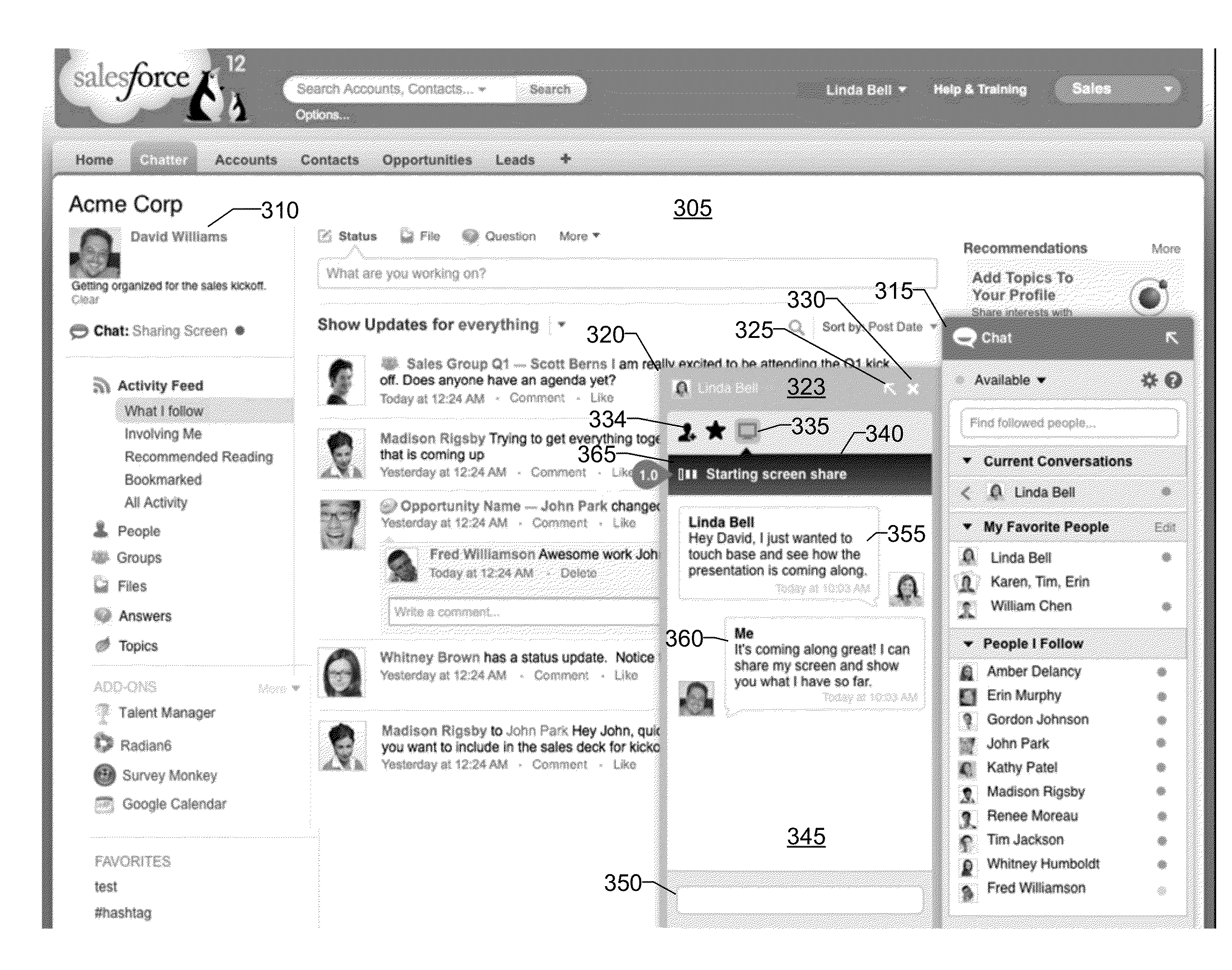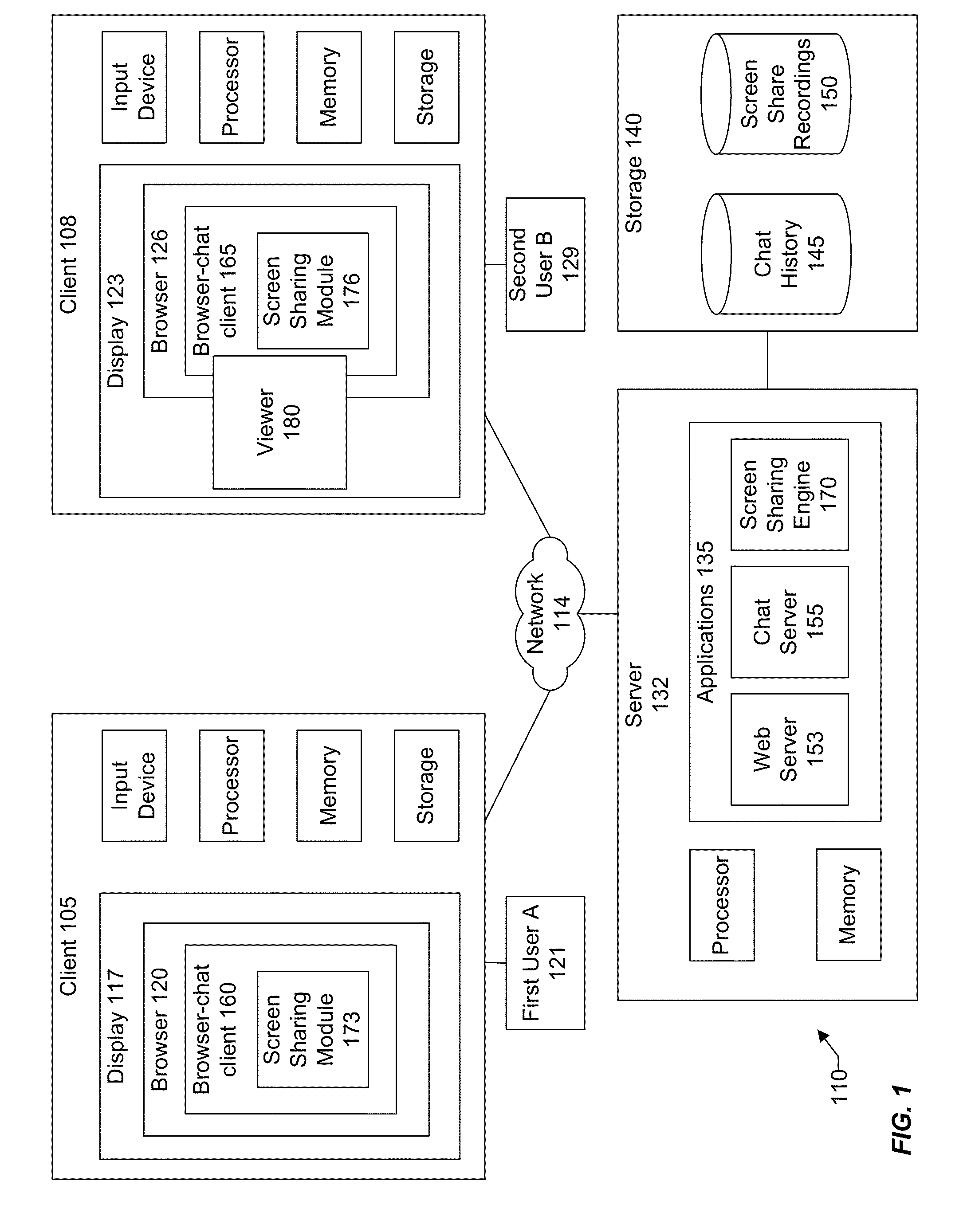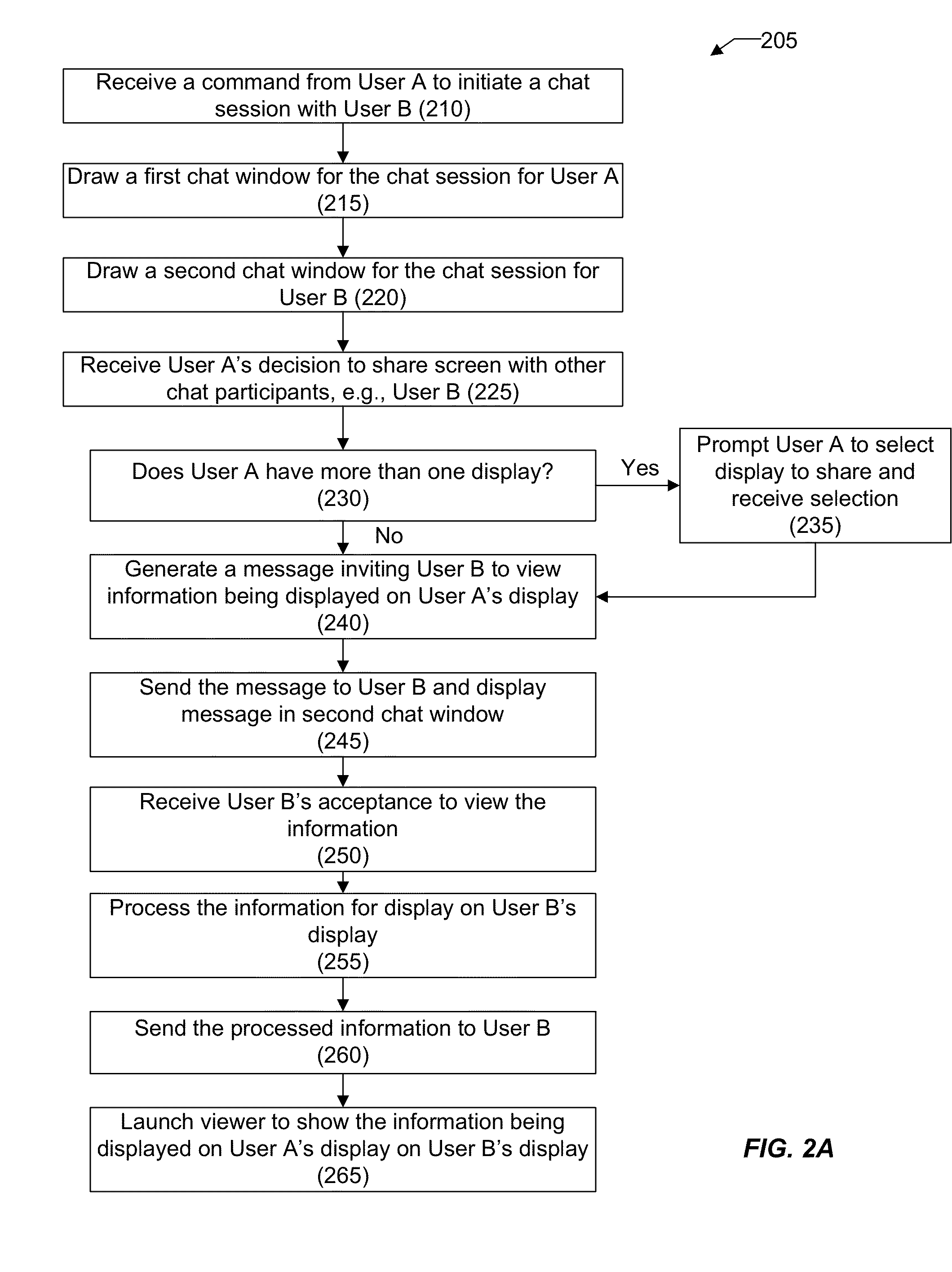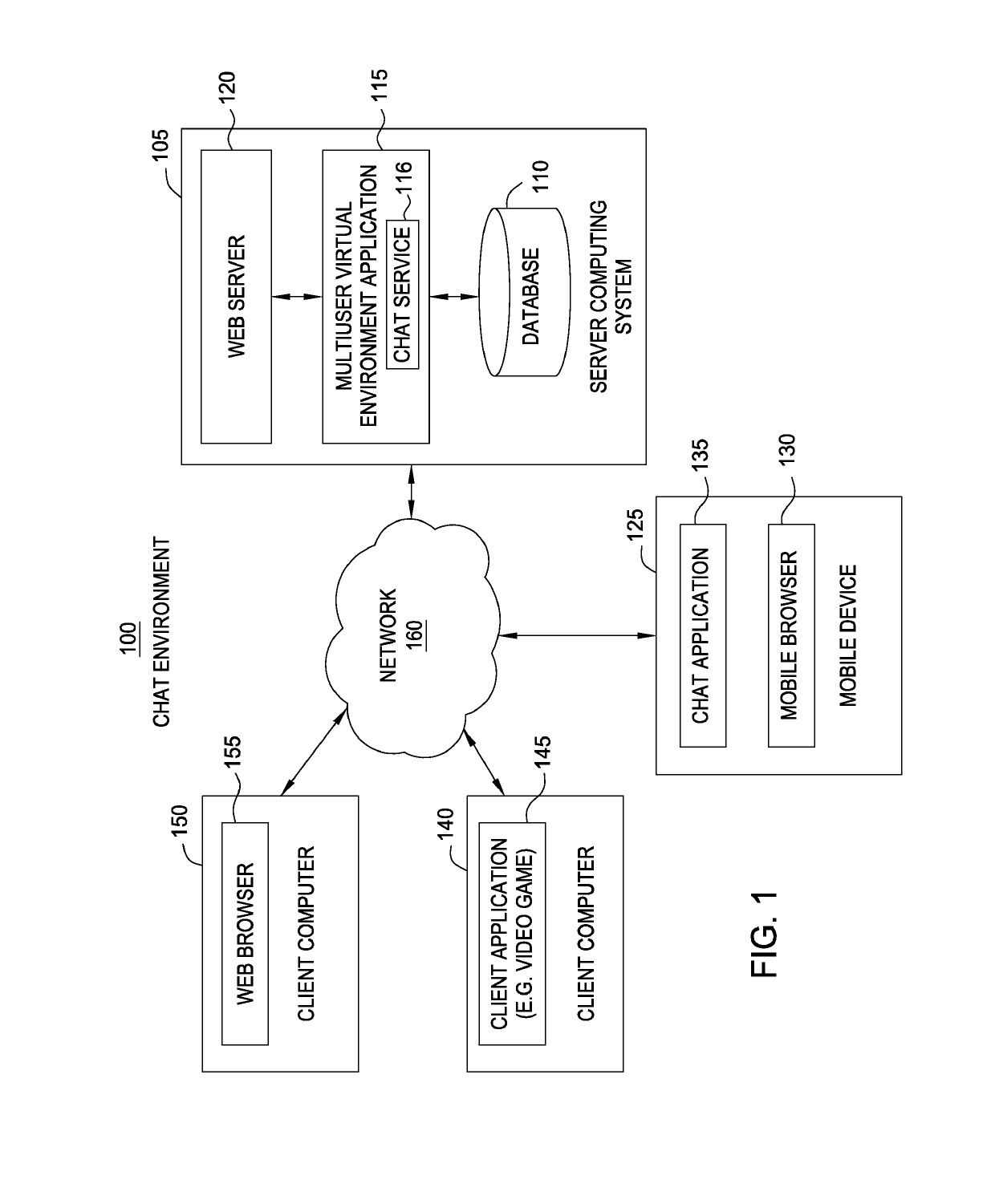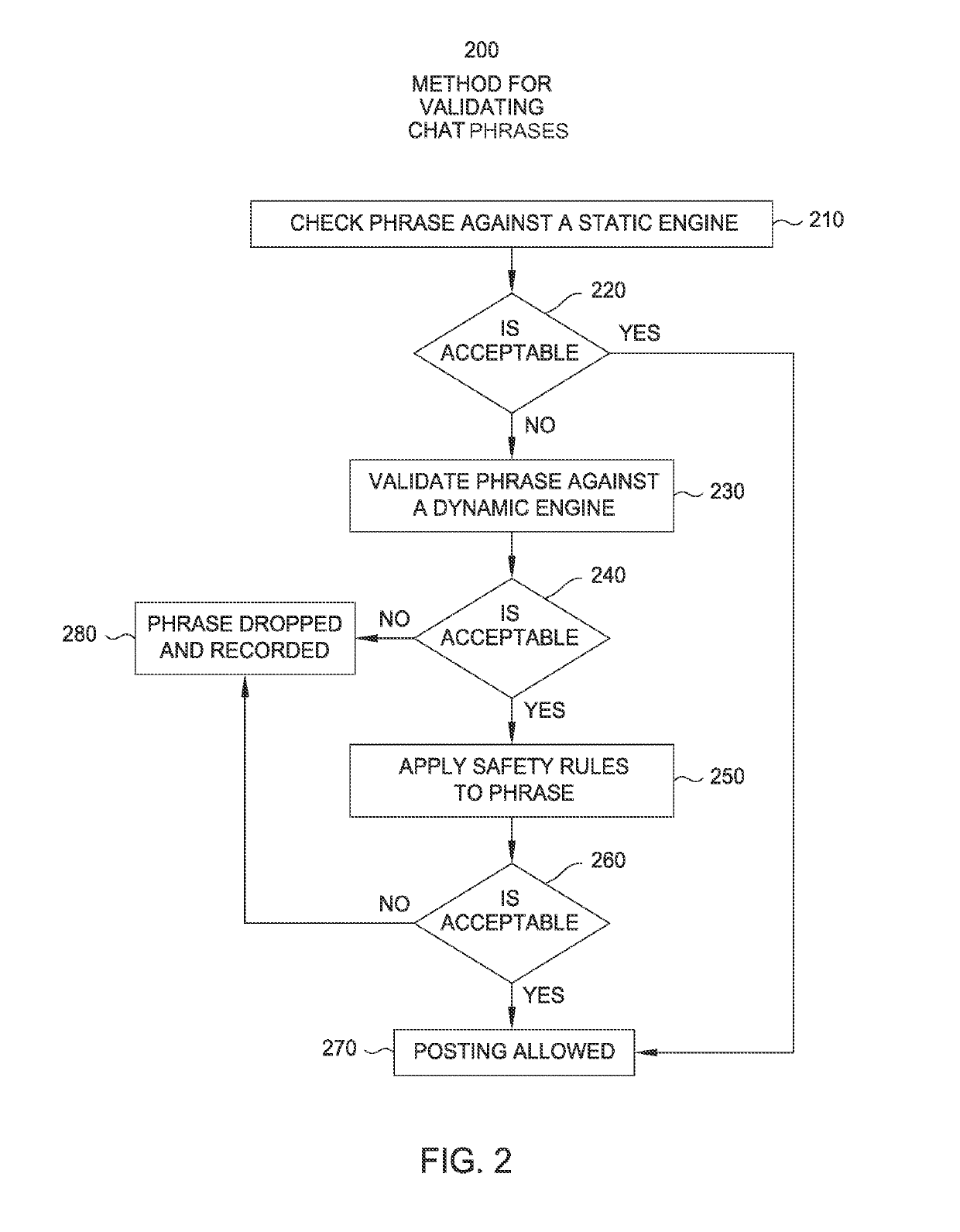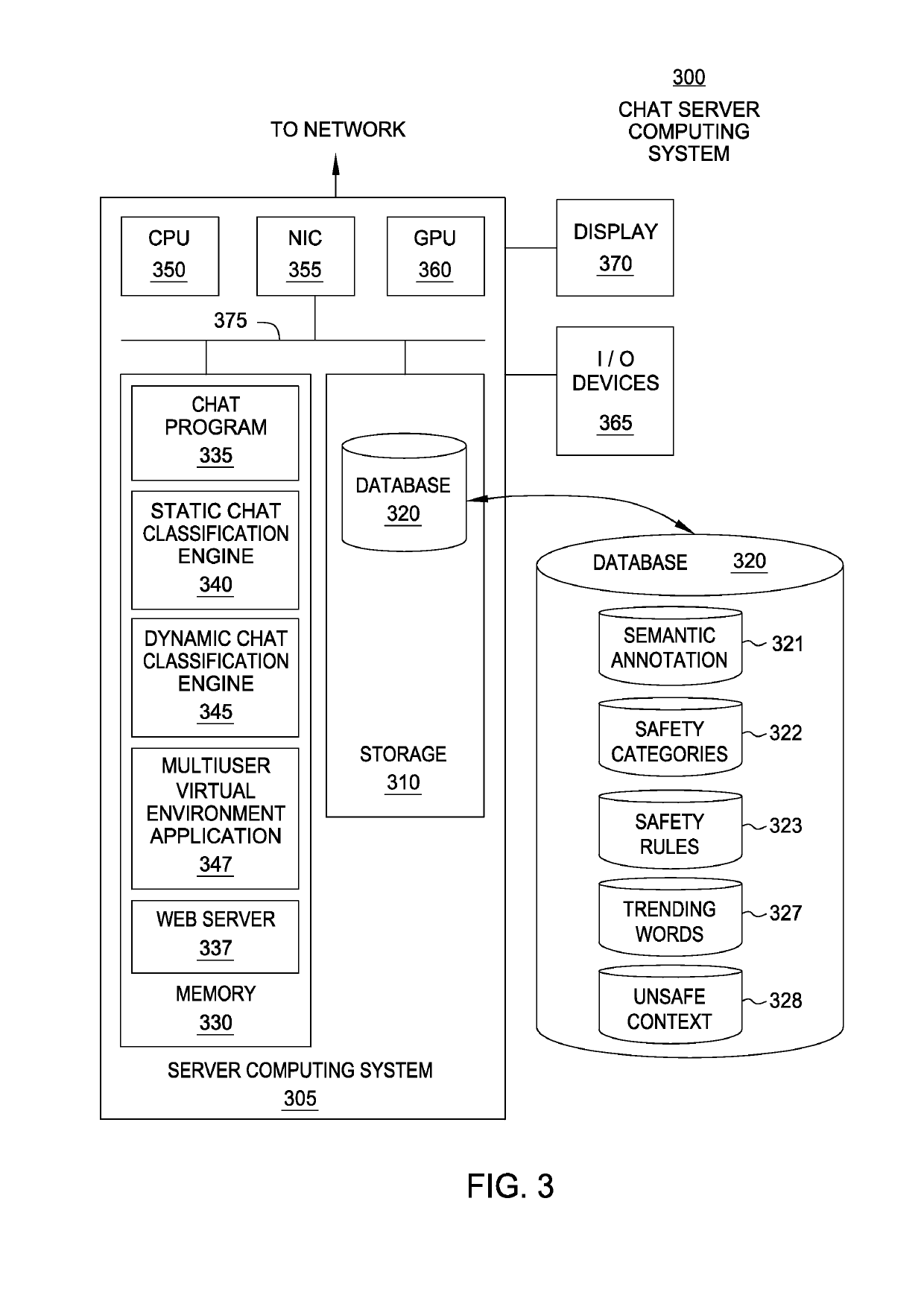Patents
Literature
130 results about "Online chat" patented technology
Efficacy Topic
Property
Owner
Technical Advancement
Application Domain
Technology Topic
Technology Field Word
Patent Country/Region
Patent Type
Patent Status
Application Year
Inventor
Online chat may refer to any kind of communication over the Internet that offers a real-time transmission of text messages from sender to receiver. Chat messages are generally short in order to enable other participants to respond quickly. Thereby, a feeling similar to a spoken conversation is created, which distinguishes chatting from other text-based online communication forms such as Internet forums and email. Online chat may address point-to-point communications as well as multicast communications from one sender to many receivers and voice and video chat, or may be a feature of a web conferencing service.
Online shopping with virtual modeling and peer review
InactiveUS6901379B1Easy to displayEducational modelsBuying/selling/leasing transactionsWeb siteDigital image
When a user browses an online retailer's Web site or a mirror site, the user can select an item and model the item online by having a server generate a digital image of the user wearing the item. If the user is still unsure as to whether to buy the item, the user can enter an online chat room in which the online modeling image is displayed to other users. The user can then receive the other users' feedback before deciding whether to buy the item. In a second embodiment, multiple online modeling images are generated to provide the user with a customized catalog, which can be of items for a single merchant or multiple merchants.
Owner:4 D NETWORKS
Integrating live chat into an online credit card application
A system and method are described for providing on line chat help to an applicant. An application identifier and a chat applet are inserted into a web page. The web page is sent to the applicant. The chat applet is configured to determine based on an event that the applicant could benefit from online chat and, upon such determination, to send a request to a chat server for a connection and to include the application identifier with the request.
Owner:LIVEPERSON
Methods and systems for providing online chat
ActiveUS20070245249A1Multiple digital computer combinationsExecution for user interfacesWeb pageUser interface
The present disclosure relates generally to digital conferencing. A chat server causes a chat user interface to appear as a popup window hovering over a web page. In response to a first event, the chat server causes the chat user interface to appear as part of the web page.
Owner:TOUCHCOMMERCE INC
Methods and systems for screensharing
ActiveUS20130055113A1Not addressInput/output for user-computer interactionMultiple digital computer combinationsScreen sharingOnline chat
A user engaged in an online chat session with one or more other users can start a screen sharing session with the other users without having to leave the context of the online chat session. In an implementation, a chat window for the chat session includes a screen sharing button. The screen sharing button can be clicked to start a screen sharing session with the other chat participants. A system generated message is displayed within the chat windows of the other chat participants inviting them to view the remote screen. Upon accepting the invite, a viewer is launched to show the information being displayed on the remote screen.
Owner:SALESFORCE COM INC
Dialogue analyzer configured to identify predatory behavior
InactiveUS20090089417A1Avoid privacyPrivacy protectionDigital data information retrievalDigital computer detailsComputer usersLexical rule
A dialogue analyzer configured to identify online communications relating to lewd, predatory, hostile, and / or otherwise inappropriate subject matter is disclosed. Identified communications include those occurring via social networks, instant messaging, online chat rooms, computer in-game chat, email and the like. The communications of a monitored computer user are scanned to identify those communications that match predetermined lexical rules. The rules comprise sets of word-concepts that may be associated based on spelling, sound, meaning, appearance or probability of appearance in a text string, etc. Various numbers and configurations of word concepts may be implemented in a rule in order to more accurately scan the online communication data for a potential match. When a match is found, a copy of the communication, along with contextual information, is presented to a parent or guardian user. This information is presented at a central website and via an email notification to the parent or guardian. Various embodiments are described.
Owner:CRISP THINKING U S
Application sharing functionality in an information networking environment
InactiveUS20150032686A1Not addressStatic indicating devicesDigital data processing detailsScreen sharingInformation networks
A user engaged in an online chat session with one or more other users can start a screen sharing session with the other users without having to leave the context of the online chat session. In an implementation, a chat window for the chat session includes a screen sharing button. The screen sharing button can be clicked to start a screen sharing session with the other chat participants. A system generated message is displayed within the chat windows of the other chat participants inviting them to view the remote screen. Upon accepting the invite, a viewer is launched to show the information being displayed on the remote screen. A variety of enhanced features and functions are also presented in the context of screen sharing in an information networking environment.
Owner:SALESFORCE COM INC
System and method for identifying information
InactiveUS20020174183A1Natural language data processingMultiple digital computer combinationsMessage flowElectronic mail
An apparatus and method for identifying digital communications, or analog communications which have been converted to digital, having content considered to be abnormal, undesirable or otherwise inappropriate. The use of specific words are analyzed in the context in which they were used. Digital communications may be monitored and continuously updated to reflect the likelihood that the originator of the message or message stream is engaged in inappropriate communications. Monitoring may be directed to online chat room conversations, email messages or messages posted to an online bulletin board. The level of digital conversation may be correlated to a color scheme indicative of the normality of the conversation. This color scheme may then be used to determine if the ability of a particular user to continue to provide messages should be limited. In this manner, a single individual performing a monitoring function may easily monitor a plurality of text-based conversations. Various embodiments are described.
Owner:CHATGUARD COM
Video linking to electronic text messaging
InactiveUS20090210778A1Selective content distributionData switching networksVideo annotationApplication software
Certain embodiments of the invention include methods and apparatuses for linking video information to electronic messages such as electronic mail (email), online chat, web logs (“blogs”), bulletin boards, web page text, Simple Mobile Services (SMS), Multimedia Messaging Service (MMS) and other electronic message formats. One embodiment provides for embedding links from a video annotation session at a cursor position in an email application. A method for transferring from email to chat and vice versa is disclosed whereby association with video content is maintained.
Owner:FALL FRONT WIRELESS NY
System and method for the automated presentation of system data to, and interaction with, a computer maintained database
InactiveUS20030061072A1Improve efficiencyEasy to take care ofComputer-assisted medical data acquisitionDiagnostic recording/measuringDiseaseDiscussion group
A system and method are provided for extracting a set of data from a system user descriptive of the complete health snapshot of the user's to interact with a database of numerous other users so as to generate a cluster of similar user's exhibiting a similar (within some system defined distance metric) health snapshot. The system guides the user to present his or her data via a complex questionnaire based upon a novel descriptive taxonomy, based upon the principles of "cyberhealth" as opposed to the standard medical "disease oriented" singular cause and effect model. The system generates the cluster of similar users, analyzes the cluster to obtain a ranked list of possible remedies or therapies to assist the user in dealing with health problems. The system further creates a computer networked virtual community of users with common health problems / interests, facilitates online chat, discussion groups, and the trading of health information. Additionally, the system provides listings of and links to health care providers and medical testing laboratories who are able to assist users of the system.
Owner:MEDIGENESIS
Method and apparatus for user moderation of online chat rooms
InactiveUS20070168511A1Digital computer detailsElectric digital data processingChat roomPresent method
One embodiment of the present method and apparatus for user-moderation of an online chat room in which a plurality of users are exchanging messages includes providing the chat room and controlling a manner in which the users send and receive the messages in the chat room in accordance with user feedback relating to the messages. In one embodiment, the user feedback is received in the form of user chat profiles, which describe the respective users' participation in the chat room, and flags, which users may be given in response to messages that are deemed inappropriate for the chat room.
Owner:IBM CORP
Recording and playback of screen sharing sessions in an information networking environment
InactiveUS20150033149A1Static indicating devicesNatural language data processingScreen sharingInformation networks
A user engaged in an online chat session with one or more other users can start a screen sharing session with the other users without having to leave the context of the online chat session. In an implementation, a chat window for the chat session includes a screen sharing button. The screen sharing button can be clicked to start a screen sharing session with the other chat participants. A system generated message is displayed within the chat windows of the other chat participants inviting them to view the remote screen. Upon accepting the invite, a viewer is launched to show the information being displayed on the remote screen. A variety of enhanced features and functions are also presented in the context of screen sharing in an information networking environment.
Owner:SALESFORCE COM INC
Systems and methods for conducting derivative trades electronically
InactiveUS20070282733A1Quickly and easily identifyProcess is directionalFinanceFacsimileComputer science
The present invention facilitates efficient negotiations of trade terms and the generation of an electronic trade ticket in the trading of financial instruments. The negotiation process is preferably conducted through a secure online chat program using point-to-point messaging, though the negotiations can take place using the tradition exchanges of phone calls and faxes outside of the confines of an electronic trading system. Once the trade terms have been agreed upon by both parties, then the parties enter an electronic trading system in accordance with the present invention to select the traded financial instrument and generate an electronic trade ticket with can be stored by the trading system and / or the each of the trading parties.
Owner:GFINET INC
Prepaid short messaging
InactiveUS7428510B2Multiplex system selection arrangementsAccounting/billing servicesReal-time chargingClass of service
A prepaid messaging solution which uses open networking standards (e.g., TCP / IP) and which supports pre-payment of enhanced Internet messaging services. The disclosed prepaid architectures and methods accurately determine if a subscriber has sufficient account balance to deliver a complete short message, prior to delivery of the message. The short message may be prevented from being delivered (either at the source end or at the destination end) if insufficient funds are in the subscriber's account. A prepaid tariff engine is preferably extensible over a TCP / IP network, and supports remote interaction with the SMSC and web chat servers for the purpose of applying a real-time billing charge for each message. A service provider may create subscriber classes of service that define and uniquely identify subscriber rate and / or tariffing plans used to apply real-time billing charges for sending or receiving of messages. The prepaid short message tariff engine determines the appropriate message billing based upon, e.g., flat rate per message, message count (e.g., 10 messages @ $ 5.00), character count (e.g., $0.01 / char.), Time of Day, Day of Week (i.e., peak & non-peak hours), type of message, and / or mobile location (i.e., network point code). The prepaid short messaging service preferably supports Internet web page access to subscriber's relating to their short messaging account balances and status maintained in the prepaid short messaging database of the prepaid messaging server.
Owner:TELECOMM SYST INC
Network-based interaction and review service for facilitating communication in a network-based commerce environment
InactiveUS20060173702A1Facilitate communication sessionOffice automationMarketingInteraction systemsWeb browser
A network-based interaction and review server allows a user (e.g., a purchaser) to obtain reviews, collaboratively shop and consult experts with respect to a topic, web domain, website or product without being limited to engaging a service specific to a particular web domain, website or the network location. An interaction companion to a web browser may capture a Uniform Resource Locator (URL) of a website or web domain, currently being accessed via a web browser. This URL is communicated back into an interaction system, which performs a lookup to identify other users that are currently accessing the website or web domain, reviews relevant to the website or web domain, and experts associated with the website or web domain. The user then has the option of accessing such reviews, or engaging in communications (e.g., a web chat session or collaborative browsing) with the identified users or an expert. When engaging an expert, the expert assumes a leadership role in a collaborative browsing session. When collaboratively browsing with users, the user assumes a leadership within the collaborative session.
Owner:SAXENA ASHOK R +2
Systems and methods for preventing sensitive information from being communicated into a non-secure environment
ActiveUS8204180B1Interconnection arrangementsUnauthorised/fraudulent call preventionBidirectional communicationOnline chat
A telecommunication system is arranged between a trusted automated interactive system and a non-secure agent. The trusted automated interactive portion is operable for bidirectional communications with a caller. The agent portion is arranged to be bridged onto a communication connection between the caller (or network chat user) and the trusted interactive system under certain conditions. Sensitive data transmitted between the system and a calling user may be blocked from being communicated to the agent even while the agent is bridged onto the connection. In one embodiment, information (such as a verification of authenticity of the caller) pertaining to the sensitive data (but not the sensitive data itself) is communicated to the agent.
Owner:INTERVOICE PARTNERSHIP
System and method for identifying information
InactiveUS20050091328A1Natural language data processingMultiple digital computer combinationsMessage flowElectronic mail
An apparatus and method for identifying digital communications, or analog communications which have been converted to digital, having content considered to be abnormal, undesirable or otherwise inappropriate. The use of specific words are analyzed in the context in which they were used. Digital communications may be monitored and continuously updated to reflect the likelihood that the originator of the message or message stream is engaged in inappropriate communications. Monitoring may be directed to online chat room conversations, email messages or messages posted to an online bulletin board. The level of digital conversation may be correlated to a color scheme indicative of the normality of the conversation. This color scheme may then be used to determine if the ability of a particular user to continue to provide messages should be limited. In this manner, a single individual performing a monitoring function may easily monitor a plurality of text-based conversations. Various embodiments are described.
Owner:CHATGUARD COM
Data driving face expression synthesis method based on Laplace transformation
InactiveCN101944238AAchieve migrationClear algorithmAnimationLaplacian coordinatesPattern recognition
The invention discloses a data driving face expression synthesis method based on Laplace transformation, comprising the following steps of: resolving face motion data captured after the face motion of a performer is acquired into a face expression motion and a head rigid motion; calculating the Laplace coordinates of each peak in a loaded neutral target face model; moving the face expression motion to the neutral target face model to make the neutral target face model have consistent expressions with the performer; and moving the head rigid motion to the target face model having the consistent expressions with the performer to make the final target face model have consistent face expressions and head postures with the performer. Based on a Laplace transformation technology being capable of keeping the original detail features of the model, the invention keeps the existing detail features on the target face model while realizing the moving of the face expressions, has the advantages of definite arithmetic, friendly interface and robust result and can be conveniently applied to the computer game field, the online chat field and other man-machine interaction fields.
Owner:ZHEJIANG UNIV
Dialogue analyzer configured to identify predatory behavior
InactiveUS20110178793A1Easy to detectImprove notificationsDigital data information retrievalData switching networksWeb siteComputer users
Owner:IMSAFER +1
System and method for the automated presentation of system data to, and interaction with, a computer maintained database
InactiveUS7676384B2Computer-assisted medical data acquisitionDiagnostic recording/measuringDiseaseDiscussion group
A system and method are provided for extracting a set of data from a system user descriptive of the complete health snapshot of the user's to interact with a database of numerous other users so as to generate a cluster of similar user's exhibiting a similar (within some system defined distance metric) health snapshot. The system guides the user to present his or her data via a complex questionnaire based upon a novel descriptive taxonomy, based upon the principles of “cyberhealth” as opposed to the standard medical “disease oriented” singular cause and effect model. The system generates the cluster of similar users, analyzes the cluster to obtain a ranked list of possible remedies or therapies to assist the user in dealing with health problems. The system further creates a computer networked virtual community of users with common health problems / interests, facilitates online chat, discussion groups, and the trading of health information. Additionally, the system provides listings of and links to health care providers and medical testing laboratories who are able to assist users of the system.
Owner:MEDIGENESIS
Real-time chat and conference contact information manager
During an online chat, meeting, or other collaboration session among many participants, identification data items associated with a new participant are received and stored into a multi-field contact record in a local contact list. Storage of the new record triggers automatic extraction of a search key value for each data item of the contact record, including at least an email address value for the new participant. The extracted search key value is used to search a trusted administered contact information store for corresponding data items; and the contact record is automatically modified to include the corresponding data item from the trusted administered contact information data store.
Owner:KYNDRYL INC
Comprehensive safety schema for ensuring appropriateness of language in online chat
ActiveUS20140278367A1Semantic analysisSpecial data processing applicationsSchema for Object-Oriented XMLHuman language
A method is disclosed for evaluating a chat message sent between users of an online environment. The method may include associating each word in the chat message with metadata. The metadata identifies a word type and usage for each word in the chat message. This method may also include identifying one or more safety rules associated with the metadata. Each safety rule identifies an ordered sequence of one or more sets of words. This method may also include applying the safety rule to the chat message to determine whether a sequence of words in the chat message present in the ordered sequence of sets of words. Upon determining a word, from each set of words in the ordered sequence of sets of words, matches a respective one of the words in the chat message, the chat message is blocked from being sent to a message recipient.
Owner:DISNEY ENTERPRISES INC
Participant search method in online game or online chat, participant searching device, participant network server, network terminal and computer program
InactiveUS7278921B1Special service provision for substationFinanceNetwork terminationComputer terminal
A participant search method in an online game and online chat, wherein, when starting an online game or online chat on a network connecting a plurality of subscribers to each other with a network server as a core, the network server that has received participant search information from one subscriber matches network subscriber-related attribute information stored in the server with the participant search information to select a matched subscriber currently connected to the network, distributes participant recruiting information to that subscriber, and sends back participant acceptance information for the subscriber who has accepted the recruiting information to the above-described one subscriber.
Owner:EIGHTING
Methods and systems for providing online chat
ActiveUS7861176B2Multiple digital computer combinationsExecution for user interfacesWeb pageUser interface
The present disclosure relates generally to digital conferencing. A chat server causes a chat user interface to appear as a popup window hovering over a web page. In response to a first event, the chat server causes the chat user interface to appear as part of the web page.
Owner:MICROSOFT TECH LICENSING LLC +1
Method and apparatus for optimizing customer service across multiple channels
ActiveUS8565411B2Maximizing resolutionMaximizing satisfactionManual exchangesAutomatic exchangesDistributed computingWaiting time
A method and apparatus for a computer-implemented technique for maximizing customer satisfaction and first call resolution, including converting telephone calls into online chats, while minimizing cost is provided. Techniques for incorporating analytics as applied to customer data into particular strategies for call deflection, targeting particular individuals to increase chat acceptance rate, and computing a customer's wait time are also provided.
Owner:24 7 AI INC
Protecting Online Meeting Access Using Secure Personal Universal Resource Locators
InactiveUS20140095871A1Digital data processing detailsUser identity/authority verificationWeb siteInternet privacy
Access to online collaborative resources such as an online meeting, web conference, online chat room, an online video conference, an online audio conference, a collaboratively edited document, a collaborative browsing session, an online social networking group, or a web site is secured by providing a first user-specific URL to a first user for addressing collaborative resource; responsive to the first user accessing the first user-specific URL, granting by a computing system access to the collaborative event to the first user; and responsive to a second user accessing the first user-specific URL, preventing by a computing system access to the collaborative event to the second user. Optionally, time criteria for accessing the first user-specific URL may be used to invalidating the first user-specific URL, wherein access to the collaborative resource is disabled.
Owner:IBM CORP
Providing active screen sharing links in an information networking environment
InactiveUS20160011845A1Special service provision for substationStatic indicating devicesScreen sharingInformation networks
A user engaged in an online chat session with one or more other users can start a screen sharing session with the other users without having to leave the context of the online chat session. In an implementation, a chat window for the chat session includes a screen sharing button. The screen sharing button can be clicked to start a screen sharing session with the other chat participants. A system generated message is displayed within the chat windows of the other chat participants inviting them to view the remote screen. Upon accepting the invite, a viewer is launched to show the information being displayed on the remote screen. A variety of enhanced features and functions are also presented in the context of screen sharing in an information networking environment.
Owner:SALESFORCE COM INC
Chatting method, device and system used for network
InactiveCN104461226AImprove experience interestEnhanced depth of understandingExecution for user interfacesData switching networksHuman–machine interfaceWorld Wide Web
The invention provides a chatting method, device and system used for the network. The method comprises the steps of switching to an automatic chatting mode on the preset condition, automatically generating chatting information for a user according to feature information of a user and / or feature information of a chatting object in the automatic chatting mode, and sending the chatting information to the chatting object. On the preset condition, the chatting device is switched to the automatic chatting mode from a manual chatting mode, the chatting information is automatically generated according to the feature information of the user and / or the feature information of the chatting object, and the chatting information is sent to the chatting object, so that the chatting device continuously sends chatting information conforming to the user feature after the user leaves a human-computer interface, it is ensured that the user constantly chats with the chatting object, the understanding depth between the user and the chatting object is enhanced, and experience interest of the user is improved in the network chatting process.
Owner:BEIJING SAMSUNG TELECOM R&D CENT +1
Method, storage medium, apparatus, server and program for providing an electronic chat
Owner:BANDAI NAMCO ENTERTAINMENT INC
Providing active screen sharing links in an information networking environment
InactiveUS20150033140A1Static indicating devicesNatural language data processingScreen sharingInformation networks
A user engaged in an online chat session with one or more other users can start a screen sharing session with the other users without having to leave the context of the online chat session. In an implementation, a chat window for the chat session includes a screen sharing button. The screen sharing button can be clicked to start a screen sharing session with the other chat participants. A system generated message is displayed within the chat windows of the other chat participants inviting them to view the remote screen. Upon accepting the invite, a viewer is launched to show the information being displayed on the remote screen. A variety of enhanced features and functions are also presented in the context of screen sharing in an information networking environment.
Owner:SALESFORCE COM INC
Comprehensive safety schema for ensuring appropriateness of language in online chat
Owner:DISNEY ENTERPRISES INC
Features
- R&D
- Intellectual Property
- Life Sciences
- Materials
- Tech Scout
Why Patsnap Eureka
- Unparalleled Data Quality
- Higher Quality Content
- 60% Fewer Hallucinations
Social media
Patsnap Eureka Blog
Learn More Browse by: Latest US Patents, China's latest patents, Technical Efficacy Thesaurus, Application Domain, Technology Topic, Popular Technical Reports.
© 2025 PatSnap. All rights reserved.Legal|Privacy policy|Modern Slavery Act Transparency Statement|Sitemap|About US| Contact US: help@patsnap.com
